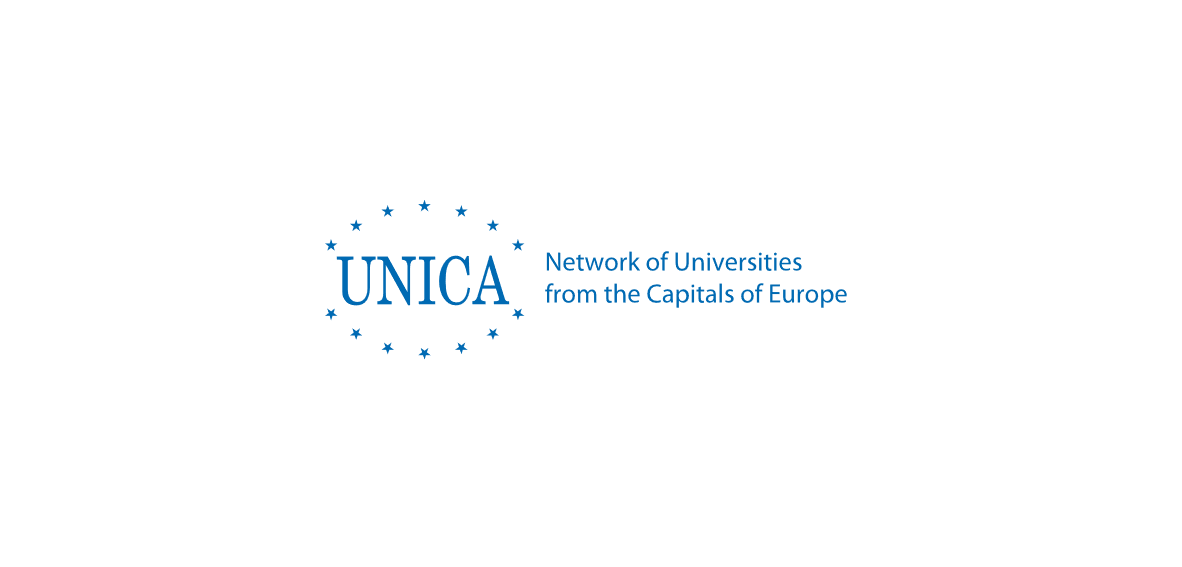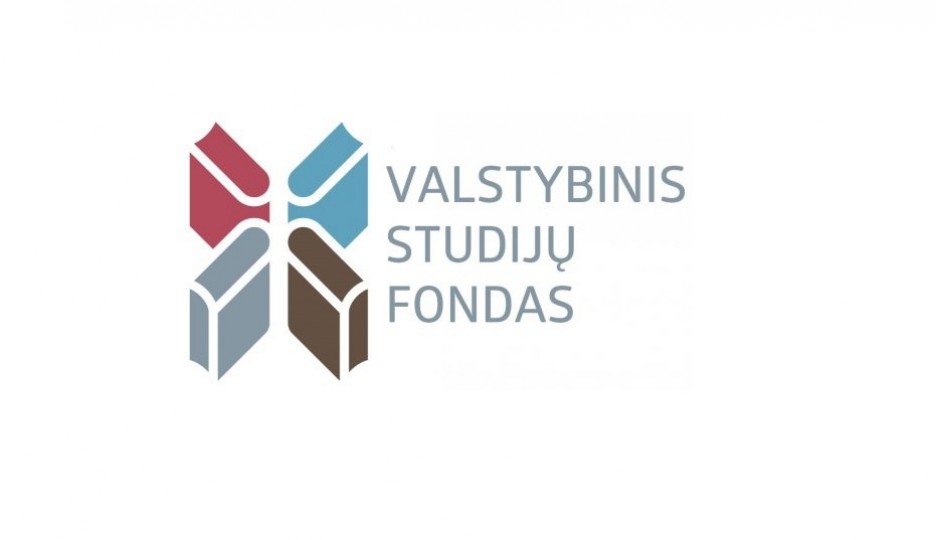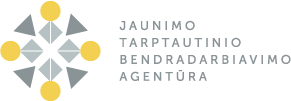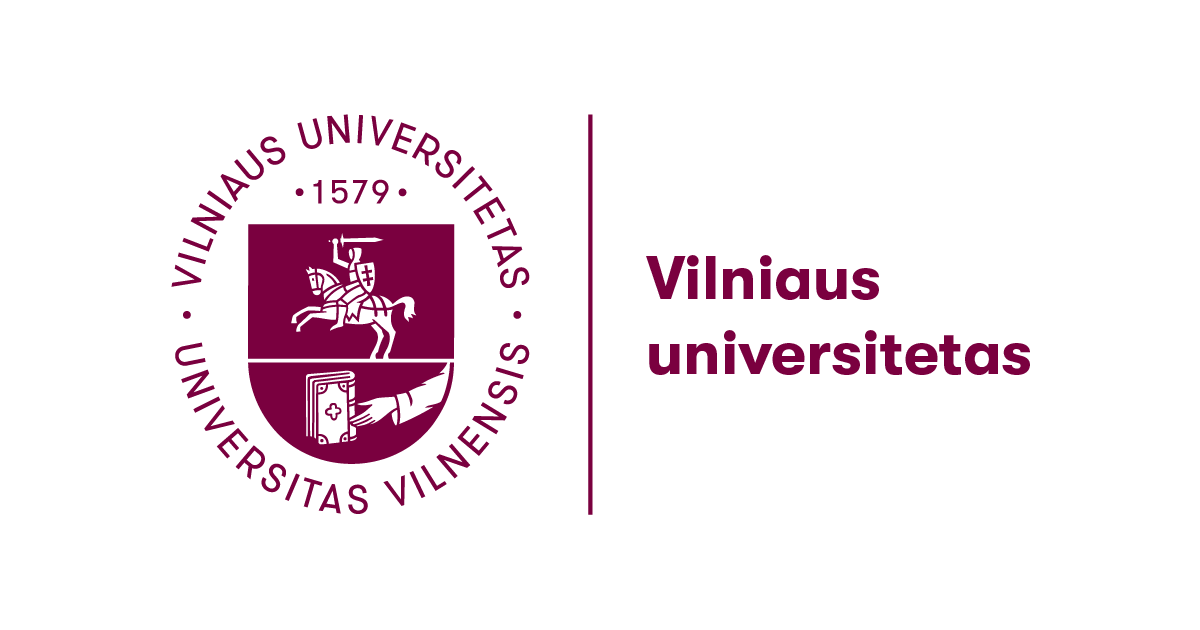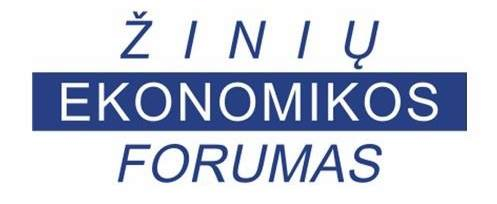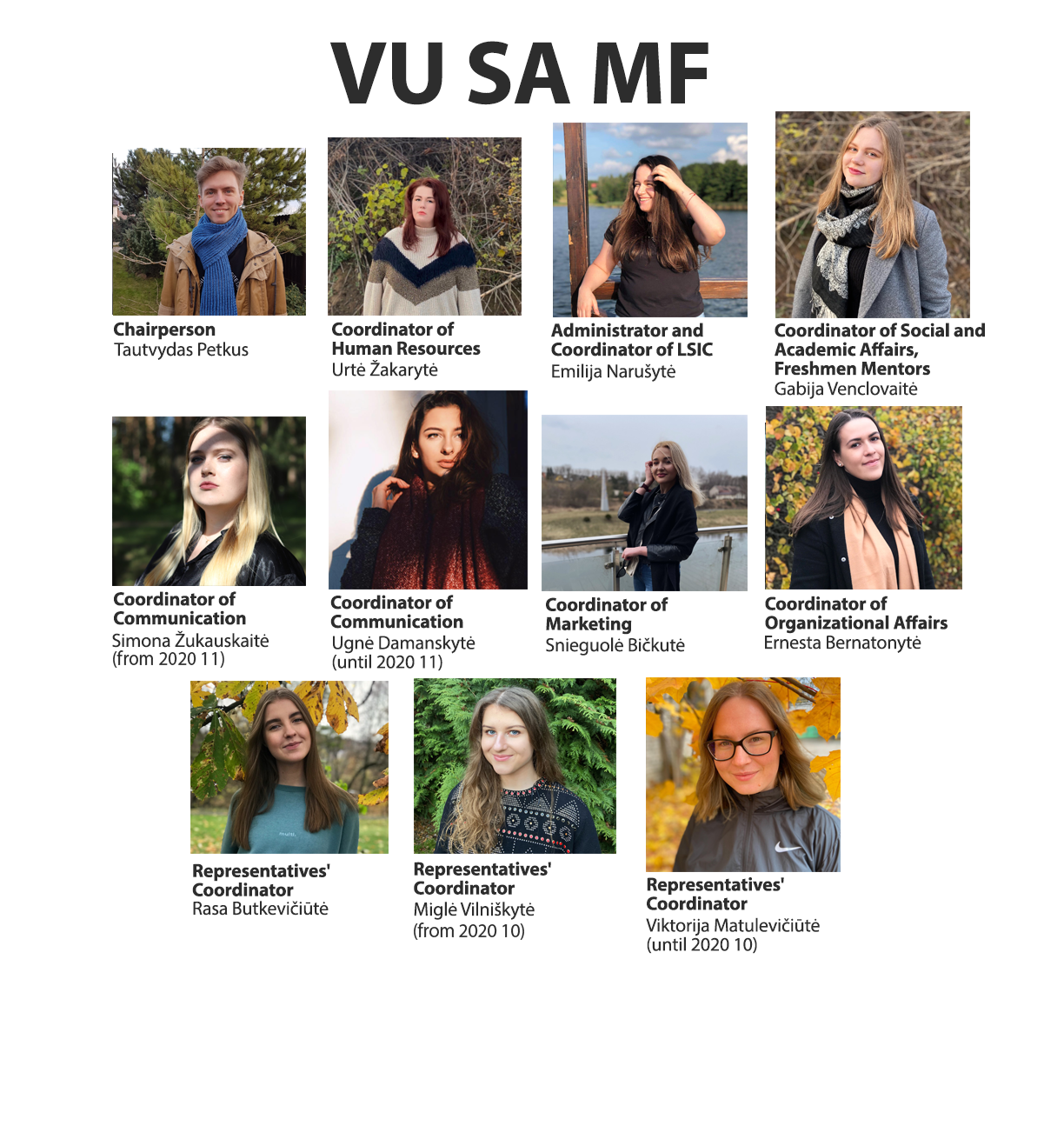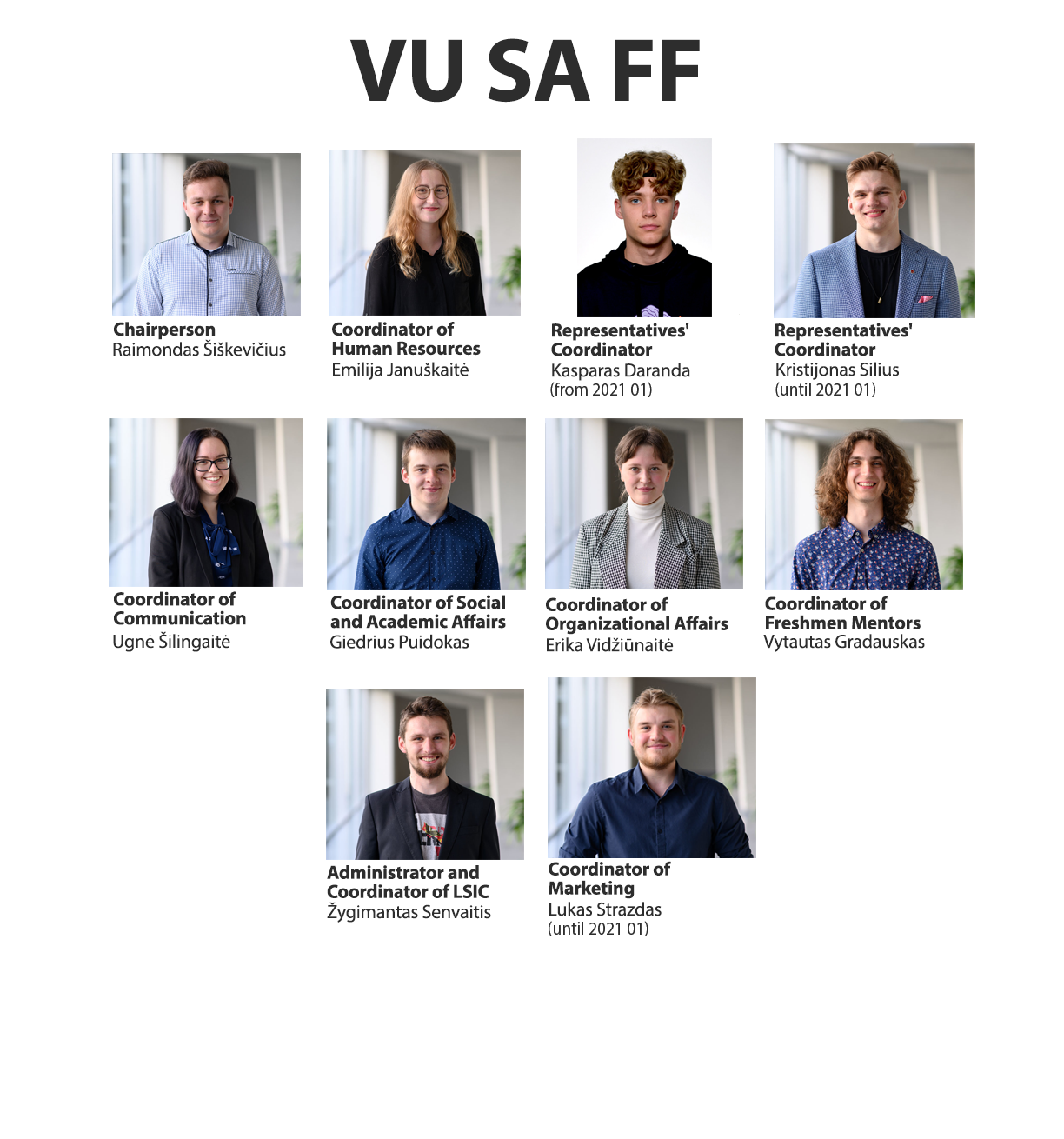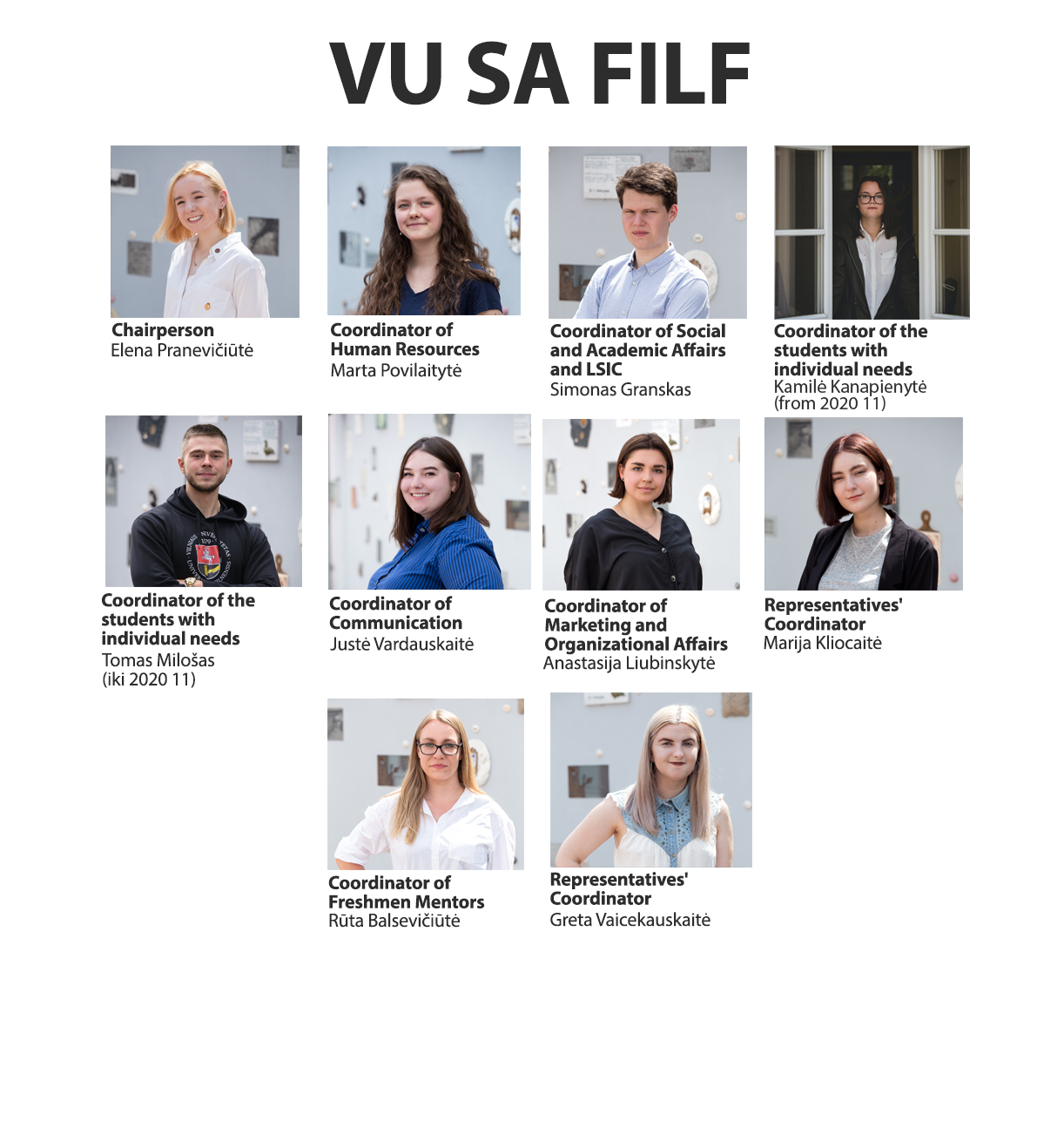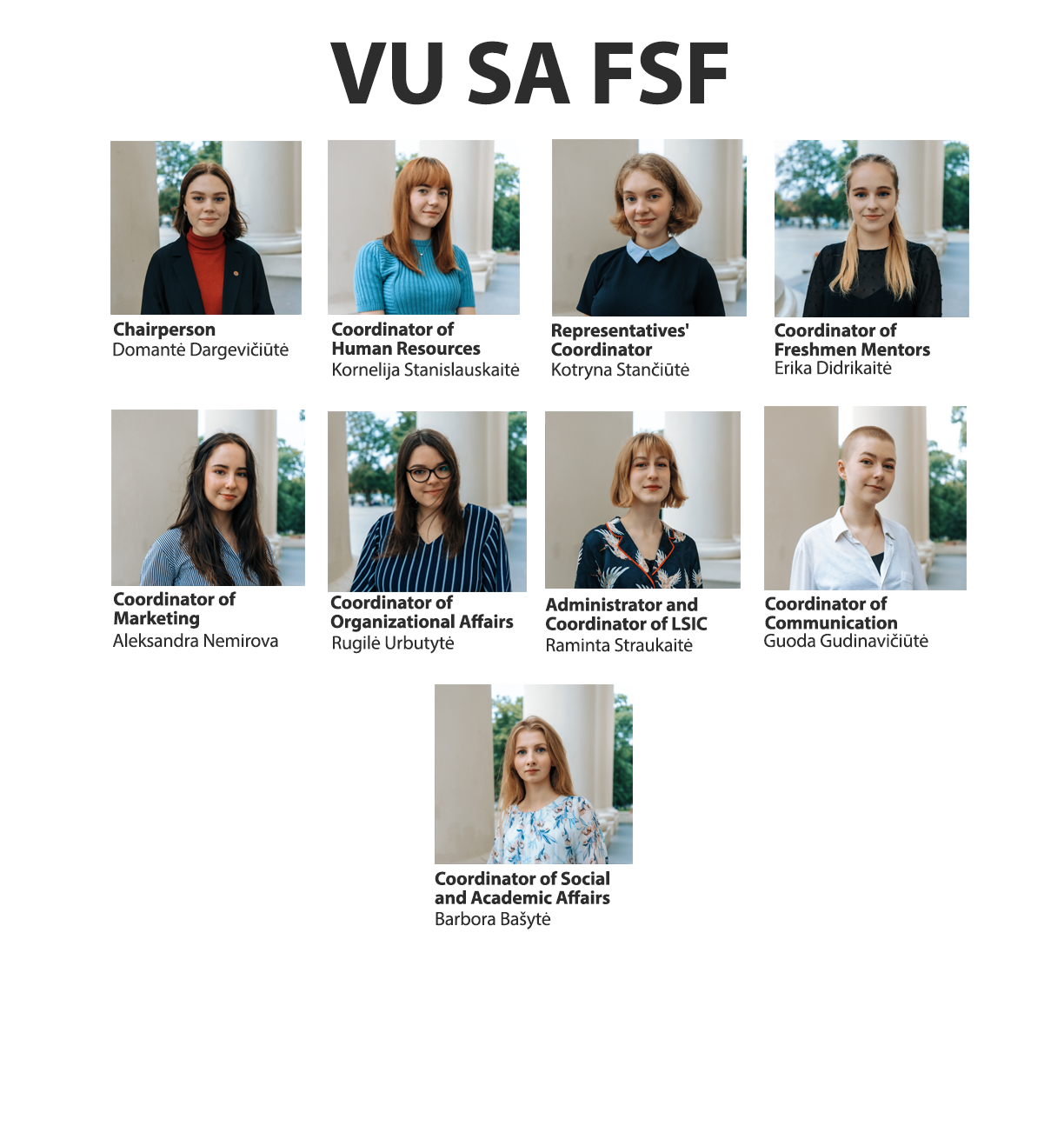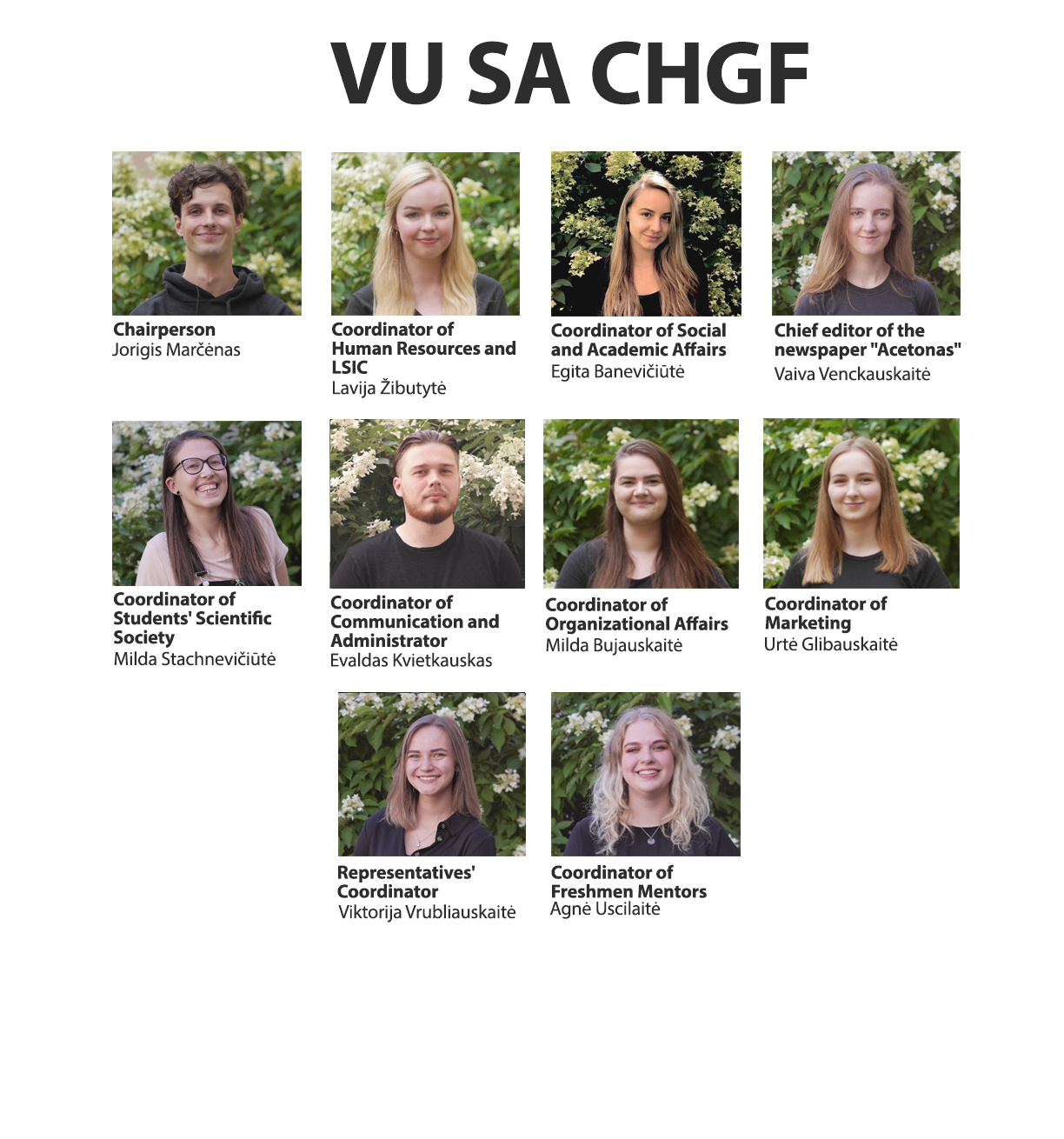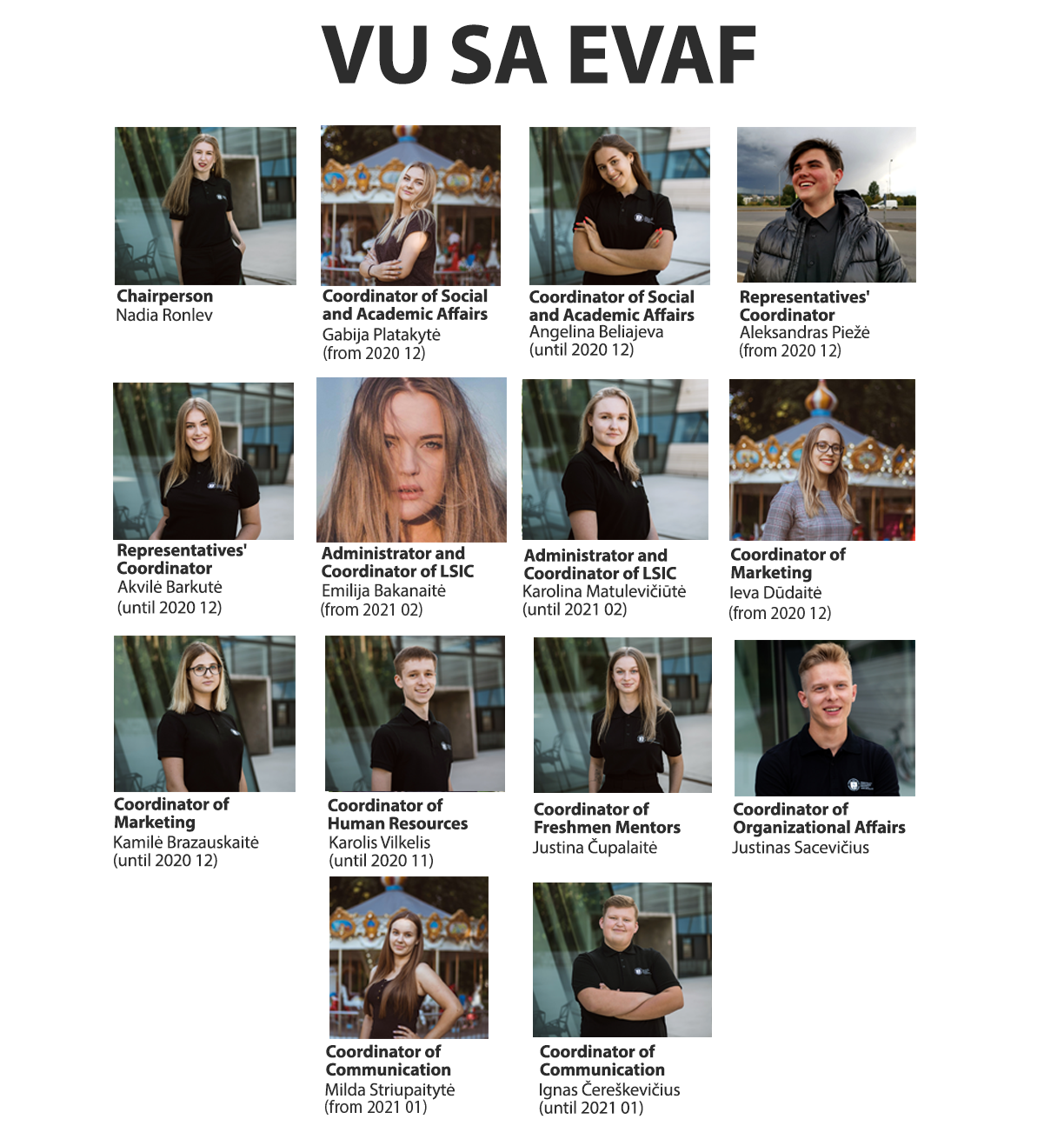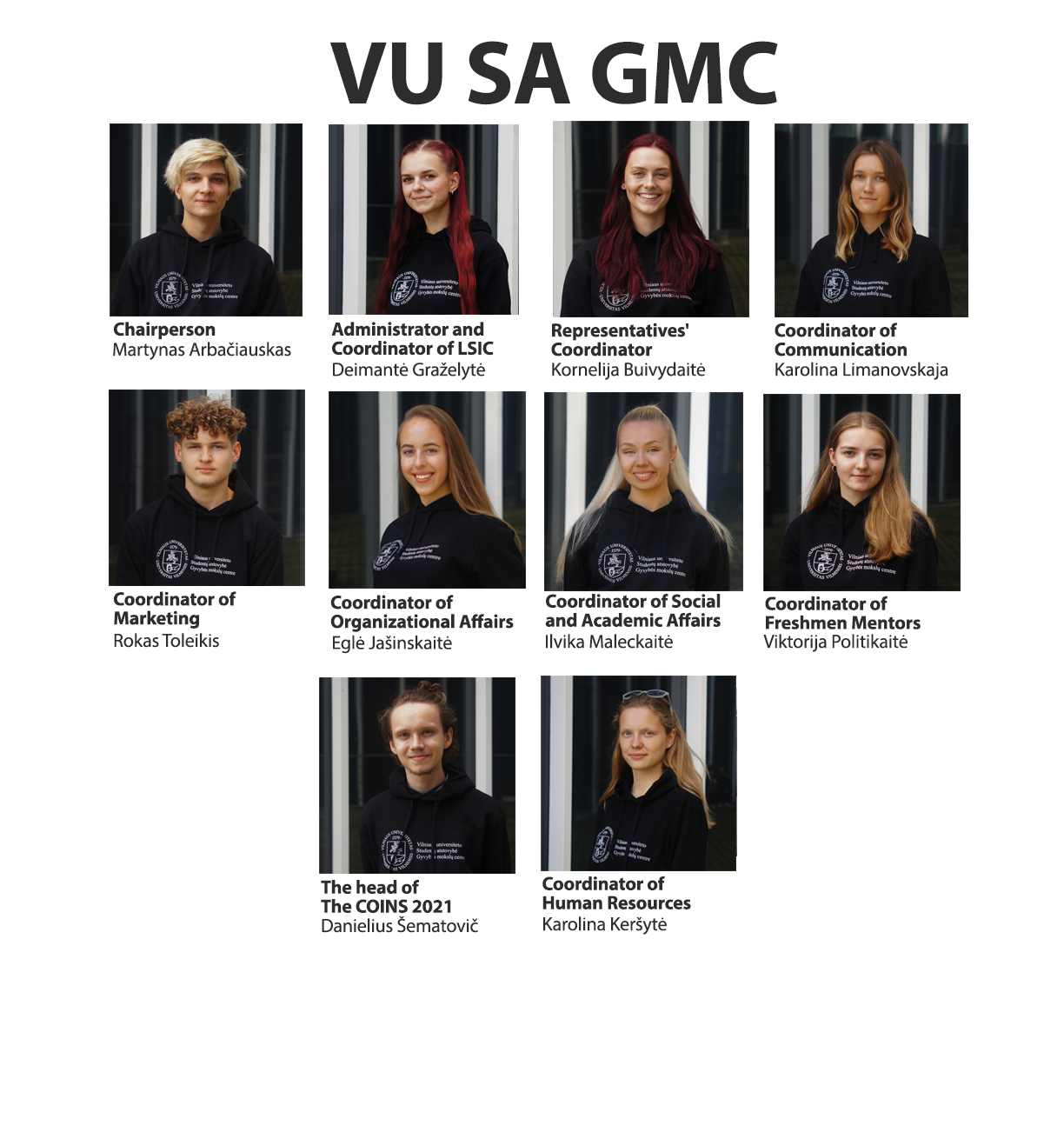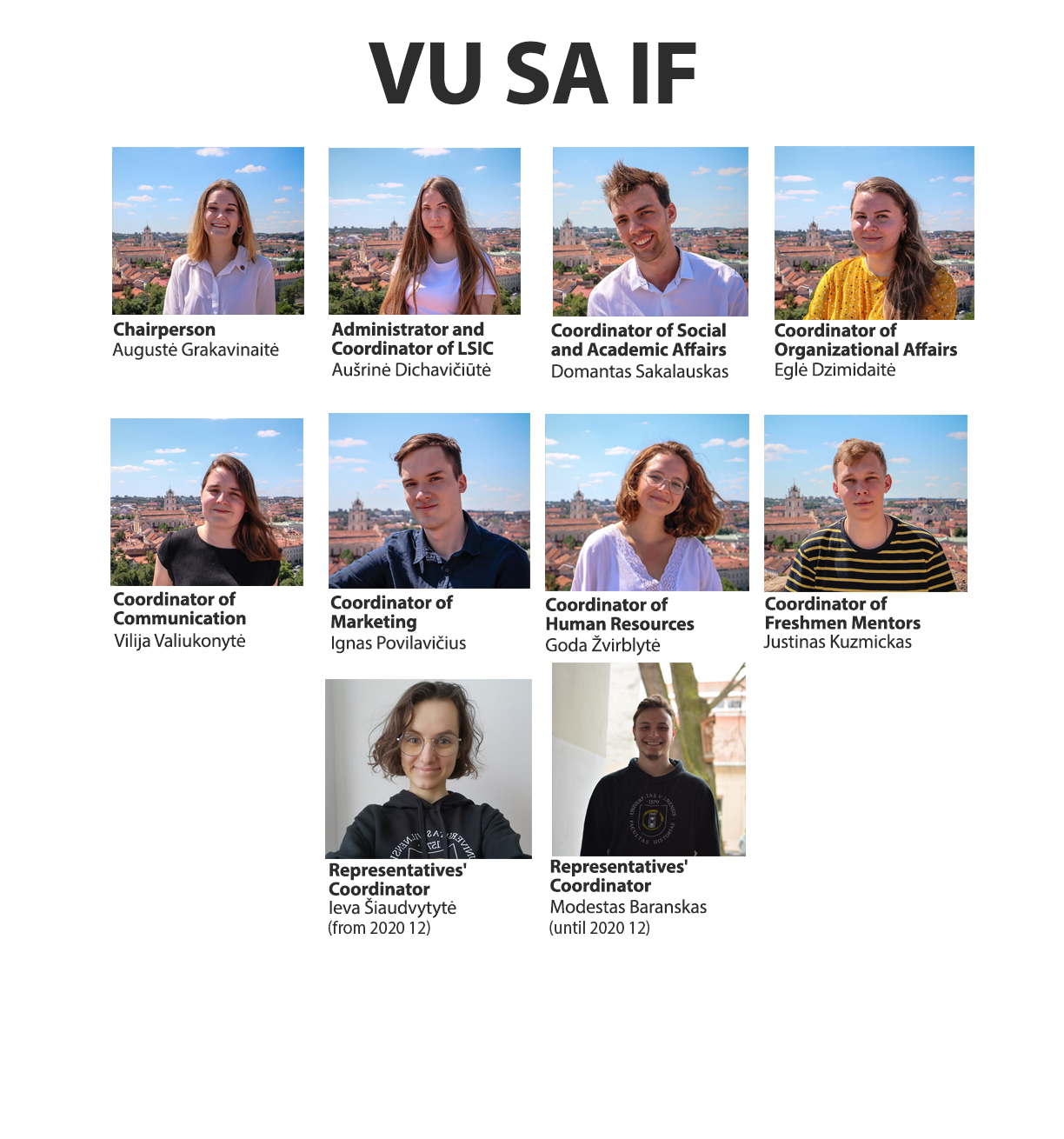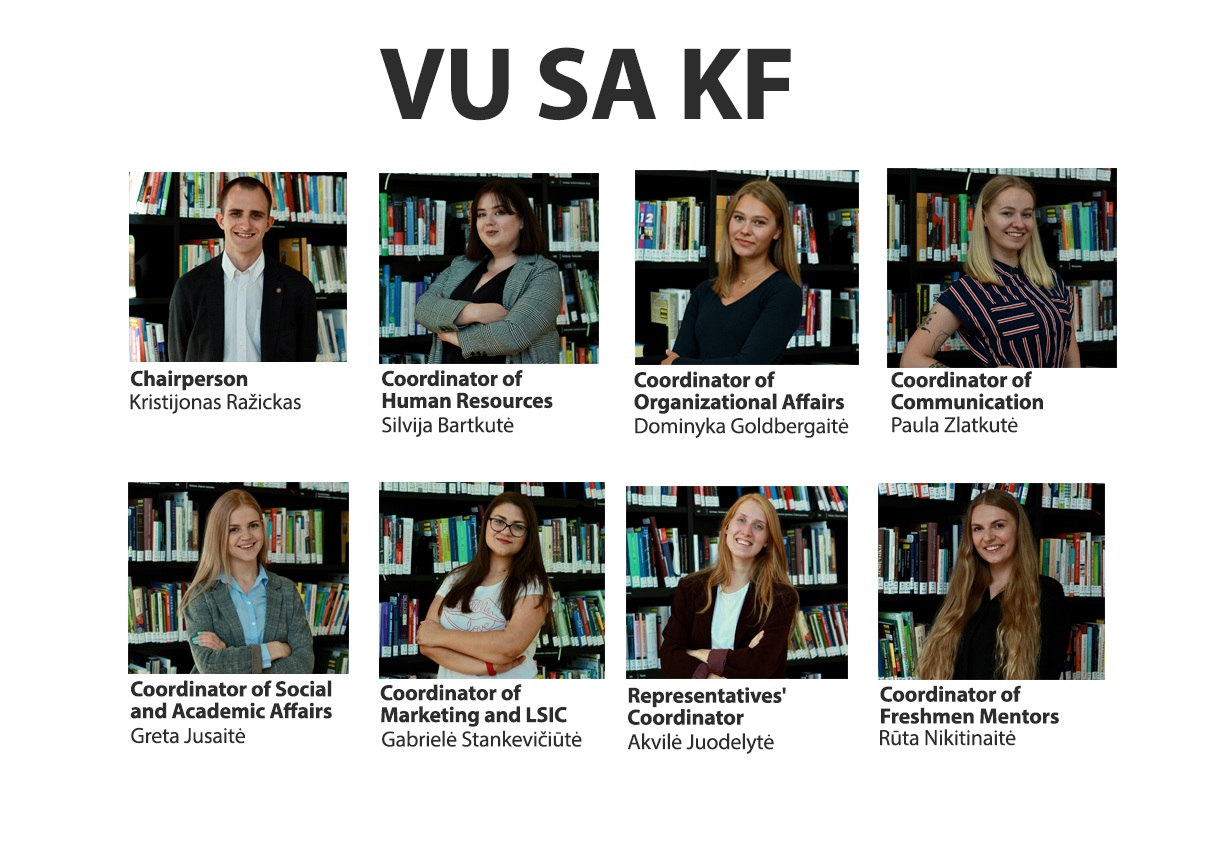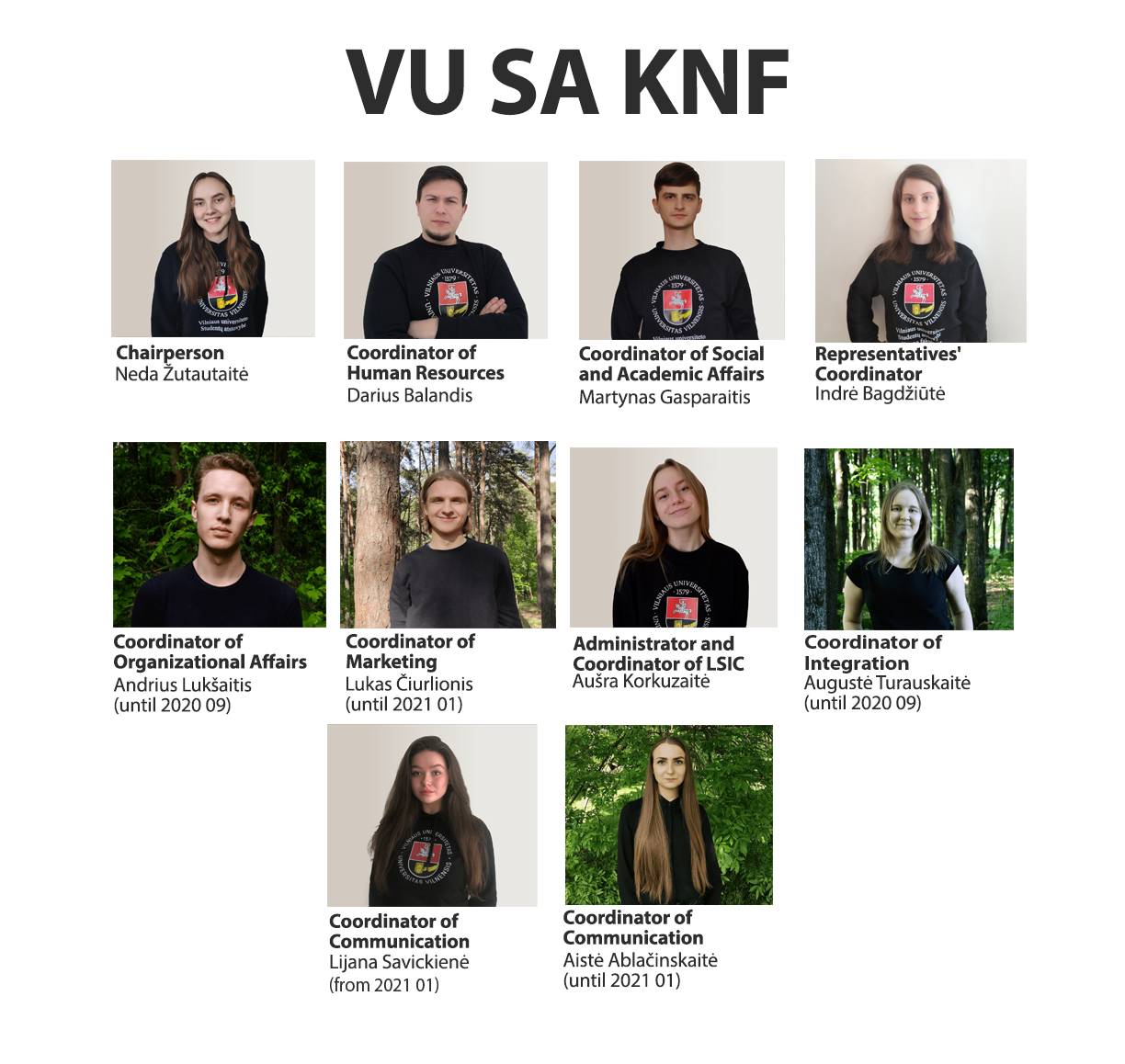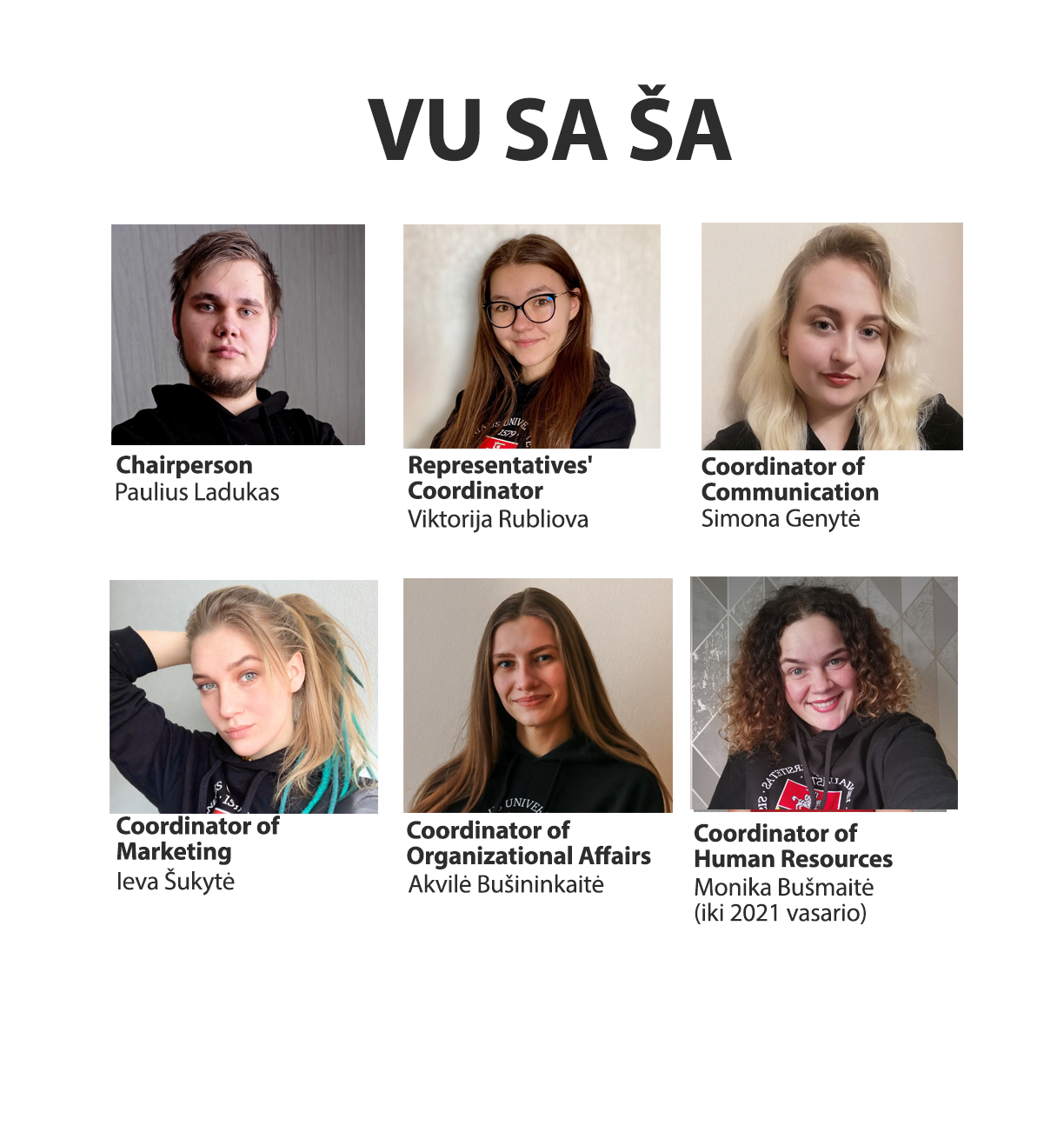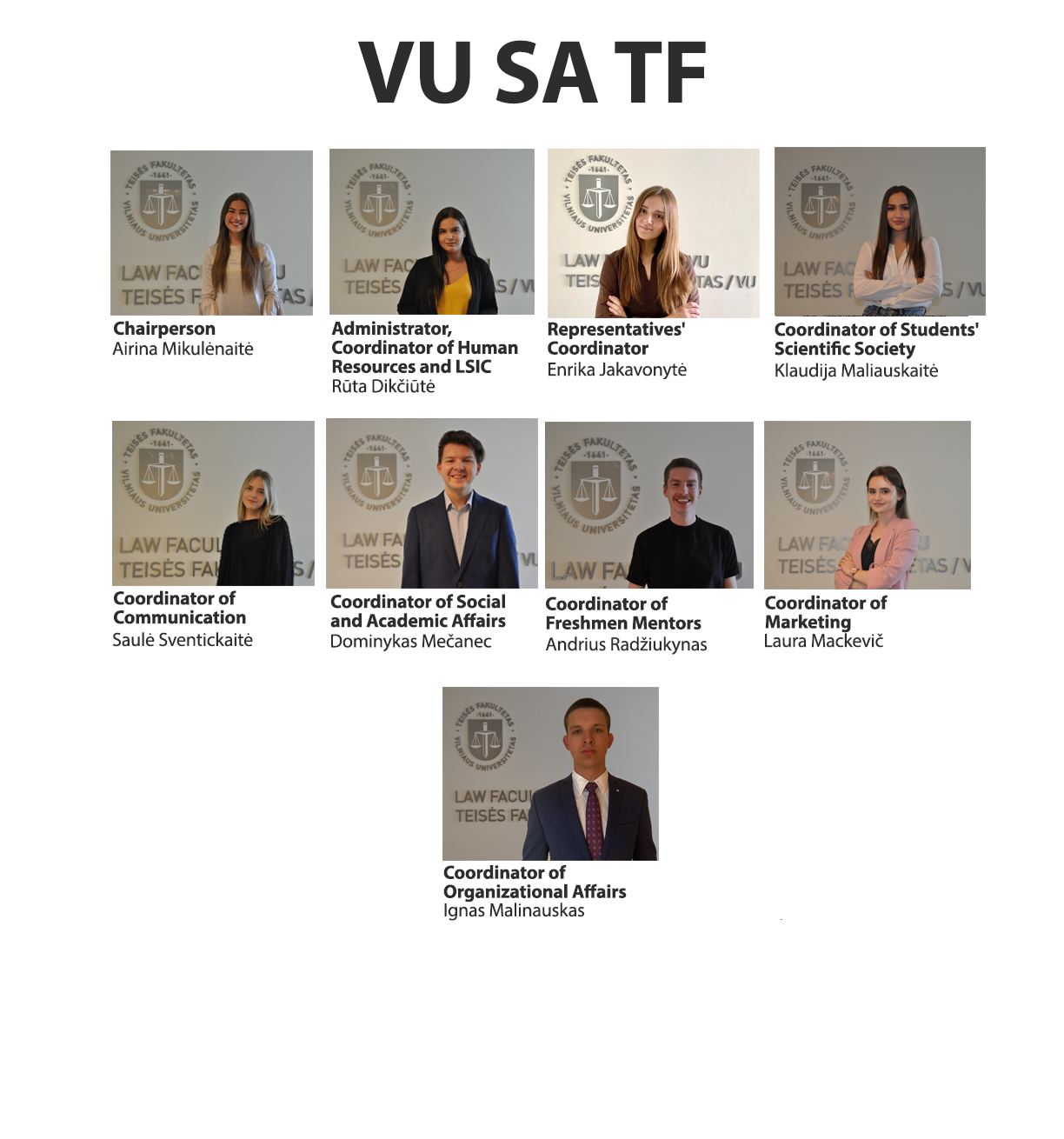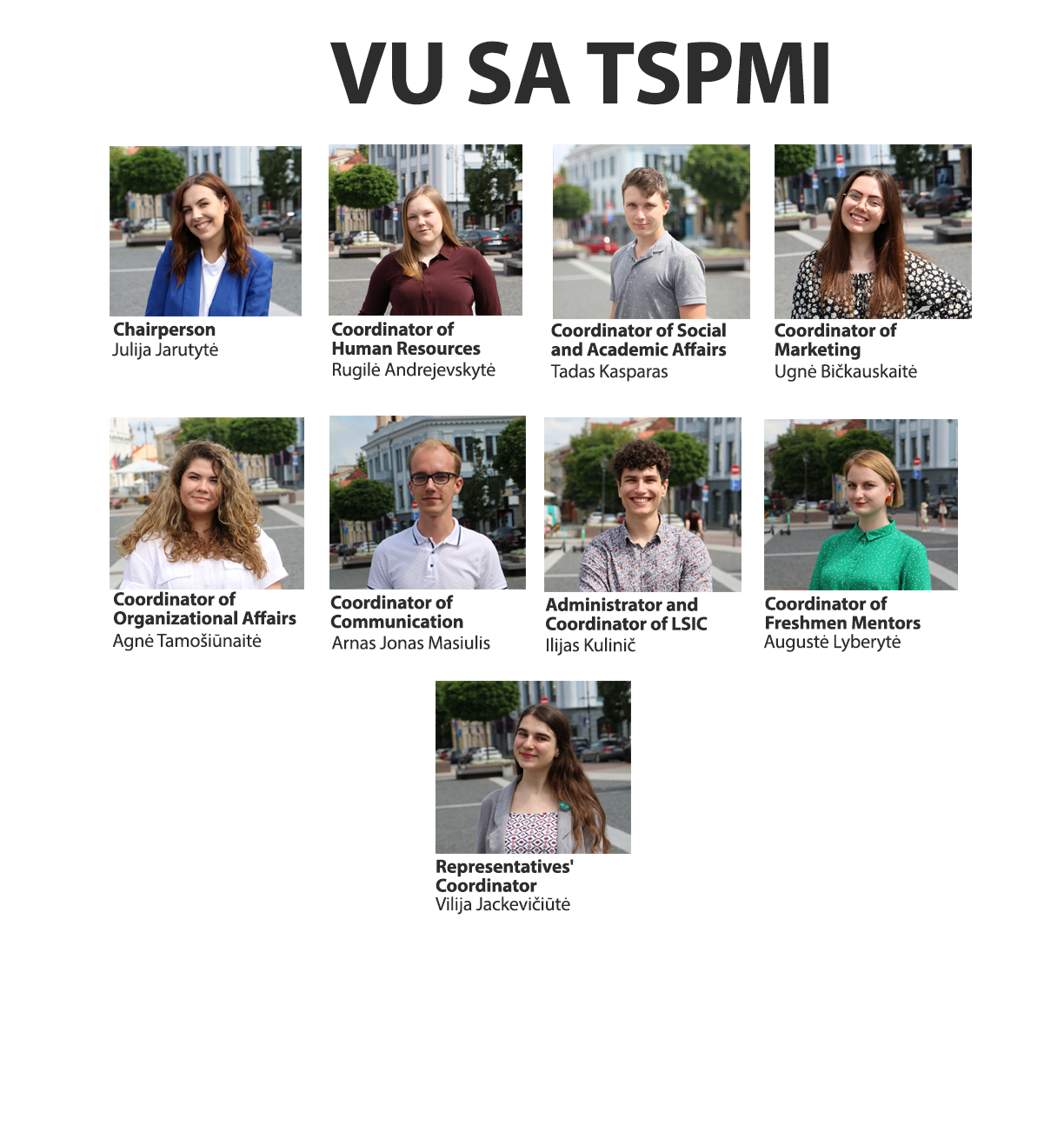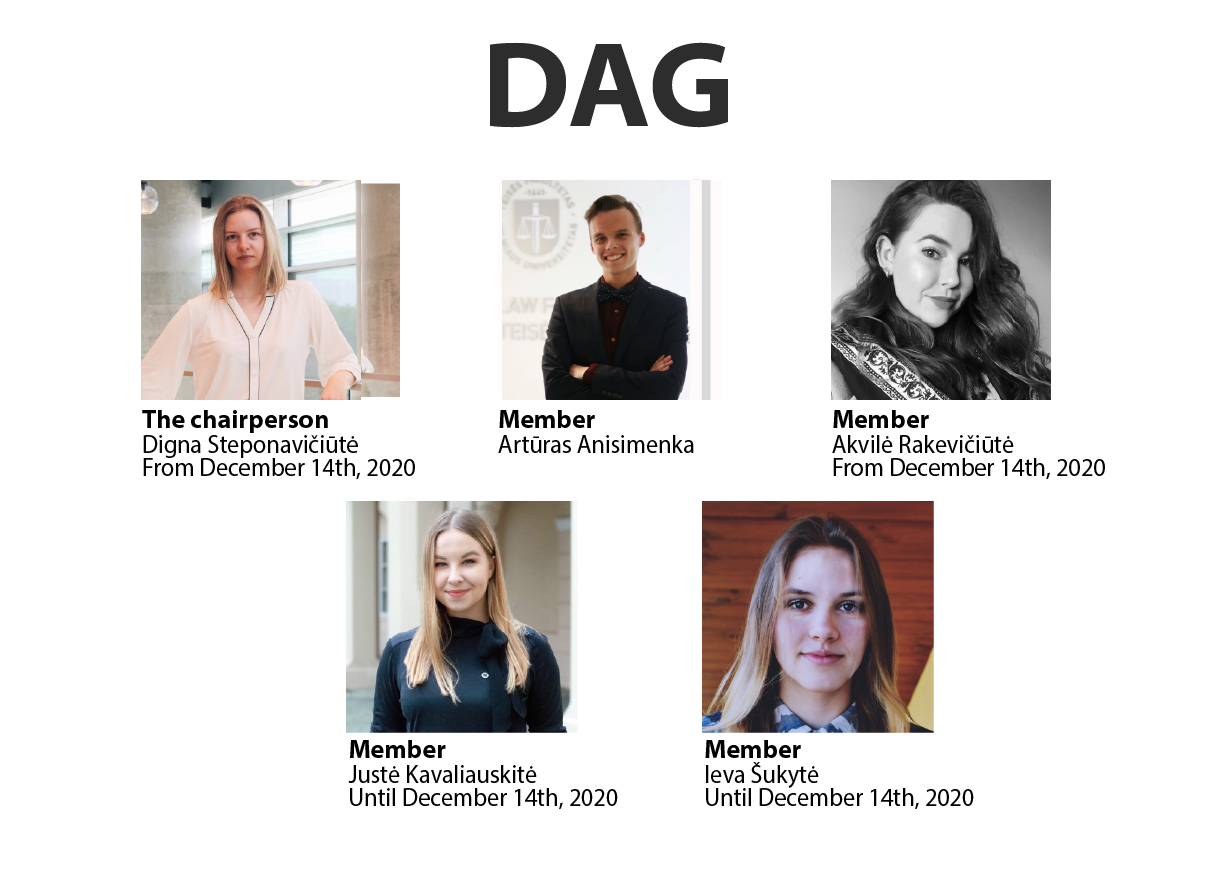CONGRATULATIONS
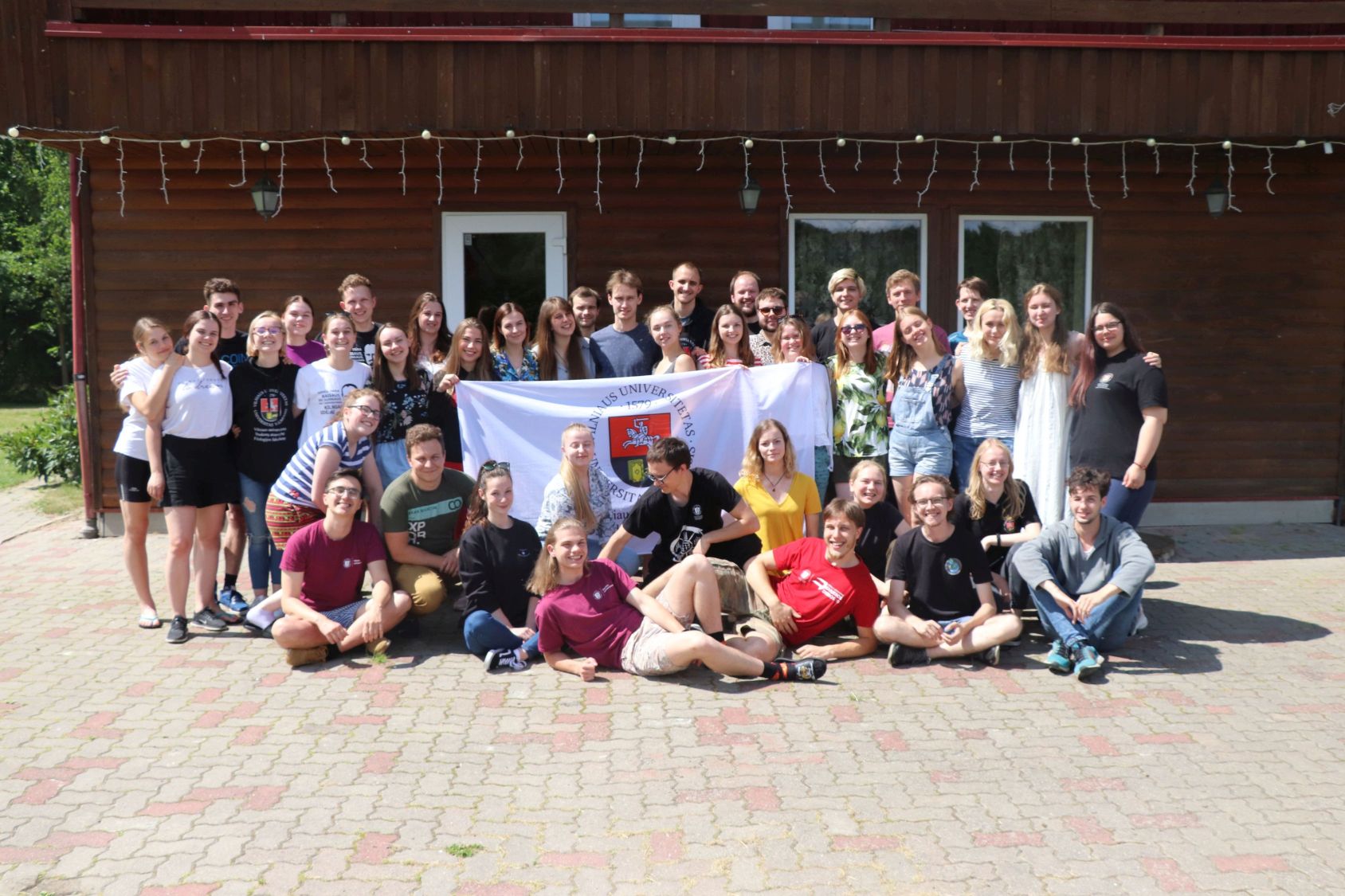
VU SA MANAGEMENT AND THE PRINCIPLES OF ACTIVITY
About VU SA
Vilnius University Students’ Representation (VU SR, lt. VU SA) is the oldest and the biggest expert education organization in Lithuania. It represents the interests of students at Vilnius University and beyond, fostering university culture and creating the most favourable conditions for students’ self-expression.
In total, VU SA has 15 units in each core academic unit (faculty, institute, or centre) that represent students locally. VU SA also has 15 programs, clubs, projects and public bodies (lt. PKP) as well as one Central Office, which coordinates all the units, PKP and Vilnius University Alumni Society. For this day VU SA unites around 1 000 members.
VU SA:
- represents students – defends students’ rights in University’s governing bodies and on the national level;
- contributes to the improvement of the study process in the University, is a part of all the most important governing bodies of Vilnius University;
- takes care of social welfare – provides a comfortable and student–friendly environment, takes care of student integration, participates in the distribution of scholarships;
- organizes meaningful leisure time;
- spreads the information so that all relevant news reaches the students.
The Strategy of Vilnius University Students’ Representation
VU SA Vision – an open environment for independent student development in the unified community of Vilnius University.
VU SA Mission – to create the most favourable conditions for student self-expression by effectively representing the students of Vilnius University and fostering the university culture.
Core values:
- Openness;
- Responsibility
- Quality of work;
- Unity
- Development
Strategic directions:
- High quality studies and their environment;
- Strong organization;
- Sustainable University community.

VU SA Parliament
Aistė Pačebutaitė (until March 2021) and Augustė Grakavinaitė (since March 2021) was the chairpersons of VU SA Parliament during the reference period.
In 2020–2021 the members of VU SA Parliament were:
- CHGF: Jorigis Marčėnas, Egita Banevičiūtė,Lavija Žibutytė
- EVAF: Nadia Ronlev, Juozas Ėmužis, Ugnė Stulpinaitė
- FILF: Elena Pranevičiūtė, Simonas Granskas, Marta Vinclavaitė
- FSF: Domantė Dargevičiūtė, Aistė Pačebutaitė (until 2021 March), Viltė Jankauskaitė (from 2021 March), Aistė Rinkevičiūtė
- FF: Raimondas Šiškevičius, Kamilė Kandrotaitė, Arnas Pukinskas
- GMC: Martynas Arbačiauskas, Eglė Jašinskaitė, Ilvika Maleckaitė
- IF: Augustė Grakavinaitė, Modestas Baranskas, Goda Žvirblytė
- KnF: Neda Žutautaitė, Darius Balandis, Martynas Gasparaitis
- KF: Kristijonas Ražickas, Kamilė Gineikaitė, Ugnė Unguraitytė
- MIF: Rita Žilinskaitė, Gintarė Aliukonytė, Nikita Gladčenko
- MF: Tautvydas Petkus, Emilija Narušytė, Matas Nasvytis
- ŠA: Paulius Ladukas (until 2021 February), Akvilė Bušininkaitė (from 2021 February), Ieva Šukytė (from 2021 February)
- TSPMI: Julija Jarutytė, Gabija Daunoravičiūtė, Vilius Mickūnas
- TF: Airina Mikulėnaitė, Artūras Anisimenka, Dominykas Mačanec
- VM: Justinas Brazaitis, Deividas Tokaris, Laurita Vinciūnaitė
VU SA Parliament – VU SA governing body that considers the most important social and academic, student-related or other strategic issues of VU SA. This year, the Parliament consisted of 43 persons – the President of the organization, the chairpersons of VU SA units and two representatives from each unit. Parliament's work is organized by the Chairperson of the Parliament.
During the reference period, 13 Parliament meetings took place (5 of those were electronic and 8 was carried out remotely)
The Parliament has approved the regulations of VU SA CHGF, VU SA ŠA, „Be etikečių“, „Sąžiningai“ programs. Temporary working groups were formed to produce the positions regarding the equal opportunities, regarding the assistance during the COVID-19 pandemic, regarding the procedure for conducting internships at Vilnius University. A working group has also been formed to work on the renewal of the Vilnius University scholarship system, students’ representatives were elected to the VU Senate by the Parliament. The Parliament has approved changes of the Rules of the Procedure of VU SA regarding the period of taking the socio-academic knowledge test, Parliament Yearly Activity Plan, VU SA 2020-2021 Yearly Activity Plan, VU SA Strategic Activity Plan, VU SA Student work program, VU SA Annual Financial Plan, decision on temporary guidelines and special implementation conditions for organizing a remote Annual Convention of VU SA unit, decision to support the position of Vilnius Liberal Youth urging members of the Seimas to support draft laws on decriminalization of small quantities of drugs, appeal to student protests in Turkey.
Temporary working groups were formed to produce the resolutions regarding the issue of emotional environment / recommendations, regarding the student employment during studies.
Resolutions on Emotional Well-being in Higher School, on Students' Employment During Studies, on Ensuring Equal Opportunities and Promoting Diversity at Vilnius University were approved. The position on Assistance to Students Affected by the COVID-19 Pandemic was approved.
On one of the meetings of the Parliament the 2020 review of higher education was discussed with the Deputy Minister of Education, Science and Sports Gintautas Jakštas. At the other meeting, Vilnius University Rector Rimvydas Petrauskas discussed the Strategic Activity Plan of Vilnius University for 2021–2025.
VU SA Parliament Legal working group
The Legal Working Group is a permanent working group of the VU SA Parliament. The main goal of the Legal Working Group is to ensure the compliance of the documents regulating the activities of VU SA with the documents of higher power, provide legal conclusions.
During the reference period, Artūras Anisimenka (the head of the group), Vanesa Ražinskytė, Vytautas Pasvenskas, Dominykas Mečanec, Airina Mikulėnaitė and Rūta Dikčiūtė were a part of this group.
Resolution on Emotional Well-being in Higher School
VU SA Parliament issued this resolution, approving the provisions of principle on emotional well-being at the University, of which promotion every member of the Vilnius University community is responsible. In order to improve the emotional state of the University community, it is especially important to pay more attention to the provision of psychological assistance in higher education. Although some action is being taken at the University, the current measures are insufficient. The University must strive to comprehensively address the issue of the emotional environment.
VU SA Student Work program
In order to create conditions for not having to work and improve the material conditions of the higher education community VU SA:
1.1. is guided by the provision that the participants of the study process must be provided with all the material and infrastructure needed for the implementation of a quality study process;
1.2. cooperates with other organizations seeking higher funding for higher education and studies
Resolution on Students’ Employment During Studies
At the university, the quality of studies and education is the most important. VU SA claims the basic principle that, regardless of the material conditions, the student must be able to devote all his / her time only to studies, and to choose additional activities of his / her own free will. A significant proportion of the country's students could spend more time on studies and education if they were not forced to work for material reasons, students' necessity to work has a negative impact on the quality of studies, and now the material support provided to students is not enough to solve this problem. With this in mind, VU SA Parliament adopts the provisions of principle, according to which the problem of student employment due to material reasons should be addressed.
The position on Assistance to Students Affected by the COVID-19 Pandemic
VU SA Parliament draws attention to the emergency situation in the country, which has significantly affected the community of Vilnius University. The pandemic caused by COVID-19 had not only direct effects (those infected with the virus or having contact with the patient must be isolated) but also indirect effects (loss of a loved one, loss of job and other personal problems).
Resolution on Ensuring Equal Opportunities and Promoting Diversity at Vilnius University
VU SA Parliament approves this resolution, approving the provisions of principle on ensuring equal opportunities for every member of the academic community at Vilnius University. Better integration of socially vulnerable groups into the higher education community reduces social inequalities and benefits not only the individual but also the University's academic community and society. Enabling each person to fulfill their potential increases mutual understanding and creates a healthier, more civil and talented society, which contributes to the international competitiveness of the state. For these reasons, the University at all levels singled out in the concept of the social dimension - (I) before entry; (II) at entry; (III) during studies; (IV) in the transition moving to the labor market – must pay more attention to assessing the needs of unrepresented groups and ensuring equal opportunities.
Review of the findings of VU SA research on procedure for conducting internships at Vilnius University
VU SA Parliament reviews the current situation and makes proposals on internships and all processes at Vilnius University that are related to student internships. VU SA, approving the provisions of principle on internships at Vilnius University, sees quality internships as a key aspect of study quality, therefore in this document we identify the problems that arise for students and provide suggestions for their solution.
In order for the tasks during the internships to be related to the subject being studied, it is necessary to expand the University's communication with the social partners at all levels. The study program committees or relevant bodies must ensure that the knowledge and methods provided during the studies correspond to the real needs of the labor market, and that the social partners carry out practices that correspond to the study subject. Meanwhile academic units have to oversee this process and form a wide range of social partners. It is important to ensure that the quality of study programs becomes not only the need of teachers or students, but also the interest of business representatives, state organizations or research centers that will hire graduates.
VU SR BOARD
2020–2021 m. VU SR Board consisted of:
- VU SR President Justas Kvedaravičius
- VU SR CHGF: Jorigis Marčėnas
- VU SR EVAF: Nadia Ronlev
- VU SR FF: Raimondas Šiškevičius
- VU SR FILF: Elena Pranevičiūtė
- VU SR FSF: Domantė Dargevičiūtė
- VU SR GMC: Martynas Arbačiauskas
- VU SR IF: Augustė Grakavinaitė
- VU SR KF: Kristijonas Ražickas
- VU SR KnF: Neda Žutautaitė
- VU SR MF: Tautvydas Petkus
- VU SR MIF: Rita Žilinskaitė
- VU SR ŠA: Paulius Ladukas
- VU SR TF: Airina Mikulėnaitė
- VU SR TSPMI: Julija Jarutytė
- VU SR VM: Justinas Brazaitis
VU SR Board – VU SR governing body dealing with cooperation and internal issues of the organization. This governing body consists of the heads (chairmen and chairwomen) of the representative units of the Organization and the president, who organizes the activities of this governing body. During the reference period, 11 meetings of the VU SR Board took place. The Board of VU SR discussed and made decisions on institutional strengthening, internal affairs, and budget.
Internal affairs
During the reference period, the VU SR Board approved the composition of the VU Foundation for Institutional Strengthening, as well as approved the job descriptions of the socio-academic process, marketing, organizational affairs, and representative coordinators of the core academic units.The Board of VU SR made decisions:
- Taking into account the conclusions of the Revision Commission of VU SR, it was decided to update the archive of VU SR;
- in accordance with the strategic goal, create and implement the VU SR consultation process system and reduce student negative feedback by 30 percent on counseling. Therefore, it was decided to convene a VU SR consulting working group to create a e-counseling system (to consult on social, academic, LSIC issues, opportunities for students' self-expression at the University, such as PCP, services provided by the University, tutors should consult on dormitories, transport, teachers, etc.);
- to extend the period of taking the social and academic knowledge test until 15 November due to the subsequent inclusion of members in the activities of VU SR, and to send the lists of members until 20 November;
- the proposal to sign the position of the Liberal Youth of Vilnius on the decriminalization of small quantities of drugs was decided to be considered by the VU SR Parliament;
- convene a working group on the issue of membership in the organization. The working group consists of representatives from different bodies of VU SR (Institutional Strengthening Fund, Central Office and Board). The purpose of the working group is to review the nature of membership and the issue of membership in the organization. Reviewing the processes taking place in the organization, the ideas expressed by the members, the working group prepares proposals aimed at making the membership more efficient.
THE REVISION COMMISION
The Revision Commission is a controlling institution performing financial and operational inspection of VU SR self-government institutions, VU SR subdivisions and other structural units of VU SR, as well as legal entities established by VU SR. The commission consists of five members elected at the VU SR annual convention.
During the reference period, the Revision Commission consisted of:
- Haroldas Vitunskas (Chairman of the Commission)
- Bernadeta Dikčiūtė
- Milda Girdenytė
- Erika Nedvecka
- Dominyka Žukovska
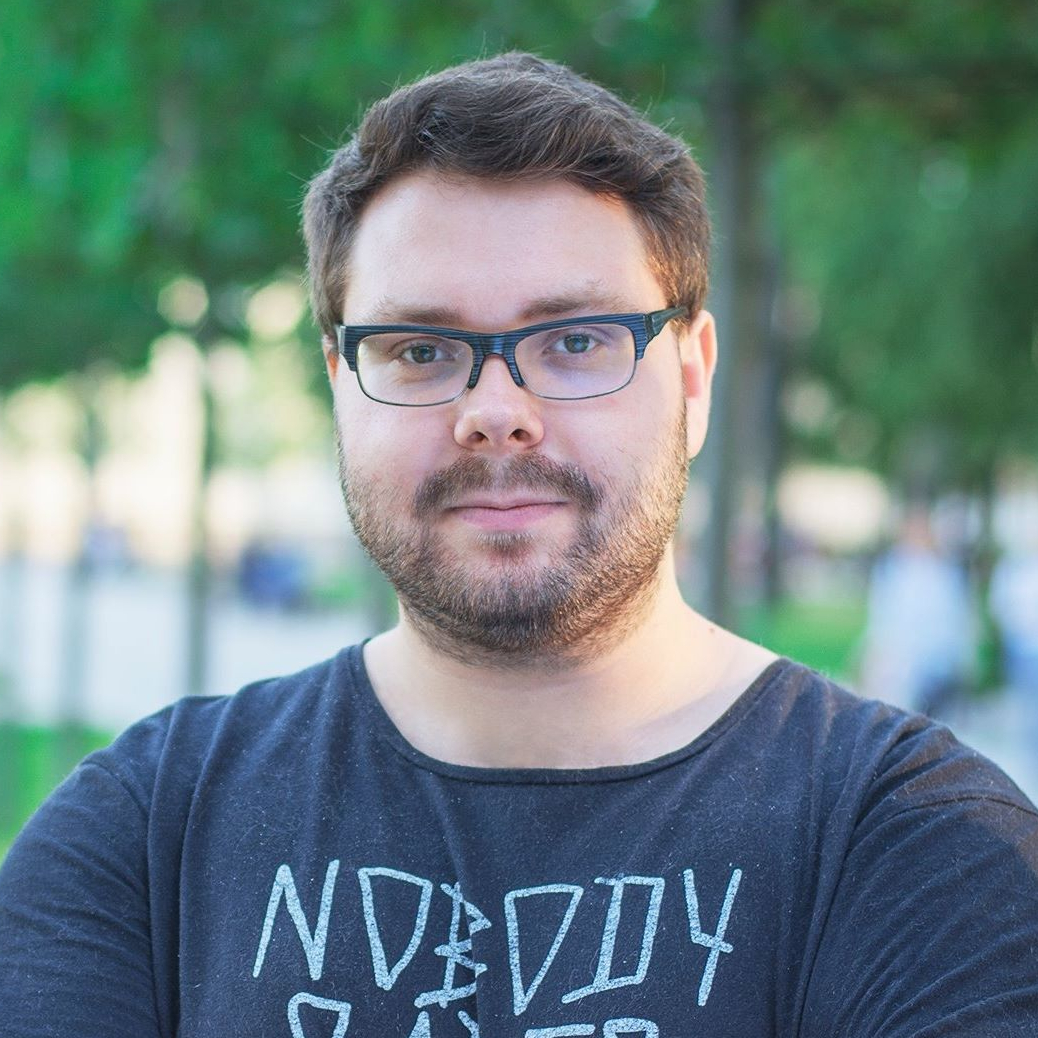
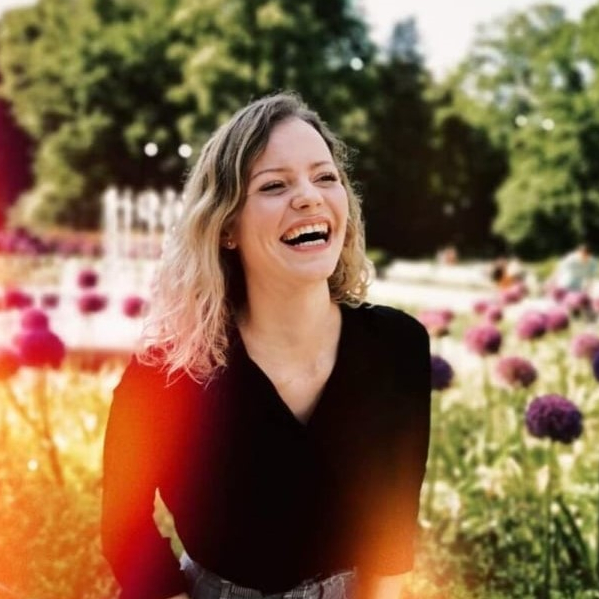
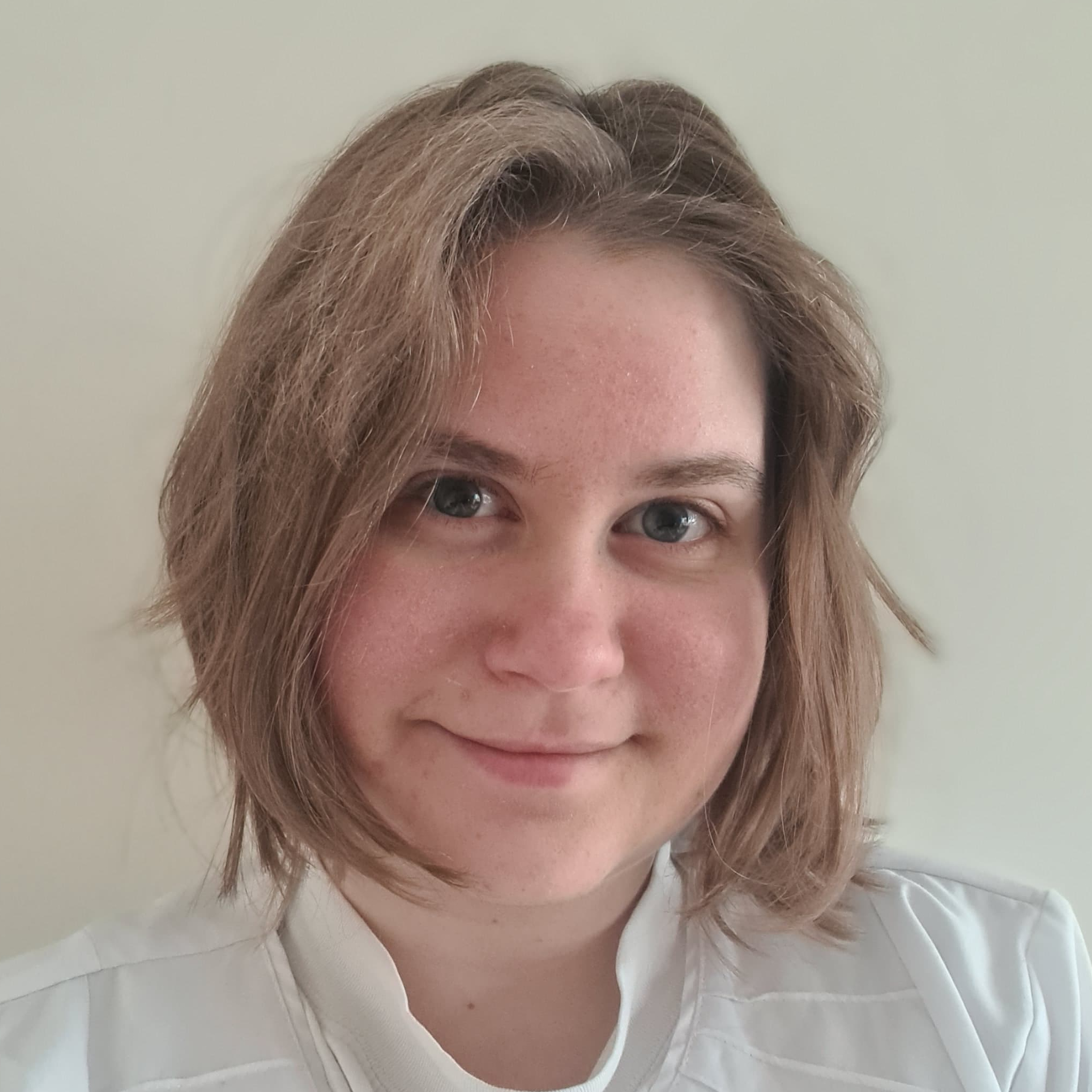
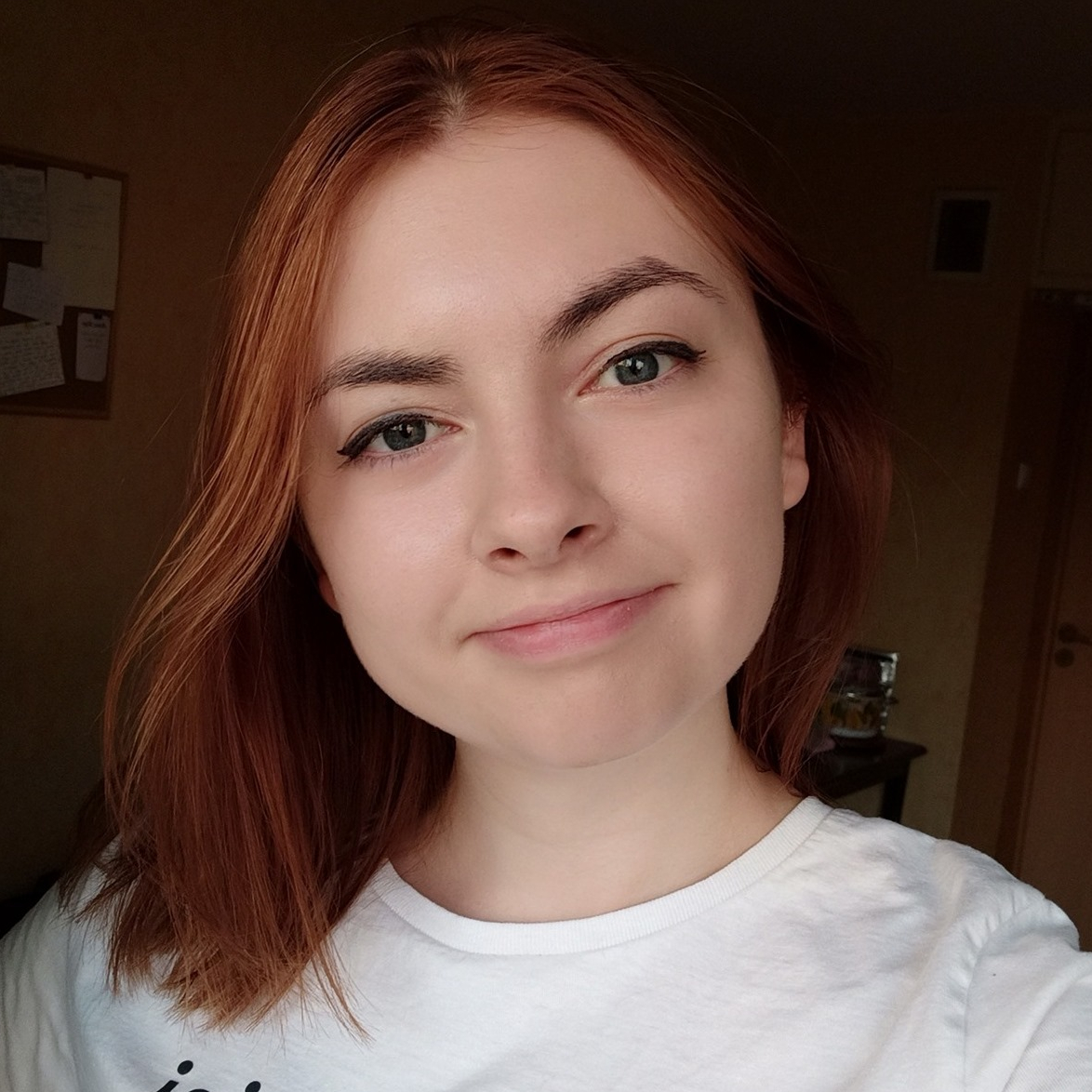
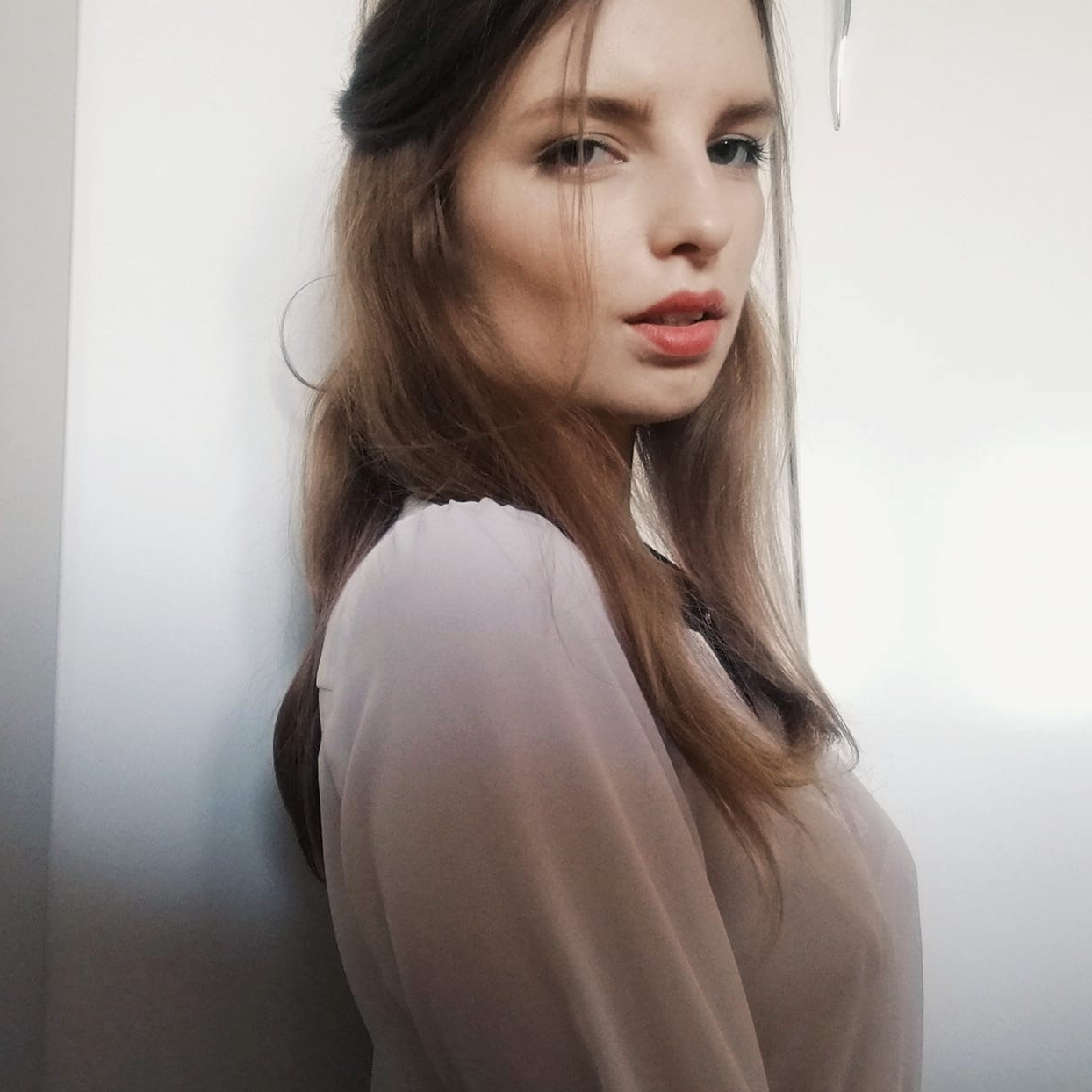
2020-2021 The Revision Commission developed a new performance appraisal methodology and performed interim and final performance appraisals. During the evaluation, the Revision Commission was in regular contact with the audited entities, checked the compliance of VU SR, VU SA U, VU SA PCP, VU SA DPG members, VU SA ISF and VU SR Parliament with quantitative and qualitative evaluation criteria, evaluated activities in surveys and meetings with audited entities.
In the process of developing the new evaluation methodology and evaluating the audited units, 2 open meetings of the Revision Commission and 70 closed working sessions took place. The Revision Commission participated in the meetings of the Parliament and the Board, in the trainings carried out by the organization, conducted 272 meetings with the audited units and launched 10 evaluation surveys. The Revision Commission provided written answers to the inquiries of VU SR members related to VU SR activities and legal acts.
The results of the evaluation of the organization's activities are provided by the Revision Commission during the annual convention of VU SR (the evaluation methodology and conclusions are available at vusa.lt).

VU SR 2020–2021 ANNUAL ACTIVITY PLAN IMPLEMENTATION
VU SR 2020–2021 annual activity plan sets out the main goals and objectives for the year. The plan is intended to establish VU SR operational priorities that would create a unified and open environment for independent self-development of students in the Vilnius University community and systemically prepare for the implementation of these activities.
The VU SR annual activity plan consists of strategic goals and goals set by VU SR units. Strategic goals are aimed for change on the University scale. This concept encompasses actions initiated by VU SR, which aim to solve problems relevant to all students of Vilnius University. The goals of VU SR units are intended to ensure the improvement of students' social and academic environment in each core academic unit (hereinafter – CAU) of Vilnius University and are set taking into account the needs of students of each CAU individually.
Purposefully striving for the changes set out in the annual activity plan, the implementation of the goals continues after the VU SR Convention. Therefore, the results of the implementation of the annual activity plan reviewed in this report are not final and the activities will be carried on.
For more details on the annual activity plan and the course of the planning process, see: www.vusa.lt → Documents → Operating documents.
We invite you to get acquainted with the results of the goals set in the 2020-2021 annual activity plan.
VU SR STRATEGIC GOALS
Goal:July 1st 2021, according to the proposals submitted by VU SR, VU CAU strategically envisages measures to achieve study flexibility and an implementation plan is prepared by each VU SR CAU.
How much has been achieved: This goal has fully or largely fulfilled two objectives, the result of which will be useful in the coming terms (an array of information on flexibility of studies has been compiled, which could be used in the future when implementing ideas of study flexibility and its communication guidelines that will help to systematically plan and carry out communication on the topic). Currently, two important objectives are still being carried out, the intermediary results of which allow to work more unitedly on the issues of flexibility of studies in the context of VU CAU strategic activity plans and at the level of CAU study management bodies (with the tools developed for that and the competencies of the student representatives working there).
Implementation of objectives:
Objective 1
Objective 2
Objective 3
Objective 4
Goal:
August 1st 2021, at least 75% of VU students rate their distance learning experience* more positively than negatively.
* The quality of teaching, independent learning / workload, students’ motivation and involvement in studies, satisfaction with studies.
How much has been achieved: This goal has partially fulfilled three objectives that have helped to inform students and improve the quality of studies. An initiative for sharing distance learning experiences has been created – 3 webcasts have been released. A survey evaluating the distance learning experiences has been conducted, the results of which were presented to students in an article on VU SR website. At the suggestion of VU SR, the use of distance learning methods was evaluated in the selection of the best University lecturers, thus promoting the sharing of these experiences in the academic community. Besides, VU SR U teams provided timely feedback and improved the study process in their units in different ways.
Implementation of objectives:
Objective 1
Objective 2
Objective 3
Objective 4
Goal: July 1st 2021, the VU SR consulting process system is created and implemented and the negative feedback about consulting from students is reduced by 30%.
How much has been achieved: To achieve the goal, a consulting working group was formed from the members of the VU SR Council, The VU SR Board, Institutional Strengthening Fund and alumni. The working group performed an analysis of good practices in other consulting institutions, refined the purpose and benefits of consulting at VU SR. In order to address the current problems in the consulting process, a new model of the consulting process has been developed. It has been presented to the organization and is planned to be further developed and have a general agreement reached. An analysis of IT opportunities for consulting was performed in order to discover convenient platforms for consulting and providing feedback. The essential competencies required for counsellors have been identified.
Implementation of objectives:
Objective 1
Objective 2
Objective 3
Goal: By 2022 the integration measures implemented at Vilnius University increase the satisfaction of I (bachelor), II (master’s), integrated, III (doctoral) study cycle students with their studies and the number of I (bachelor), II (master’s) cycles and integrated studies graduates.
How much has been achieved: An internship for translation into English of the main documents regulating the activities of VU SR has been organized, the possibilities and needs for VU SR communication in two languages are refined. Agreements have been reached in cooperation with ESN Vilnius University in preparing mentors for students from abroad. The needs of different groups of students for integration, the activities of the integration process coordinators in the department and the place and path of curators in the organization have been refined. The curator program has been updated with curators of master students and foreign students. During the year, the concept of one-day camps and the division of responsibilities between the organizational affairs and the curator's coordinators were tested and evaluated. Two studies were carried out to evaluate the applied integration measures - an updated annual survey of freshmen integration and a survey of integration of foreign students.
Implementation of objectives:
Objective 2
Objective 3
Objective 4
VU SR GOALS SET BY THE UNITS (by objective groups)
TEACHING METHODS A STUDENT-ORIENTED / ENGAGING TEACHING METHODS
TEACHING METHODS A STUDENT-ORIENTED / ENGAGING TEACHING METHODS
Goal: June 23rd 2021 In VU SR EVAF economics and management study programs, at least 10 lecturers provide useful updated materials for the taught subjects, using methods that engage students. Student surveys have almost no negative feedback on the methods used by those lecturers and the material provided.
How much has been achieved: During the autumn semester, questionnaires were prepared for the presentation of feedback to the contact persons, which were filled in by the majority of the study groups. In the spring semester, focus groups were organized with students of the management and economics program. Good practices of VU and other foreign universities were analysed.
A generalized data analysis was made and a list of economics and management program lecturers and their subjects was compiled, in which the taught material is not updated, active teaching methods involving students are not used. Recommendations were sent to the lecturers. This issue was discussed at the dean's office and VU SR EVAF agreed to have a wider discussion.
Implementation of objectives:
Objective 1
Objective 2
Objective 3
Goal: July 1st 2021, at least 20 I cycle and 10 II study cycle subjects have teaching methods that are student-oriented based on their feedback and recommendations.
How much has been achieved: An analysis of good practices in other units (VU) and universities (Lithuanian and foreign) was performed. Students were encouraged to provide and request feedback during the academic year. Questions about the teaching methods used were included in the collection of students' opinions. The problem-solving process was also adjusted to distance learning, and we encountered lecturers who, in turn, looked for ways to teach the subject more engaging the students.
Implementation of objectives:
Objective 1
Objective 2
Objective 3
Goal: July 1st 2021, at least 3 I study cycle and 3 II study cycle VU FF lecturers use VU SR FF recommended, student-oriented teaching / learning methods.
How much has been achieved: An analysis of the best practices of foreign universities has been made and suggestions for improving the teaching methodology of teachers have been prepared. They are being prepared for discussion with the VU FF Vice-Dean for Studies. Besides, focus groups are currently being set up to find out the teaching methodologies used in all current subjects.
Implementation of objectives:
Objective 2
Objective 3
Objective 4
Objective 5
Goal: June 30th 2021, at least 50% of the lecturers who have attended the training provide positive feedback and update their methods of testing their subject knowledge.
How much has been achieved: The recommendations have been presented at VU KF College of Studies and are placed in the Covid-19 section of the VU KF page as recommendations and will be sent to lecturers. The organization of teacher training is ongoing, but is postponed to the end of April. Still, they will happen. The promotion of a culture of feedback is active - after all general meetings, feedback is requested and teachers are asked to ask for it. Another publication on this remains to be made public and the objective will be fulfilled.
Objective 1Objective 2
Objective 3
REVISED AND, BASED ON DEMAND, UPDATED ASSESSMENT CRITERIA OR STRATEGY (MODULES, SMVT)
Goal: June 30th 2021, VU EVAF has an improved system of dividing students into specializations (branches of studies), which assesses not only study achievements, but also takes into account the student’s wishes and motivation.
How much has been achieved: The problem case, initiated in 2019-2020, is being continued. A survey was prepared among 1st-4th year economics students (112 respondents) regarding the abolition of the current order of division into study branches. A second survey was developed for second-year economics students to find out which fields of study students prefer.
The work of student representatives in the committee with proposals and program analysis, discussions between SPC members and VU EVAF Dean's Office. 6 solutions proposed by the SPC were discussed at the College of Studies, a decision was made to reduce the number of branches of economics to 2 specializations: finance and economics. This change will ensure that a larger proportion of students will be able to choose the desired specialization.
Comprehensive presentations of branches and procedures to students were ensured.
Implementation of objectives:
Objective 1
Objective 2
Objective 3
Goal: September 1st 2021, modules of at least 3 VU MIF study programs’ unified teaching and assessment system is agreed upon with the lecturers of the practice lectures.
How much has been achieved: Trainings for student representatives were organized, they were introduced to the existing problem. Student representatives organize focus groups or communicate with contact persons of study program groups on the assessment system issues, collect information. The problem was presented to the Vice-Dean for Studies and the Department of Studies. All that is left is to provide the Vice-Dean for Studies with a list of study program subjects in which this problem remained.
Objective 1Objective 2
Objective 3
Objective 4
Objective 5
Goal: June 30th 2021, the evaluation criteria of students' scientific activity are reviewed, updated and approved by the VU MF Council.
How much has been achieved: VU MF Council adopted the regulations of the activities of SMVT, without which the network has been operating since its establishment. The draft regulations were shared with the students participating in the SMVT, who were able to provide comments and suggestions in the document. The comments were discussed during a call with SMVT members and Simona Kildiene. Student representatives also commented on the draft regulations. Adjusted draft regulations were forwarded to the Council, whose members submitted their comments. The document has been adjusted and the regulations governing the activities of the SMVT were approved by the Council on the 28th of December, 2020.
Implementation of objectives:
Objective 1Objective 2
Objective 3
COURSE (MODULE) DESCRIPTIONS (UPDATES, DEVELOPMENT)
Goal: July 1st 2021, the objectives of subject foreign language subjects (modules) are updated based on the specifics of each VU IF bachelor study program.
How much has been achieved: The analysis of foreign languages taught at VU IF was performed, lecturers and students were interviewed and the objectives of the modules were analysed, the whole analysis is uploaded to the VU SR archive. Representatives of the history program SPC and representatives of the VU IF Council were introduced to the analysis, the analysis was sent to the SPC members and a meeting was initiated to solve the problem. From the beginning of the term, new members of VU SR IF were introduced to this issue so that the problem would not be forgotten and its solution would continue.
Objective 1Objective 2
Objective 3
Goal: July 9th 2021, one new elective subject is developed and approved for the first cycle study fields of informatics and mathematics, which are accessible to everyone.
How much has been achieved: Students opinion on what electives they would like was gathered and a list was compiled based on survey results. The list was sent to the Vice-Dean for Studies and presented to all SPC Chairs. In the programs of the study fields of informatics, this initiative was successful and a description of the elective subject is developed. In this regard, support was received from the Department of Studies, the Vice-Dean for Studies and the Chair of the Information Systems Engineering Study Programs Committee. This issue was also raised by the dean in the council of the unit, possibly electives intended for everyone in one field of study will be included in the activity plan of the unit. From the students' survey, subjects were selected that could be told in one seminar and 2 lectures were organized with invited guests. The cycle of lectures is planned to be continued.
Objective 1Objective 2
Objective 3
Objective 4
Goal: July 1st 2021, VU TSPMI has approved the description of one elective subject in the field of economics.
How much has been achieved: It has been clarified which economic topics are discussed in the current VU TSPMI electives and in the policy and economics module; the student’s need for an elective subject of economics has been clarified (focus groups with master's and bachelor's degree students have been organized); suggestions for possible topics for the new elective were received from lecturers in the field of economics; a problem description was prepared, which was presented to the administration of the Institute and presented at the meeting of the Bachelor of Political Science SPC, where the decision to create a new elective subject in the field of economics was made by consensus; comments on the description of the new elective subject were provided on whether it met the needs of students; the presentation of the description of the elective subject at the SPC meeting is expected.
Objective 1Objective 2
Objective 3
Objective 4
Goal: July 1st 2021, at least 12 integrated law studies, I-VII semesters, subjects are updated to include assessment criteria.
How much has been achieved: A list of subject descriptions to be edited has been created, they have been analysed and problems have been specified. During the coordinators' meeting, the general trends of the comments received were presented and the further progress of the case was reminded. The subject descriptions are divided amongst working groups, and reference points were formulated: I) to define the terms often used in the subject descriptions, such as: “active participation” and “independent research works”; II) to unify seminar evaluation criteria on the basis of existing good examples; III) to include a provision indicating the maximum possible point value of the student's actions during one seminar in the seminar evaluation criteria section of the subject descriptions. The prepared recommendations were sent to the most important bodies of VU TF responsible for the quality of studies - the vice-dean for studies (01/02/2021), the chairman of the SPC (04/02/2021), the chairman of the VU TF Council (20/02/2021). The issue is expected to be raised at the SPC meeting.
Implementation of objectives:
Objective 2
Objective 3
Objective 4
COURSE / WRITING WORKS
Goal: July 1st 2021, based on the established criteria, the procedure for preparation, defence and evaluation of term papers for each VU GMC I cycle study program has been prepared and uploaded to www.gmc.vu.lt.
How much has been achieved: The situation was analysed and students were interviewed. After presenting the results to the SPC, they undertook to update the procedures for the preparation, defence and evaluation of term papers, therefore no further action was taken.
Implementation of objectives:
Objective 2
Objective 3
Objective 4
Goal: The situation was analysed and students were interviewed. After presenting the results to the SPC, they undertook to update the procedures for the preparation, defence and evaluation of term papers, therefore no further action was taken.
How much has been achieved: The methodological instructions of VU IF and other CAU written works were analysed, students and lecturers were interviewed - the collected material was systematized and recommendations for their updating were written. The recommendations are uploaded to the VU SR archive. This issue was presented during the meeting of the VU IF Council, the renewal of methodological written works was approved. The recommendations of VU SR IF have been sent to the Vice-Dean for Academic Affairs and International Relations, as he is responsible for this work. Completion of the remaining work depends on the preparation and adoption of new methodological instructions for the written work.
Implementation of objectives:
Objective 2
Objective 3
OTHER GOALS
Goal: June 7th 2021, students of the 1st cycle study programs of VU CHGF Institute of Chemistry in each study program have the opportunity to independently plan and perform experiments on the basis of topics provided by the lecturers at least once a semester.
How much has been achieved: Information collected from Lithuanian and foreign universities. The help is provided by ARQUS Alliance of European Universities. Besides, information was gathered from online articles on the topic of independent laboratory work. The information was systematized. Based on the collected information, expectations for independent laboratory work were prepared. Expectations and ideas were discussed with the former Vice-Dean for Academic Affairs and the current Vice-Dean for Academic Affairs. Representatives of the SPC were informed about possible changes in the programs. Priority order of teachers has been established. A letter has been prepared inviting the relevant lecturers to join the implementation of the idea. During the quarantine period, the implementation was postponed to the autumn semester due to not having laboratory work. By the end of the spring semester, it will be agreed with the lecturers that the laboratory work will begin in the autumn semester.
Implementation of objectives:
Objective 2
Objective 3
Objective 4
Goal: July 1st 2021, VU FLF community is aware of the importance of academic ethics and the actions that can be taken in the event of breaches of academic ethics.
How much has been achieved: A survey of academic ethics was carried out, during which students were interviewed and thanks to which the violations of ethics committed by the lecturers were identified, a considerable number of specific examples of cases were obtained. Lecturers were also interviewed on the topic of academic ethics. The survey revealed which cases of violation of academic ethics have been observed and their opinion on what actions should be taken to prevent the recurrence of violations. The systematic data of the student survey were presented to the dean and vice-dean, and it was discussed what actions should be taken to solve the problems of academic ethics. The data was then presented to the SPC Chairs. Taking into account the data of the student survey, topics related to academic ethics and relevant to students ethics were prepared and a discussion on the topic of academic ethics was organized in cooperation with VU SR VM. Once the results of the lecturers’ survey on academic ethics have been systematized, another event / activity on this topic will be organized.
Implementation of objectives:
Objective 2
Goal: July 1st 2021, VU GMC students are provided with information about the internship procedure and opportunities to do it in other institutions, therefore 10% more students do internships outside VU GMC boundaries*.
* Boundaries - institutes of biochemistry, biotechnology, life sciences.
How much has been achieved: Students were interviewed, VU GMC administration was contacted. Based on the received data, a list of internships outside VU GMC was compiled, and organizations providing internships were contacted. The list has been supplemented with detailed information, and a plan for publicizing and updating the information is currently being prepared.
Implementation of objectives:
Objective 2
Objective 3
Objective 4
Goal: From December 1st 2020 VU KnF students can and will be able to choose from general university studies (GUS) subjects (modules) offered to students at the University, in which at least 20% of the subjects are coordinated by non-KnF lecturers are available to KnF students.
How much has been achieved: During the period of implementation, the process of achieving this goal has changed several times, and the goal has been adjusted according to the circumstances. We started with the goal of ensuring equal opportunities for VU KnF students to choose general university studies (GUS) subjects (modules) in 2020-2021. As the epidemiological situation allowed us to look at it in a long-term perspective, we set the goal of ensuring options in the course of 2021-2022 as well. At present, an agreement has been reached on the remote implementation of BUS subjects (modules) in the autumn semester of 2021-2022, thus providing an opportunity for both VU Kaunas Faculty and other University students to freely choose from a wider list of GUS subjects (modules) and to acquire the desired general competencies.
Implementation of objectives:
Objective 2
Objective 3
Objective 4
Goal: July 1st 2021, VU KnF students’ satisfaction with studies reaches 75%.
How much has been achieved: In pursuit of this goal, we assessed that student satisfaction with studies is determined by many different factors, which include both the quality of studies and the study environment. To this day, we managed to ensure that improvements are made to all study programs based on the problems posed by the students. VU KnF has established 1 new post-lecture initiative for students. Having achieved this goal, we look further and aim for at least 2 such initiatives. Due to the epidemiological situation and the organization of studies at a distance, it was decided to focus the goal of ensuring student accommodation conditions on a later period. Meanwhile, in anticipation of returning to the faculty environment, we have already prepared proposals for the library restructuring plan envisaged by VU KnF - one of the new goals that emerged during the year. In order to take the needs of students into account in the future, we prepare proposals for VU KnF 2022-2025 activity plan and time to measure the result of all set goals, not in epidemiological situation, but in circumstances that will allow all faculty students to feel and evaluate changes.
Implementation of objectives:
Objective 2
Objective 3
Objective 4
Objective 5
Objective 6
Objective 7
Goal: September 31st 2021, VU KF has established at least one nominal scholarship.
How much has been achieved: For some time now, a list of companies has been compiled and analysed (this has helped to refine potentially more cooperative companies). The prepared letter is intended for companies - a personalized part (different for each company) and a template part (for all). Emails are sent, the replies are awaited. If those willing to cooperate will appear, an agreement will be reached on the specific conditions under which the scholarship will be awarded.
Implementation of objectives:
Objective 2
Objective 3
Objective 4
Goal: May 31st 2021, at least 2 measures are applied to reduce the stress and psychological pressure experienced in the study programs organized by VU MF.
How much has been achieved: Virginija Klimukiene, the head of the counselling and training centre, was contacted in order to find out the need for psychological counselling of VU MF students and residents. In addition, the Residents' Council of VU MF was coordinated with the residents regarding the need for a psychologist's office and its best location. During the meeting of the VU MF Dean's Office, it was agreed on a psychologist's office on the VU MF premises, where VU MF students and residents would be admitted.
Implementation of objectives:
Objective 2
Objective 3
Objective 4
Goal: Before the 2021 VU SR ŠA ordinary Convention, student representatives present a report of the SPC at a meeting at least once.
How much has been achieved: After receiving the list of SPC representatives from the administration, we contacted the listed SPC representatives. As some representatives graduated in January, new representatives had to be sought for the SPC. We have already found most of them. All SPC representatives were contacted individually and introduced to their main functions. Once we find all the SPK members, we will organize a joint meeting.
Objective 1Objective 2
Objective 3
Objective 4
Goal: June 1st 2021, VU VM has a feedback collection system, based on which at least 5 I cycle hand 2 II cycle study subjects have been improved.
How much has been achieved: After sharing the work with the administration, a feedback collection plan was developed, on the basis of which the feedback is collected. Systematized feedback is prepared for presentation to the study service, representatives on study program committees, and lecturers. Student representatives from all programs are involved in reviewing changes to study subjects, and a communication campaign to increase student interest in study management has been almost fully implemented. An open meeting of the VU VM community was organized, where, together with lecturers, students and administration, the importance of direct feedback was highlighted and a move was started towards the optimization of feedback collection.
Implementation of objectives:
Objective 2
Objective 3
Objective 4
Objective 5

STUDENTS' REPRESENTATION BASED ON NEEDS
Representation on National Level
A working group formed by the Minister of Education, Science and Sports of the Republic of Lithuania on updating the funding model of higher education institutions
Student representative - Justas Kvedaravičius.
At the initiative of the Ministry of Education, Science and Sports, a working group on updating the funding model for higher education institutions was set up to implement the objectives set out in the Government Program. During the reference period, one student representative from VU SR participated in the working group. The working group aimed to refine the goals of higher education institutions, the model of evaluation and financing of research and experimental development, to improve the accession and admission processes of entrants, and to harmonize the requirements for entrants to state-funded and non-funded places. During the reference period, the working group discussed the refinement of the goals of science and study institutions.
Working group at the Lithuanian University Rectors' Conference (LURC) on the agreement between VU SR, LSU, CKLC and LURC on strengthening mental health
Working group at the Lithuanian University Rectors' Conference (LURC) on the agreement between VU SR, LSU, CKLC and LURC on strengthening mental health
The working group made suggestions for the improvement of psychological support and assistance in higher education. A joint agreement has been signed between VU SR, LSU, CKLC and LURK on the promotion of mental health in higher education institutions. It was agreed to increase access to psychological support for students, to create and maintain a positive emotional climate, to reduce mental health stigma and strengthen students 'psychological resilience, to integrate students' psychological well-being into strategic plans or other documents and to obtain necessary state support.
CENTRE FOR QUALITY ASSESSMENT IN HIGHER EDUCATION (SKVC)
SKVC, during the external evaluation of the study fields, trained student representatives who participated in the self-assessment field summary preparation groups, and student representatives participated in the trainings. During the reference period, external evaluations of literary studies, history and regional culture were carried out. An external evaluation of the fields of study in sociology, journalism, marketing and religion is also being launched.
An agreement has been reached with VU - student representatives will be delegated by VU SR to the self-assessment summary preparation groups.
It was agreed with SKVC that before organizing an external visit to VU, VU SR is informed during the evaluation of the study field and takes care of students' participation in expert meetings with students.
Committee on Education and Science of the Seimas of the Republic of Lithuania
ADuring the reference period, proposals for amendments to the Law on Science and Studies of the Republic of Lithuania were continued in order to expand the circle of recipients of social scholarships. Proposals have also been made to improve the conditions for issuing state-subsidized loans. Student representatives submitted proposals for Academic Ethics and Procedures and Office of the Controller of Procedures and the regulation of academic ethics in the Law on Science and Studies of the Republic of Lithuania.
Ministry of Education, Science and Sports of the Republic of Lithuania
Participated in meetings and conferences relevant to students.
Student representatives spoke in favor of the proposal to increase the normative tuition fees in order to increase the funding of higher education, and drew attention to the increase in the funds allocated for student promotion. Funding for student promotion has increased from 4.5 BSI to 5 BSI. Also, during the reference period, consultations on the Government of the Republic of Lithuania regulations in the field of higher education and their implementation were participated in, and proposals were submitted, some of which were included in the Government of the Republic of Lithuania Program Implementation Plan. Participated in the consultation on increasing the number of state-funded residency study places, and expressed the position to return the number of these places to the level planned for the previous year.
Representatives of the Ministry of Education, Science and Sports were also provided with proposals on the improvement of the description of the procedure for awarding and awarding social scholarships.
Committee on Health Affairs of the Seimas of the Republic of Lithuania
SStudent representative - Justas Kvedaravičius.
During the reference period, only meetings were attended where issues relevant to students were discussed.
At the meeting of the Seimas Health Affairs Committee, the issue of the number of state-funded places for residency studies to which students are admitted in 2021 was discussed. During the meeting of the Committee, the increase of the number of state-funded residency places was discussed, ensuring the possibility to continue studies free of charge for students who have completed state-funded studies in the group of health sciences. Together with other organizations, efforts were made to return the number of previous state-funded study places.
Vilnius City Youth Affairs Council
Student representative - Erikas Jankūnas.
During the reference period, proposals were made for the improvement of the infrastructure of academic campuses: to expand the bicycle sharing system, the infrastructure of bicycle paths, to create conditions for academic campuses to participate in the Neighborhood Program implemented by the municipality, to improve Nemenčinės road and Saulėtekio av. intersection infrastructure, to establish a pedestrian bridge over Geležinio Vilko str. and Didlaukio str. and to plant Saulėtekio av. reducing air and sound pollution.
Vilnius City municipality
During the reference period, proposals were submitted for the improvement of academic campuses (see Vilnius City Youth Affairs Council).
Potassium iodide tablets have been applied for to young people living in Vilnius, because before that potassium iodide tablets were issued only to persons who declared their place of residence in Vilnius, but some students do not declare their place of residence in Vilnius while actually living in the city. In cooperation with the Lithuanian Medical Students' Association and the Vilnius Union of Youth Organizations "Round Table", a decision was reached to issue potassium iodide tablets to young people living in Vilnius.
Government of the Republic of Lithuania
Participated in meetings and conferences relevant to students.
After the formation of the new Government in the Republic of Lithuania and its preparation of the Government Program, proposals were submitted for the formation of the objectives of this program. Proposals were submitted on the goals of increasing funding for higher education, goals on improving the social and academic environment of students, infrastructure and long-term goals of lifelong learning.
It also participated in relevant Government meetings and conferences, provided proposals on the distribution of state-funded study places in 2021, and sought to provide equal opportunities for scholarships regardless of the form of studies, compared to students studying in related pedagogical studies.
State Order Formation Committee (VUK) of the National Health System Specialists Training of the Ministry of Health of the Republic of Lithuania
Student representative - Giedrė Mikulėnaitė.
During the reference period, 2 meetings took place, during which not only the places of residence were divided, but also the places of the first cycle study programs - nursing, midwifery, oral care, integrated study programs in medicine and dentistry.
During the consideration of the distribution of the total number of places in the field of medicine and the total number of places in the field of dentistry for the residency programs, places were distributed between the universities and the residency study programs. The question of the number of state-funded places was also raised, as 40 fewer places were allocated this year than last year.
Following the meeting, VU SR, together with other organizations, wrote a letter calling for an increase in the number of state-funded places to be allocated to priority areas.
Representation at VU
Representation of third cycle (doctoral) students
VU Pro-Rector for Research, Professor Edita Sužiedelienė, was sent a letter “On the Improvement of Vilnius University Doctoral Studies and Related Environment”, which lists the biggest problems faced by third-cycle students and VU SR's proposals on how to solve those problems.
VU Board
During the reference period, the Board addressed one of the most important issues after the election of the Rector - the preparation and approval of the strategic action plan. The members of the Board were actively involved in the formulation of the plan, submitted proposals based on the strategic directions of VU SR, ie ensuring flexible study options, students' need for social and living infrastructure as well as involvement of students in research activities, social and academic services, employment of students in the University activities. When the Board considers other matters within its competence under the Statute, the drafting of the cost-benefit estimate raised questions about equal access for students to support in developing their volunteering projects. The approval of strategic projects, ie activities funded under the strategic plan to implement strategic projects, raises questions about students ’opportunities to participate in science outreach projects. The VU 440th anniversary scholarship was approved and extended, renaming the scholarship as the VU 450th anniversary scholarship. The Rector's annual activity report was approved.
VU Rectorate
During the meetings, the possibilities of raising the salaries of academic staff were presented, the concept of VU SHC and VU SR #HealthyUniversity was presented. Various issues were discussed - on the possibilities of recording lectures, on the basic pedagogical competencies of professors. Presentations on Vilnius University student admission statistics and opportunities for attracting foreign students were heard. Presentation of Vilnius University diversity and equal opportunities analysis and Horizon 2020 SPEAR project - gender equality plans at VU. The organization of vaccination of employees and students at the University was discussed. The process and strategy of developing a strategic action plan were discussed.
Preparation of VU 2021-2025 strategy
Students’ representatives were involved in the preparation of the University's strategic action plan from the very beginning - they participated in an external strategic action plan development session. Subsequently, participation in working groups was set up to formulate key strategic directions and objectives. Students’ representatives continued to make suggestions in formulating a strategic action plan in discussions with the community - meetings with the community in the main academic units, discussing the plan in the University Board, Senate and Rectorate.
During the discussions, suggestions were provided on the improvement and vision of the study process, the social and financial situation of students and other academic and non-academic activities relevant to students. The University's strategic action plan includes aspirations to enable students to choose their study path independently. Even before the reporting period, when the vision of the University's studies began to be formed, aspirations were made to give meaning to the student's choice by creating opportunities to choose their study path and to form a University education. The plan also envisages the improvement of the doctoral study process by establishing new doctoral schools, returning to the proposal submitted by VU SR to review the offer of choice of study subjects and compliance with the current situation. In addition, the drafts of the strategic action plan envisage creating opportunities for ensuring the further career path of students at different levels of studies by increasing their motivation to study and providing appropriate social and academic assistance during their studies. After all, the University intends to improve the social and economic condition of students - it is planned to start the construction of a new dormitory and create conditions for students to find employment at the University in science, studies or general activities.
VU Senate
Students’ representatives:
Senate college – Arnoldas Solovjovas;
Study committee – Klaudijus Melys, Neda Žutautaitė, Marius Norkūnas (from october of 2020), Julija Jarutytė (from october 2020);
Committee on Quality and Development – Aistė Rinkevičiūtė, Andželika Jankauskytė, Vanesa Ražinskytė;
Research committee – Arnoldas Solovjovas, Julija Jarutytė (until october 2020), Marius Norkūnas (from october 2020)
VU Senate – The governing body of the University, consisting of members of the VU academic community. The Senate is responsible for maintaining and improving the quality of studies, fostering freedom of culture, science, research and teaching at the University. The work of the VU Senate is organized by the Senate College, which considers the agendas of the VU Senate and submits proposals to them, is responsible for the managerial part of the work, but does not make any decisions. The work of the Senate is divided into 3 main areas of activity. The Committees on Studies, Research and Quality and Development examine issues relevant to their field of activity and submit their conclusions to the VU Senate for approval. During the reference period, external trainings of the VU Senate took place.
The most important issues for students to considered in the Senate:
Considered: Update of VU Doctoral Studies Regulation.
Decided: to approve the VU doctoral research regulation update.
Considered: Amendments to the VU Code of Academic Ethics, the Regulations of the VU Central Academic Ethics Commission and the Regulations of the Academic Ethics Commission of the VU Core Academic Unit.
Decided: to accept the amendments. The main suggestions of students are to refuse the application of mediation in cases of violations of academic ethics. It has also been argued that the Students’ Representation has autonomy in the appointment of student representatives.
Considered: Updates of the regulations for the preparation, defense and accumulation of written works of VU students.
Decided: to update the regulations for the preparation, defense and accumulation of written works of VU students were approved. More about the changes - here .
Considered: Vilnius University Strategic Plan for 2021-2025.
Decided: to approve Vilnius University 2021-2025. strategic action plan project. You can get acquainted with the strategic plan
here.
Considered in the Study committee:Execution of studies at VU in the spring semester of the 2020-2021 academic year.
Decided: recording of online lectures should not be mandatory. The main suggestion of student representatives is that recording of online lectures should be mandatory so that lecture recordings can be used as additional methodological material for students.
Meetings of Vice-Deans for Academic Affairs
Students’ representatives – Aistė Rinkevičiūtė, Justas Kvedaravičius.
During the meetings of the Vice-Deans for Academic Affairs, conclusions and recommendations for the improvement of the University's study activities are prepared. These meetings are attended by all the Deputy Heads of the University's core academic units responsible for studies and student representatives.
During the reference period, the meetings regularly exchanged experiences on the challenges of study implementation arising from the pandemic. In the context of COVID-19, the issues of recording lectures, organizing assessments, informing students, and returning to contact work were discussed. The VUSIS 3.0 implementation process was presented and discussed during the meetings, organization of study fair, model of general competencies, drop-out statistics and problems, problems of GUS subjects selection system, temporary changes in documents regulating studies, descriptions of organization and implementation of distance learning sessions, procedure for crediting study results, Cum Laude and Magna Cum Laude diploma issuance procedure, regulations for the organization of competitions for the positions of lecturers and research (art) staff of Vilnius University and certification, description of the procedure for financing study internationalization initiatives and other issues.
VU Central Dispute Resolution Committee
Students’ representatives – Aistė Rinkevičiūtė, Augustė Grakavinaitė, Rita Žilinskaitė.
The Committee examins appeals against decisions of departmental dispute resolution committees and disputes between students and central administration staff. During the reference period, 4 meetings were held, during which 8 statements were examined.
VU Central Commitee for Academic Ethics
Students’ representatives – Aistė Rinkevičiūtė, Jorigis Jonas Marčėnas, Martynas Arbačiauskas.
The Commitee investigates complaints from members of the academic community about breaches of academic ethics. During the reference period, 7 meetings were held, during which 9 statements were examined. Also, during the updating of the documents regulating academic ethics at the University, the student representatives in AEC submitted suggestions and expressed their position on the updating of these documents.
VU General University Studies (GUS) Commitee
Students’ representatives – Aistė Rinkevičiūtė, Jorigis Jonas Marčėnas (until september 2020), Ieva Toločkaitė (from september 2020).
he GUS commitee is responsible for the implementation of the GUS concept at the University, monitors the implementation of GUS subjects and ensures their quality.
6 meetings took place during the reference period. During them, new GUS subjects examined, discussed and approved are conducted in Lithuanian and English. Updated GUS matters were examined, considered and approved. During this period, there was also a review of GUS subjects: the oldest GUS subjects were reviewed, student feedback was analyzed, comments on the updating of subject descriptions were provided, and updates were implemented. The meetings covered the years 2019-2020. m. spring semester and 2020-2021. m. autumn semester students' feedback on GUS subjects, statistics and analysis. The issue of remote implementation of GUS subjects in order to expand the offer of GUS subjects for students of Kaunas Faculty and Šiauliai Academy has been updated.
VU Central Election Committee
Students’ representative – Kamilė Gineikaitė.
VU Central Election Committee is responsible for the proper organization of the elections of the University governing bodies, registration of the elected members of the Senate and the Board, and determination of the results of the Rector's elections.
10 electronic and 1 remote meeting took place during the reference period. They approved the composition of the election commitee of the Faculties of Philosophy, Chemistry and Geosciences, Economics and Business Administration, Center for Life Sciences, Šiauliai Academy, provided an explanation to the Faculty of Communication on electing members of the Board, approved the candidates for membership in the Senate and approved electronic voting in these elections, the voter lists of the Faculties of Communication and Economics and Business Administration were approved
VU Academic Protocol Committee
Students’ representative – Nikita Gladčenko
The VU Academic Protocol Committee is responsible for the order of the celebrations taking place at VU, fostering the attributes and traditions of the University.
During the reference period, 2 meetings of the VU Academic Protocol Committee were held. During them, issues related to the commemoration strategy of Vilnius University, the memorial plaque of the former rector (J. Banis), and the gallery of the commemoration of the Great Yard were discussed. The application of the Faculty of Philology regarding the installation of a memorial plaque to M. Martinaitis in the courtyard of M. K. Sarbievijus was also approved.
VU Committee of Emeritus, Affiliation and Honors
Students’ representative – Julija Jarutytė.
The Commission considers and submits to the Senate for approval nominations for the title of VU Professor Emeritus, Affiliate Professor, Associate Professor, Researcher and Honorary Doctor, Alumni or Maecenas.
During the reference period, 3 meetings were held to consider 2 nominations for Professor Emeritus (approved 1), 2 nominations for Associate Professor (approved 1) and 6 nominations for Affiliate Researcher (approved 6) and for the title of Honorary Doctor to President of France Emmanuel Macron.
VU Admission Commitee
Students’ representative – Klaudijus Melys.
The Committee considers and submits to the Rector of the University for approval the candidatures of lecturers and researchers for academic positions. Based on student surveys, teaching experience, and planned academic activities, the student representative suggested that not all applications be approved based on the data listed above.
VU Committee for Providing Pedagogical Titles of Professor and Associate Professor
Students’ representative – Aistė Rinkevičiūtė.
The Committee considers and submits to the Senate for approval the candidatures of lecturers for the award of pedagogical titles. Nominations were approved during the meeting held during the reference period, based on the data provided by the students in the questionnaires about the candidates.
VU Best Lecturer Recognition Commitee
Students’ representative – Aistė Rinkevičiūtė.
The Committee considers the activities of the candidates and makes recommendations to the Rector regarding the recognition of the candidates as the best lecturers of the year. Candidates from lecturers proposed by Vilnius University students are submitted for consideration by the administration of the main academic unit together with the VU SR unit.
During the reference period, 1 commission meeting was held. During the meeting, the best 14 lecturers of the University were selected from the candidates nominated by 38 departments, who were later awarded the Rector's Prize.
2020 The following were elected the best lecturers of the University: doc. dr. Rolandas Tučas (ChGF), asist. dr. Julija Savickė (EVAF), doc. dr. Jevgenij Chmeliov (FF), doc. dr. Daiva Mickūnaitytė (FlF), lekt. Kęstutis Dragūnevičius (FsF), prof. dr. Nomeda Kuisienė (GMC), doc. dr. Tomas Vaiseta (IF), doc. dr. Lina Murinienė (KF), lekt. Giedrė Dubauskienė (KnF), lekt. Irmantas Radavičius (MIF), doc. dr. Lina Zabulienė (MF), doc. dr. Inga Vinogradnaitė (TSPMI), doc. dr. Juozas Galginaitis (TF), lekt. Gražina Cislikauskienė (VM).
Study program committees
Study Program Committees (SPC) are academic structures that coordinate study programs and supervise their implementation. SPC ensures the integrity of the study program goals, competencies, content, methods and assessments of students' achievements and improves the study program by analyzing the opinion of lecturers, graduates, social partners and other indicators of the quality of study program implementation. The SPC consists of at least 3 lecturers, at least 1 social partner and at least 1 students’ representative.
Despite the fact that during the reference period most of the activities of VU SR and VU were transferred to the remote format, the work on raising the competencies of student representatives in the SPC and the activities of the representatives themselves in the Committees was almost as good as in previous terms. The competencies of the student representatives at the SPC were raised during online learning. Much attention was paid this year to ensuring the smooth transfer of experience to new students’ representatives at the SPC, which enabled the representatives to maintain business continuity and efficiency. During the reference period, students’ representatives collected students' opinions by questionnaires, virtual target groups or mixed methods - the representatives systematized the collected data on the study program quality, agreed with VU SR U existing coordinators and presented it at SPC meetings to improve study program quality. An updated template for the student questionnaire has emerged centrally in the process, making it easier and more targeted to collect data. In addition, a closer link between student representatives in the SPC and contact persons was developed this year and will be continued and strengthened during the next term with the aim of facilitating the opinion-gathering process for representatives and creating a closer link between students’ representatives and students in the program they represent.
During the SPC meetings, the issues of study flexibility, coincidence of ECTS credits for subjects with reality, improvement of subject content, updating of subject descriptions and improvement of teachers' pedagogical competencies were mostly discussed.
VU Partnership Professors and Partnership Associate Professors Advisory Committee
During the reporting period, the Advisory Committee met in one meeting to express the views of the students on the nominations, taking into account the views gathered in the student and lecturer surveys.
VU Community Affairs Working Group
Students’ representatives – Justas Kvedaravičius, Nikita Gladčenko, Julija Jarutytė.
The Community Affairs Working Group brings together representatives of VU departments that provide various services to community members. Its goal is to ensure that everyone feels part of the University community, so all issues relevant to the community are discussed in the working group.
During the reference period, 3 meetings of the VU Community Affairs Working Group took place, where news from non-academic core departments were shared, the organization of projects at Vilnius University and the activities of Vilnius University's 442th birthday were discussed.
VU One-Time Social Scholarship Committee
Students’ representatives – Barbora Bašytė, Justinas Brazaitis, Vilius Mickūnas.
One-time social scholarships are support provided by the University to students who have suffered accidents (financial deterioration, death of a loved one, personal or health problems of a loved one), difficulties caused by a COVID-19 pandemic or other special situations.
During the reference period, 4 meetings were held, during which 118 scholarships were awarded for the amount of 29,962 euros.
VU One-Time Target Scholarships Commitee
Students’ representatives – Martynas Arbačiauskas, Vilius Mickūnas.
One-time targeted scholarships are designed to encourage University students who are active in science, sports, culture and social activities and promote the name of the University. During the reference period (autumn and spring semesters), 2 scholarship distribution meetings were held, during which 867 scholarships were awarded. A total of € 101,690 was paid to students for these achievements.
VU 450th anniversary scholarship
Students’ representatives – Augustė Grakavinaitė, Dominykas Mečanec, Vilius Mickūnas.
VU 450th Anniversary Scholarship - a special scholarship established by Vilnius University for future students from socially sensitive groups. In order to reduce the sensitive problem of social exclusion in Lithuania, in the first year of studies - from September to June - a scholarship of 200 euros will be paid to even the 100 most talented, but experiencing, difficulties students.
VU Language Policy Guidelines Working Group
Students’ representatives – Aistė Rinkevičiūtė, Marius Norkūnas, Jorigis Jonas Marčėnas.
The aim of the working group is to define the policy of languages used in the academic and community life of the University and its intercultural nature with these guidelines, and to declare the principles of the use of Lithuanian and other languages.
During the reference period, meetings of the working group and individual subgroups were held, during which the use of Lithuanian, English and other foreign languages was discussed and discussed at our University. Attempts were made to define the languages in which all members of the community should communicate, the languages in which studies or international scientific conferences should take place.
Students’ representatives submitted proposals on the expansion of students' opportunities to learn foreign languages, ensuring the teaching of foreign language competencies of lecturers, communication in English in the governing bodies with the participation of foreign students and staff.
Renewal of Subject Surveys Working Group
Students’ representatives – Aistė Rinkevičiūtė.
The aim of the renewal working group was to update the questionnaire of subject surveys placed in the VU Information System, which helps students to evaluate lecturers at the end of the semester. During the update, scientific articles and the experience of foreign universities were analyzed. The questionnaire is based on good practice, research and basic pedagogical competencies expected from lecturers. After updating the questionnaire, it was tested by sending it to students on a voluntary basis. During the testing period, VU SR encouraged students to complete the survey, recorded and published a webpage about the importance of feedback and the updating of subject surveys.
Working Group on General Competences
Students’ representative – Gabija Daunoravičiūtė.
In the working group of general competencies, develops a strategy for crediting informally acquired competencies.
During the reference period, the possibilities of recording general competencies during studies were discussed. In the focus groups convened by the working group, many different representatives of VU SR bodies participated in order to define the competencies acquired in the organization as efficiently and accurately as possible. Thanks to the collected data, the analysis of extracurricular activities was performed, and the most frequently acquired competencies were refined. Currently, the working group is further analyzing one of the most acceptable and popular ways of crediting competencies - the implementation of Digital badge.
VU Health and Sports Concept Working Group
Students’ representatives – Justas Kvedaravičius ir Klaudijus Melys.
During the reference period, the VU Health and Sports Concept Working Group prepared the Sports and Wellness Concept #HealthyUniversity, which, taking into account the University's strategic action plan, set long-term goals to improve the health and wellness services provided to the community. The working group made proposals for the goals and objectives of improving the sports infrastructure, the quality and variety of services provided, and providing opportunities to improve the physical and mental health of members of the community.
Collaboration with VU Departments and Other Organizations
Association of Young Doctors (JGA)
Together with the Association of Young Doctors, the Lithuanian Medical Students' Association and the Lithuanian University of Health Sciences Students' Representation, an application was submitted to the National Procurement Committee on increasing the number and distribution of residencies. The common position proposes to return the number of residency places to the previous number of 365 places, and to take actions that would solve the difficulties faced by students in the long run in order to continue state-funded studies in residency study programs.
Students’ Representation of Kaunas University of Technology
Kaunas University of Technology Students’ Representation (KTU SR) is an organization representing KTU students.
During the reference period, VU SR participated in the KTU SR reporting-election conference. Also, during the reference period, a study on the readiness of higher education institutions to carry out social and academic integration of foreign students into the University community and the study process was conducted.
The Council of Lithuanian Youth Organizations (LiJOT)
LThe Council of Lithuanian Youth Organizations is an organization representing youth and youth organizations in Lithuania.
During the reference period, a joint package of proposals was prepared with Lithuanian School Students Union and LiJOT for the plan of educational measures (more - Papers). Also participated in the LiJOT discussion at the Youth Lublin Triangle forum.
Lithuanian Medical Students Association (LiMSA)
Together with the Lithuanian University of Health Sciences Students’ Representative Office (LSMU SR), the Association of Young Doctors (JGA) and the Lithuanian Medical Students Association (LiMSA), an application was submitted to the National Procurement Committee to increase the number and distribution of residencies. The common position proposes to return the number of residency places allocated to the previous one, 365 places, and to take actions that would solve the difficulties faced by students in the long run in order to continue state-funded studies in residency study programs.
A common position of VU SR, LSMU SR and LiMSA was also presented, which proposes to include students of health sciences in the priority list of persons to be vaccinated against COVID-19 infection. It is particularly important for health students to acquire practical and clinical skills acquired in personal health care facilities during their studies, but not all students had equal access to the vaccine and the opportunity to acquire the necessary practical knowledge through safe participation in the study process skills.
Also, VU SR together with VJOSAS and LiMSA provided joint proposals calling for equal access for young people to free access to potassium iodide tablets. The free dispensing of these tablets was organized by Vilnius City Municipality together with the Ministry of Health of the Republic of Lithuania in order to provide citizens with health protection against the possible consequences of the accident at the Astrava nuclear power plant operating in Belarus. A large part of the students who came to Vilnius to study do not declare their place of residence in this city, therefore it was proposed to make it possible for students of higher education to receive this protection measure free of charge.
Lithuanian School Students Union
Lithuanian School Students Union (LMS) is an organization that unites Lithuanian students' self-governments and represents them in Lithuanian institutions.
In cooperation with LMS and LiJOT, VU SR submitted proposals for the plan of educational measures (more - Papers).
Lithuanian University of Health Sciences Students’ Representation
Lithuanian University of Health Sciences Student Representation (LSMU SA) is an organization representing LSMU students.
Together with the Students’ Representation of the Lithuanian University of Health Sciences (LSMU SR), the Association of Young Doctors (JGA) and the Lithuanian Medical Students Association (LiMSA), an application was submitted to the National Procurement Committee on increasing the number and distribution of residencies. The common position proposes to return the number of residency places allocated to the previous one, 365 places, and to take actions that would solve the difficulties faced by students in the long run in order to continue state-funded studies in residency study programs.
A common position of VU SR, LSMU SR and LiMSA is also presented, which proposes to include students of health sciences in the priority list of persons to be vaccinated against COVID-19 infection. It is especially important for health students to acquire practical and clinical skills acquired in personal health care institutions, but according to the current vaccination list, not all students had equal access to the vaccine and to ensure opportunities to acquire the necessary practical knowledge and skills.
Vilnius Union of Youth Organizations "Round Table" (VJOS AS)
VJOS AS is an association of youth organizations registered in Vilnius City Municipality, representing youth and their organizations at the level of Vilnius City.
During the reporting period, he participated in the Assembly of VJOS AS. During it, a new chairman of VJOS AS was elected. Participated in VJOS AS working groups on updating the documents regulating VJOS AS activities. Members of VU SR also participated in trainings organized by VJOS AS. In cooperation with Lithuanian Medical Students’ Association and VJOS AS, VU SR applied to Vilnius City Municipality for the issuance of potassium iodide tablets (more - Papers).
VU library
During the reference period, close relations were maintained with one of the closest partners of VU SR - Vilnius University Library. During the reference period, 3 meetings were held to share information on the availability of learning resources and the current needs of students for library services during distance learning. The VU Library was informed about the lack of specific publications in the reading rooms, in order to solve this problem, cooperation was carried out with the staff of the departmental libraries. In the spring, the preparation of the VU Kaunas Faculty Reading Room renovation plan was started, which aims to adapt the reading room to the rising needs of students.
VU Health and Sports Center
During the reference period, VU SR together with the VU Health and Sports Center participated in the activities of the #HealthyUniversity concept development working group, in which the current analysis of sports, health and wellness services and infrastructure provided by the University was performed. Together, they collaborated on publicly sharing information that invites students to participate in sports and health activities and community events, and to promote their own health.
Knowledge Economy Forum (ŽEF)
The Knowledge Economy Forum is an association open to all ideas that promote the growth of the priority area of Lithuania - the knowledge economy. ŽEF invites the society to work together to create a more modern future of the country based on modern technologies and knowledge.
During the reference period, consultations were held on the proposals of the Government of the Republic of Lithuania in the field of higher education and their implementation. ŽEF experts also participated in the implementation of the ECSTRA (Employability Competencies for Students Through Implementation and Recognition of Activities) project. Together with the ŽEF, we consulted on the implementation of the program of the Government of the Republic of Lithuania in the field of higher education.
International Representation
ARQUS alliance
ARQUS is an alliance of seven European universities dedicated to sharing experiences and resources.
An alliance conference on mobility windows took place on March 25. VU SR representative Tomas Bedulskij participated in it as one of the organizers. Speakers at the conference presented their personal experiences using the opportunities of mobility windows. During the group work that followed the presentations, each group had to prepare a plan for the implementation of mobility windows and identify the factors that enable and block the implementation of mobility windows.
During the 31st birthday of VU SR, representatives of the ARQUS Alliance from other universities were also included in one of the discussions. They were accompanied by a discussion on "Student Movement Without Borders''. Together with representatives of students from other universities, representatives of VU SR, in 2021, organized the ARQUS academic week.
Lublin Triangle Platform Forum
The aim of the forum was to discover a common direction of cooperation and topics of joint activities between youth organizations, councils and universities of youth organizations in four countries (Poland, Lithuania, Ukraine and Belarus). During this discussion, the representative of VU SR Justas Kvedaravičius participated in the discussion "How to encourage academic exchanges between the states of the Lublin Triangle Platform?".
UNICA
UNICA is an international network of Universities from the Capitals of Europe. This year, VU SR got involved in the activities of the network by participating in the student conference - "Labor Market after COVID-19, Distance Learning and Further Social Impact of Universities". During the conference, representatives of the organization listened to lectures on this topic and participated in discussions with students from other universities. Also, we are currently preparing for next year's conference - "We are changing our university in the post-COVID-19th century". The team of VU SR delegates is currently preparing for the conference discussions in July.
Participation in other Conferences
Conference "Higher Education and Disability: No Diploma Without Services?"
Representatives of VU SR who participated in the conference - Vilius Mickūnas, Justas Kvedaravičius.
On December 3rd, on the occasion of the International Day of People with Disabilities, Vilnius University invited everyone to share good practices and discuss the accessibility of Lithuanian higher education for people with disabilities. The conference raised questions about what services are needed to provide suitable conditions for people with disabilities to study, what determines the lack of these services and how to ensure their quality and accessibility. VU SR presented an analysis of foreign experiences, revealing models according to which foreign countries are able to finance the necessary services for students with disabilities and ensure an open, enabling study environment.
Official Writings
On the coordination of the draft order of the Minister of Education, Science and Sports (27 August 2020)
VU SR responded to the Minister of Education, Science and Sports of the Republic of Lithuania in 2020. the order of 10 July, which distributed the number of students with minor pedagogy studies receiving financial support in 2020. Under the initial procedure, only 15 out of 70 students who had chosen to study pedagogy at the time would have been eligible for scholarships, a disproportionately small and discriminatory funding model which discourages further study and at the same time reduces the diversity of teacher training methods. VU SR also singled out a specific proposal to provide support to the remaining 55 VU students who chose to acquire the qualification of a teacher while studying in minor pedagogy studies.
Regarding the distribution of the number of pedagogical part-time students supported in 2020 by higher education institutions and groups of study fields (14 September 2020)
In response to the reply of the Ministry of Education, Science and Sports of the Republic of Lithuania to the previous letter (On the coordination of the draft order of the Minister of Education, Science and Sports), VU SR continued to take the position to allocate support to the remaining 55 students. VU SR pointed out that the state funds allocated for the financing of studies, but not used, could be redistributed and focused on the first state priority of education - teacher training - and minor pedagogy studies are one of the most effective and flexible ways to acquire a teacher qualification. As a result, all students who chose these studies had to receive equal support.
Amendments to the Procedure for Granting, Administering and Repaying State-Supported Student Loans (28 October 2020)
VU SR submitted proposals and comments on seven items in the description of the procedure for granting, administering and repaying state-supported student loans. VU SR pointed out that the previous version of the description does not provide favorable conditions for student repayment and does not encourage the use of this long-term financial assistance measure, which is especially relevant for ensuring students' opportunities to pursue higher education regardless of their economic situation. VU SR proposed to link the loan repayment installments to the borrower's income and to allow the loan to be repaid only when the borrower's income exceeds the amount of the minimum monthly salary. It was also proposed to extend the loan repayment term from 15 to 30 years, to extend the start of loan repayment from 12 to 24 months after graduation, to continue paying interest at the state funds to a student who has temporarily suspended studies.
Application for the issuance of potassium iodide tablets to young people living in Vilnius (November 3, 2020)
VU SR together with the Vilnius Union of Youth Organizations Roundtable (VJOSAS) and the Lithuanian Medical Students' Association (LiMSA) submitted a letter to the Minister of Health of the Republic of Lithuania and the Director of Vilnius City Municipality Administration to expand the range of potassium iodide tablets to include students who study in Vilnius. According to the original plan, these tablets were issued only to people who had declared their place of residence in the territory of Vilnius City Municipality. In the case of an accident at the Astravas nuclear power plant in Belarus, such a procedure would endanger young people who have not declared their place of residence in the area in question. A proposal was made that a person could receive potassium iodide tablets if he presented a valid electronic student card, Lithuanian student card or a certificate issued by the employer.
On the Regulations of the XVIII Government in the Field of Education (23 November 2020)
At the beginning of the work of the 18th Government of the Republic of Lithuania, VU SR submitted proposals for the program provisions to be formed by the Government in the field of education. In order to ensure sustainable decision-making in the field of higher education, proposals were formulated on higher education financing, strengthening the social dimension, improving the quality of studies, expanding the student support system, ensuring lifelong learning, optimizing the network of higher education institutions and other issues. Some of the proposals of VU SR, found in the document, are the provision of free higher education for students who are ready to study, attention to socially vulnerable groups with individual needs in the context of admission to higher education and service development, development of student involvement measures, increasing and offering retraining opportunities decoupling social status from academic performance through social scholarships.
On the Regulations of the XVIII Government in the Field of Higher Education and Their Implementation (11 January 2021)
Taking into account the Government Program and the objectives contained therein that was accepted on 11 December,2020 in the Seimas of the Republic of Lithuania, VU SR submitted proposals for the Government Program Implementation Plan. VU SR proposed more than 20 implementation measures for the five projects planned in the implementation plan. These measures included the preparation of incentives for students' involvement in research, creation of opportunities for students to work in universities, investment in infrastructure for popularization of science in Lithuania and support for student initiatives, proposal to develop a social dimension action plan based on foreign experience, free and freely available services for students, needs, funding for campus development programs, the opportunity to study for the first time free of charge in compensatory and / or additional studies, and other measures.
Regarding the Government of the Republic of Lithuania 2017 March 1 Resolution no. 149 Draft Amendment to the Law on the Implementation of the Law on Science and Studies of the Republic of Lithuania (26 January 2021)
Based on statistical data showing the situation that the share of funds per student in higher education in Lithuania is one of the lowest in the EU countries, VU SR approved the submitted draft resolution and proposed to further consistently increase the funding per student in higher education. Also, VU SR proposed to increase the part of the draft Resolution to promote student expenses from 4.5 to 5.5 BSB. In addition, VU SR called for attention to the problems of the social dimension after the entry into force of the planned amendments and recalled the proposal to prepare a plan for improving the Lithuanian social dimension and review the system of state-subsidized loans.
Proposals for an educational action plan (10 February 2021)
In response to the need to achieve the highest quality and most accessible education system, VU SR together with the Lithuanian Students' Union (LMS) and the Lithuanian Council of Youth Organizations (LiJOT) submitted joint proposals in the field of education to the Government of the Republic of Lithuania. Proposals were made in the areas of general education, higher education, lifelong learning and civic education. The document, drawn up by the three organizations, contains various proposals for complementing the projects, such as calling for greater emphasis on improving the psychosocial environment in schools, integrating the STEAM concept into curricula, more flexible secondary education, encouraging students to engage in research, addressing the social dimension in higher education, support for the development of mass open online courses (MOOCs) and more.
On the universal inclusion of health students in higher education in the priority group of people to be vaccinated against COVID-19 infection (March 5, 2021)
VU SR together with the Lithuanian Medical Students' Association (LiMSA) and the Lithuanian University of Health Sciences Student’s Representation (LSMU SA) submitted a letter to the Ministry of Health and the Government of the Republic of Lithuania proposing to include health science students in the priority group of people vaccinated against COVID-19 infection. As the development of clinical and practical skills is only possible through contact, it has been suggested that future health professionals be included in the priority list, as remotely taught subjects will not be repeated at the end of quarantine. The lack of knowledge in certain areas could possibly accompany students for the rest of their studies.
Regarding the draft amendment to the Law on Science and Studies (March 9, 2021)
In a letter, VU SR outlined the problems of social scholarship in Lithuania and expressed a proposal to expand the range of criteria for social scholarship recipients in order to reduce financial difficulties for students. Proposals were made for six items, two of which related to the extension of the scholarship criteria. With regard to the proposed changes, it is proposed to change the percentage of working capacity (from 45 to 55%) and insert mild disability level into the criteria as well as the criteria of raising or caring for a minor child and the education of parents (if none has graduated from higher education) and deleting the academic debt factor in the loss of social scholarship.
Research and analysis
Analysis of students' socio-economic status during the COVID-19 crisis
VVU SR, in cooperation with Vilnius University Faculty of Philosophy lecturers Rūta Žiliukaitė and Antanas Kairys, conducted a study of students’ living and studying conditions during the COVID-19 crisis. The aim of the study was to find out the impact of quarantine on students and the challenges of distance learning. 1253 students were interviewed, of which 85% are Vilnius University students. The majority of respondents (971 respondents) were bachelor students, 179 respondents studied for a master's degree, and the rest studied for a doctorate or other types of studies (residency, additional studies, etc.). The study revealed that the quality of studies deteriorated during quarantine mainly due to the lack of books, software or other means of study. In addition, at least a third of respondents were negatively affected financially during the COVID-19 pandemic and students who pay for their studies faced greater financial difficulties compared to those who do not pay for their studies.
A study of physical activity at Vilnius University
VU SR, in cooperation with a Master’s student of Education Policy and Administration Studies at Vilnius University, conducted a study on students’ physical activity at Vilnius University. The aim of the research was to describe the problems and challenges of active lifestyle among students and to find out how active Vilnius University students are. 657 Vilnius University students responded to the survey. The average age of the respondents was 21.6 years and most of them (72%) were women. The study revealed that only 40% of respondents actively play sports, but do not necessarily do so in the University premises, which is why there is reason to believe that students' need for physical activity is not met in the University premises and most are unaware of the University's physical activity opportunities. Nevertheless, 70% of respondents said they took care of their health and found out the necessary information through social networks.
A study of the distance learning experience
VU SR conducted a study on distance learning at Vilnius University in the autumn semester 2020. The aim of the study was to evaluate the study period from September 1, 2020 until October 26, 2020, when part of the study activities at the University were carried out remotely. The intention of the survey was to assess the quality of teaching, independent learning and workload, motivation and involvement in study, and satisfaction with studies. 513 Vilnius University students participated in the study, of which 377 respondents were bachelor's degree students, 52 respondents were master's degree students. The research revealed that the satisfaction with studies varies depending on the unit and may be conditioned by the quality of the implementation of practical classes. Those students whose studies were conducted only remotely felt less involved in their studies, and in general, the students' independent learning / workload during distance learning increased, which has a negative impact on their motivation, learning efficiency and satisfaction with studies.
Research of student internships
VU SR conducted a study of internships for students. The aim of the research was to find out the experiences of students with their internships, to gather information on internship realization, students’ satisfaction with the placement of internships in the study plan and the received information before and during the internship. 339 Vilnius University students participated in the study. The survey revealed that a large number of respondents do not agree with the statement that they consolidate the knowledge acquired during studies during the internship. The problem of informing students about reporting, as the respondents rated the knowledge about reporting requirements the worst.
You can get acquainted with all the researches performed by VU SR: vusa.lt/lt/veiklos-ir-tyrimu-ataskaitos

STRONG STUDENTS' SELF-GOVERNMENT
VU SR Projects
During the reporting period, VU SR implemented 2 projects, the implementation of both projects is still ongoing. The applications of 2 projects were also submitted, both of which are still awaiting the final decision of the evaluation committee.
Currently, The State Studies Foundation is expected to respond to the evaluation of the projects “Enabling Student Financial Initiatives through the Development of Financial Literacy Competences” and “Increasing Student Involvement in Fostering Academic Ethics in the University Community”.
Together with the Knowledge Economy Forum, the Lithuanian Union of Young Scientists and the Šiauliai University Students’ Representation, a project of Ministry of the Interior was launched to strengthen the project partners' advocacy skills in the fields of education and its systematization, quality and scope of participation in public administration processes. During this year, 3 surveys of students covering different areas of their lives were prepared to achieve the project objectives.
Funding has been received from the European Union Structural Funds for the ECSTRA project, which aims to promote students' self-expression, informal activities and competences acquired in an informal way. During this year, During the implementation of the project, a structure for the establishment of new student initiatives and a guide was prepared which will be addressed to all those in senior positions in the organization.
INSTITUTIONAL STRENGTHENING
During the reference period, the Institutional Strengthening Fund was coordinated by:
- Goda Andrijaitytė (chairperson)
- Irma Brogaitė
- Kamilė Kandrotaitė
- Eividas Grinius
- Elizabet Beržanskytė
- Marius Norkūnas

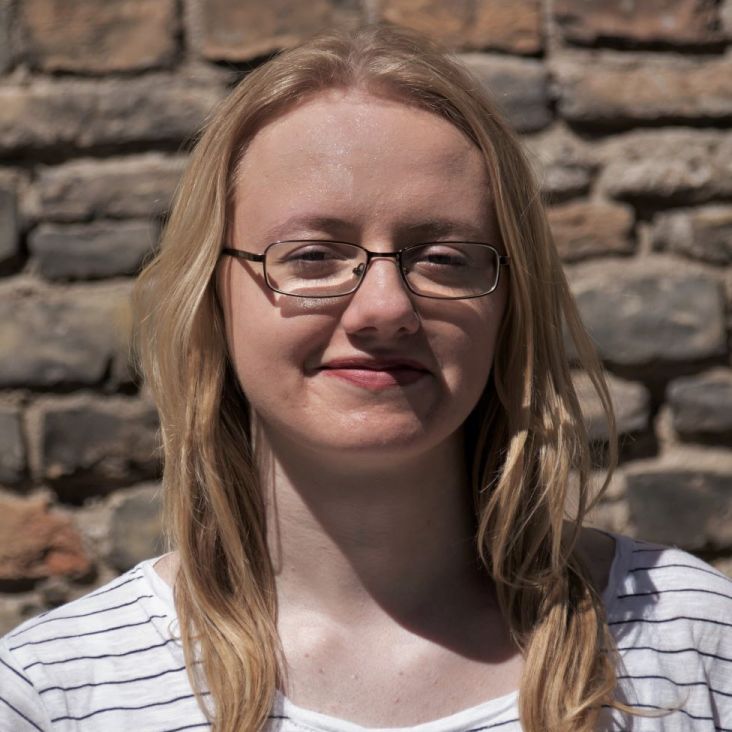
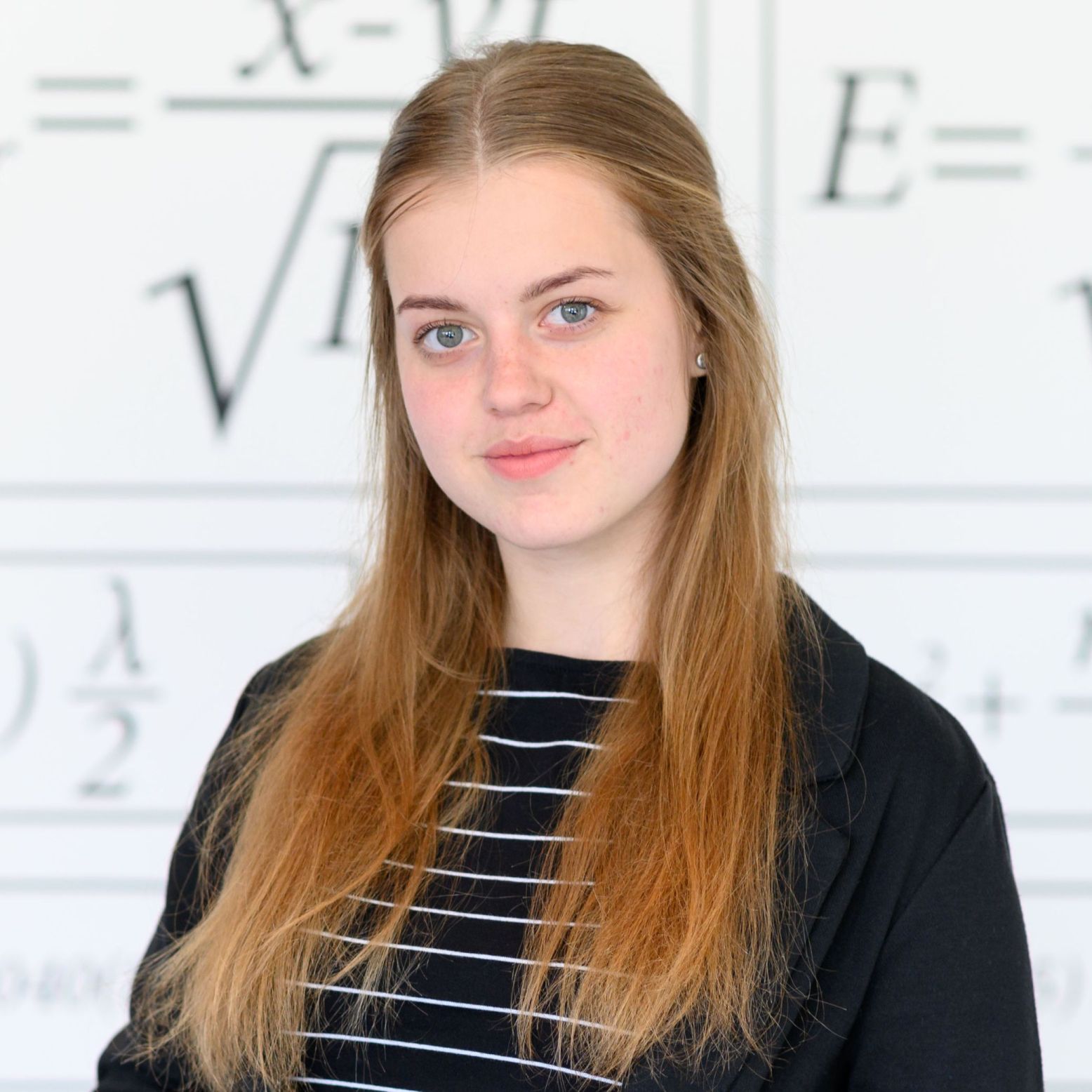
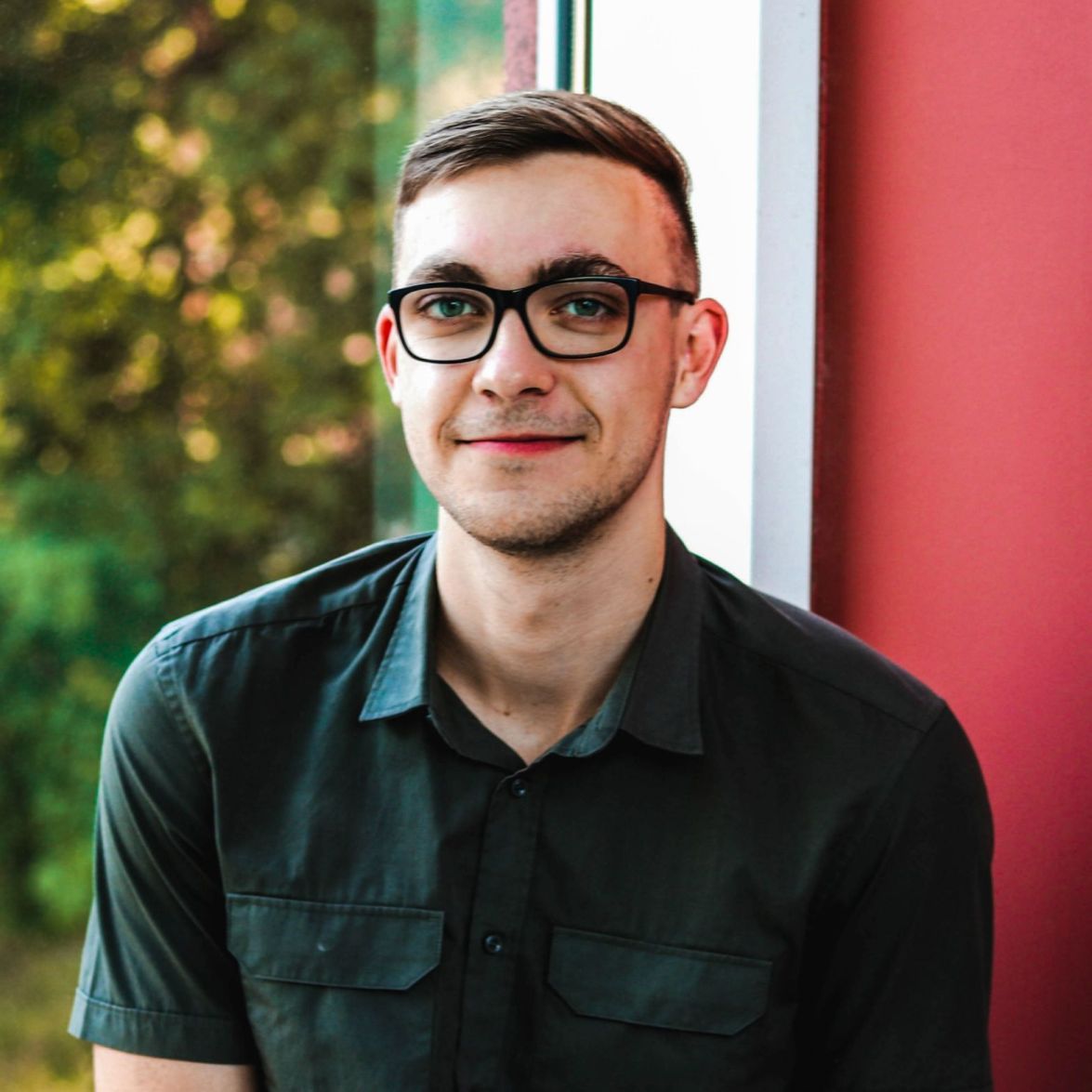
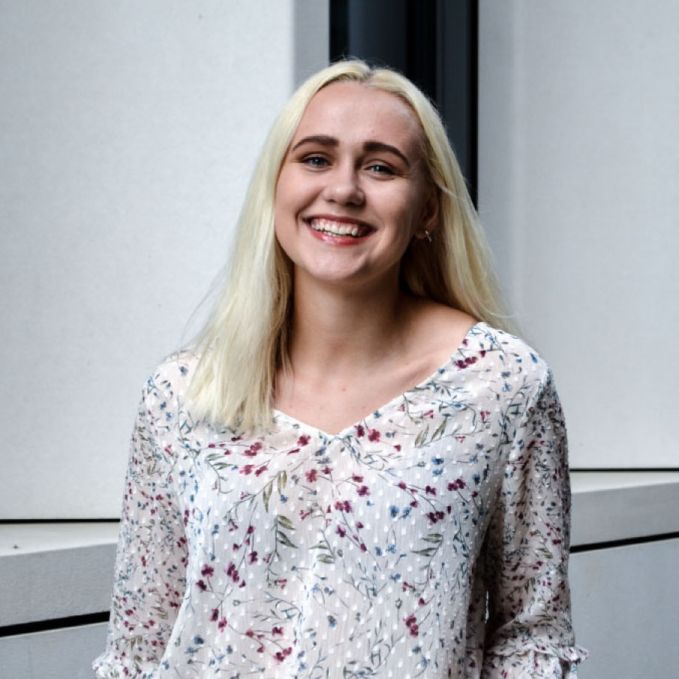

This year, 25 trainings were organized with about 750 participants. The main topics covered during the trainings were:
- the strategy, structure and image of the organization;
- student counseling, provision of social and academic knowledge, representation, gathering of students' opinions;
- organization of unit days, preparation of estimates, cooperation between areas;
- teamwork remotely, communicating the importance of responsibility and refining positions.
HUMAN RESOURCES MANAGEMENT
Systematic work with human resources continued this year:
- in summer, for the first time, joint scope planning was carried out according to the key issues identified during the summer Office-Board meeting;
- Regular meetings between the Institutional Strengthening Fund and the Human Resources Coordinators continued (6 in total), during which the coordinators presented projects on a monthly basis on the following topics:
- attracting and retaining members;
- time management;
- feedback;
- emotion management;
- transmission of experience;
- nformation of a new team.
- competence development took place not only during trainings, but also during regular and general meetings, through simulations;
- after the Šiauliai Academy joined, the integration of VU SR ŠA into the organization was carried out, basic knowledge, planning, team formation were provided;
- the first joint trainings of programs, clubs, projects took place, in which they refined the importance of their presence in the organization, outlined the further course of action;
- more central trainings took place:
- tutors
- management
- training about disability;
- training of SPC student representatives;
- training of Dispute Commission and Academic Ethics Commission student representatives;
- training in the fields of communication-marketing-organization.
- the mentoring program launched during the previous term is being continued. 21 heads of organizations had the mentor.
VU SR CARRIED OUT TRAININGS
| Date | Unit (VU SR U/VU SR PCP) | Training title | Number of participants |
|---|---|---|---|
| 2020 07 10 | VU SR FsF | VU SR FsF local team building training | 10 |
| 2020 07 15 | VU SR CB | VU SR training of planning moderators | 20 |
| 2020 07 26-28 | VU SR CB | VU SR central tutor training | 210 |
| 2020 07 29-30 | VU SR KF | VU SR KF outgoing tutor training | 12 |
| 2020 08 04 | VU SR CB | VU SR central training about disability | 30 |
| 2020 08 05-06 | VU SR TF | VU SR TF outgoing tutor training | 16 |
| 2020 08 12 | VU SR FsF | VU SR FsF local tutor training | 22 |
| 2020 08 22 | VU SR TSPMI | VU SR TSPMI local tutor training | 14 |
| 2020 08 24 | VU SR MF | VU SR MF local tutor training | 25 |
| 2020 09 07 | VU SR CB | VU SR training of communication coordinators | 15 |
| 2020 09 19 | ESN VU | Outgoing ESN Vilnius University team building | 8 |
| 2020 09 26 | VU SR MF | VU SR MF local team building training | 9 |
| 2020 09 29-10 01 | VU SR ISF | Central management training | 60 |
| 2020 10 03 | VU SR CB | VU SR PCP training | 25 |
| 2020 10 11 | VU SR MIF | VU SR MIF SPC training | 23 |
| 2020 10 15-17 | VU SR CB | VU SR remote training of SPC student representatives | 82 |
| 2020 11 28-29 & 2020 12 05-06 | VU SR CHGF | VU SR CHGF autumn training | 20 |
| 2020 12 05 | VU SR TSPMI | VU SR TSPMI training of members | 38 |
| 2020 12 05 | VU SR GMC & VU SA FF | VU SR GMC & VU SR FF autumn training | 20 |
| 2020 12 29 | VU SR ŠA | VU SR ŠA introductory training | 8 |
| 2021 02 03 | VU SR EVAF | Local VU SR EVAF Mercury Days Leaders training | 4 |
| 2021 02 27 | VU SR KnF | VU SR KnF training of members | 31 |
| 2021 03 24 | VU SR CB | VU SR DC and AEC training | 25 |
| 2021 04 10-11 | VU SR CB | CMO fields training | 30 |

COMMUNITY BUILDING EVENTS
Fostering community spirit and student integration remains an important priority of Vilnius University Students’ Representation. For several years in a row, VU SR has been actively taking care of the offer of social-academic and community events, strengthening and expanding projects, clubs and programs that are open to all members of the VU community. In this way, VU SR promotes a cohesive, open community that fosters university traditions.
VU SA 31
Somewhat differently than every year, on November 20-21, International Student Day and the 31st birthday of Vilnius University Students’ Representation (hereinafter VU SR 31) were celebrated. Three discussions took place on the occasion of these two holidays. International Student Day and VU SR 31 on November 20th opened a discussion on "How will we strengthen higher education in the next four years?", during which higher education was discussed. The commemoration continued on November 21st the other two discussions, which took place in English. “The COVID-19: students' movement without crossing borders” discussed the difficulties, challenges and problems that students encounter in the face of a pandemic in order to try their studies abroad. The commemoration of International Student Day was closed with a discussion on “What kind of student movement do students need today?”, in which they discussed what kind of student movement is needed for today’s students. Although we could not be together, we had the opportunity to hear the thoughts of different people, speeches to students on issues of concern.
VU Study Fair 2021
Like most events, the annual Study Fair was moved to online space this year. Vilnius University independently took the initiative and provided the graduates with an experience as similar as possible to the live Study Fair. During the Study Fair, VU SR was not only responsible for organizing discussions with students about studies, but also contributed to the implementation of the technical event: students administered remote consultation rooms and even for 2 weeks, from March 24th to April 2nd everyone was working to make the Study Fair run smoothly.
Unit days
In 2021, as never before, there were many days of well-organized unit days events that attracted many participants. Organizing unit days remotely was not a problem for any unit, and all events lacked original and engaging activities. This year VU SR TF delighted us with the Constitution and Lawyers' Days, VU SR FF already celebrated the 53rd Physicists' Day, the 42nd Historians' Day was a great start to the VU SR IF events marathon, this year's VU SR MF gave us the opportunity to hear real professional lectures and discussions, VU SR KF prepared a lot of information that we could hear during the Information Days, VU SR FilF inspired creativity organized Philologists’ Night, Business Days after a year break returned and visited VU SR VM, VU SR EVAF surprised by organizing great Mercury days, VU SR MIF Days of Mathematicians and Informatics, and VU SR TSPMI Politicians' Day really included not only those interested in politics. All these days of the departments, it is a very important contribution of the Students’ Representation to the fostering and preservation of traditions.
STUDENT INTEGRATION
VU freshman camps
On September 8th-14th, 2020, before the start of the new academic year, 16 freshman camps organized by VU SR and traditionally took place at Vilnius University. Due to the epidemiological situation in Lithuania, traditional, multi-day outreach camps were abandoned this year - the camps were shortened to one day and took place in the yards near the units. This year, more than 1,200 future VU students took part in them. During the camps, the University culture, lecturers, alumni and departmental administrations were introduced, Vilnius University was presented, basic information about the study process and study environment was provided, VU SR activities, programs, clubs and projects and student opportunities at VU were presented.
Integration Fair
Although the September 1st march, which has become traditional this year, did not take place, on September 12th, on the occasion of the beginning of the school year, VU SR organized a festival of twelve discussions with the academic community “Ad astra”. Throughout the day, the courtyards of the Central Palace of Vilnius University rang from discussions between representatives of different disciplines, administrative staff, students and guests. Not only about studies, science and opportunities at the University were discussed, but also about the information world, propaganda, equality and the leadership of the University in the country.
After the discussions, the participants were greeted by a fair of organizations, programs, clubs and projects operating at the University, where students could get acquainted with various student organizations and opportunities for self-expression at VU. The evening was crowned by the greetings of Rector Rimvydas Petrauskas and the President of VU SR Justas Kvedaravičius and a community concert in the Great Yard.
VU 442th birthday
This year we had to celebrate Vilnius University's birthday remotely. As the entire VU community has been going through quarantine for a long time, it was decided to organize a celebration and bring together the entire Vilnius University community. More than 40 teams tested themselves in the VU 442 birthday mind battle "Traps of Social Networks" organized by VU SR. We are very glad that during such a difficult period, we were able to provide the community of Vilnius University with another beautiful, fun and community-gathering event.
Programs, Clubs, Projects, and Public Bodies
During the reference period, the main focus was on the cooperation of PCP with each other and with other VU and VU SR formations. Meetings and dissemination of information between PCP managers, sharing of good practices and performance results among PCP managers continued. PCP members were invited to participate in summer, information, marketing and organizational trainings organized by VU SR. In the autumn, PCP trainings were held, during which all members had the opportunity to get acquainted with VU SR, redefine their activities and acquire new competencies in the field of communication. Most of the PCP presented themselves at the VU Career Days contact fair in September. Much attention has been paid to the institutional strengthening of the PCP - four-year PCP activity planning has been carried out, regular consultations have been carried out to find the best solutions to situations and to ensure smooth operation. Also, during this year, two new clubs have been established at the university - VU Photo Club and VU Anthoclub, which have already started their activities by attracting a large number of students.
Be etikečių
During the reference period, the activities of the program were coordinated by Ieva Budreikaitė.
“Be etikečių” - VU SR has been implementing a program active in the field of reduction of social exclusion and human rights since 2010. This program aims to promote respect in the VU community, break established stereotypes and increase the University's openness by promoting the full integration of socially vulnerable groups. The core values of the program are: equality, openness and respect for the individuality of each person.
The work of the program this year was focused on the creation of content for social media - after moving to online, the aim was to implement its mission by sharing current issues, writing articles on social, gender equality, emotional health and other relevant topics. Every Sunday, the stories and works of artists related to culture, socially vulnerable groups, or emotional health were shared. Hashtag #kultūravisų was used for record recognition. Also, a lecture on a sense of fullness and meditation was organized during the reference period. This year’s “Hallophobia” event featured a lecture on the emotional crises experienced by students. In commemoration of racism the week before, a lecture on racism and xenophobia in Lithuania was organized together with ESN VU, where lecturers from the Voice of Human Rights and the Lithuanian Center for Human Rights presented the legal and reality aspects of human rights. A discussion was organized on the occasion of Tolerance Day, in which the participants of the event were invited to discuss how certain social situations affect a person's psychological health. In October, in cooperation with the University's LGBT+ group, a fashion presentation event was organized “Open your closet”, to which several people interested in style were invited to the LGBT+ community.
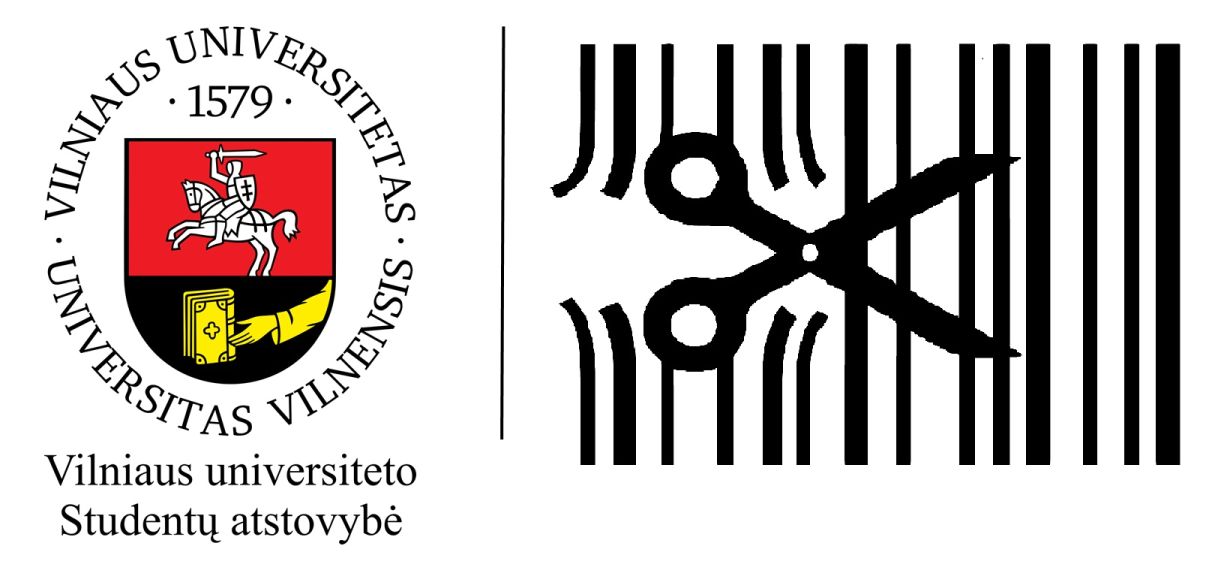
Sąžiningai
During the reference period, the activities of the program were coordinated by Greta Čepurnaitė (until October 2020).
“Sąžiningai” - VU SR program, which fosters the academic ethics of Vilnius University community and promotes the culture of academic honesty. Participants contributing to the program aim to reduce copying, plagiarism, and procurement of written works. In order to promote academic integrity, observations of ongoing interim and final reports (colloquia and exams) are prepared, information campaigns, rubrics are organized, research is conducted, articles and reviews are prepared. Representatives of the program carry out activities in all core academic units of Vilnius University.
During the reference period, the activities of the “Sąžiningai” program were reviewed and refined in order to make it more relevant and useful for students. During the discussions, 3 activities of the program were refined: monitoring of reports, education of students and implementation of a culture of academic ethics at the University.
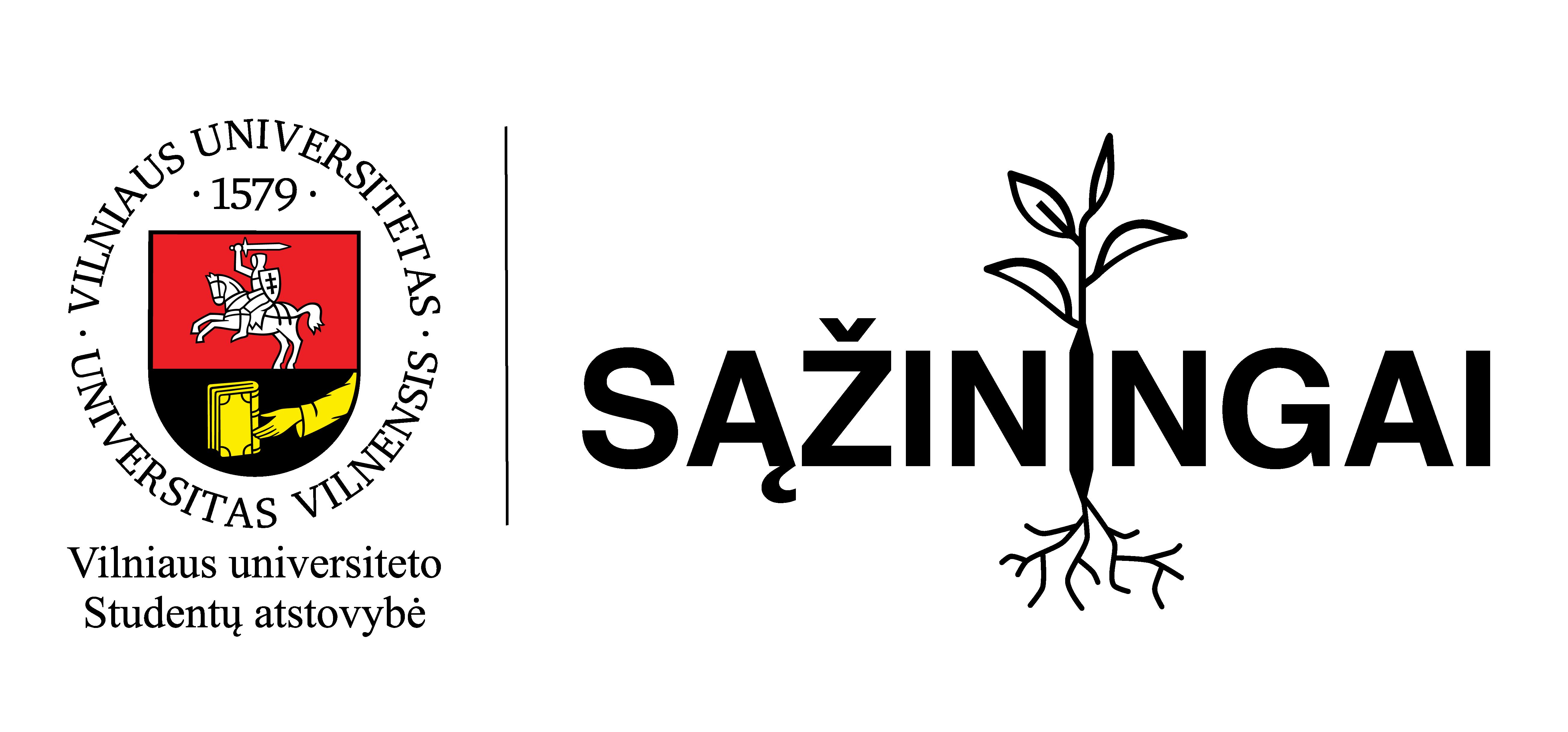
Erasmus Student Network Vilnius University (ESN VU)
During the reporting period, the program was coordinated by Viktorija Milko.
ESN Vilnius University is a VU SR program that promotes student mobility and helps foreign students to successfully integrate at Vilnius University. The main goal of ESN Vilnius University is to help foreign students coming to VU to adapt to the new environment, to acquaint them with the study procedure, culture and traditions of our country.
The activities of ESN Vilnius University were focused on the organization of various events aimed at increasing the integration of foreign students and promoting community spirit. As every semester, the activities were traditionally started with “Orientation Week”, during which efforts were made to acquaint foreign students with each other and to provide all the necessary information about the University's life, infrastructure, Lithuanian culture, student opportunities and rights. Taking into account the pandemic situation, during the year students were provided with all necessary and relevant information about the COVID-19 virus spread control routes in Lithuania, applicable restrictions, security measures. At the same time, students were provided with contact information in case of infection. In addition to all standard events (battles, excursions, acquaintance evenings), “ESN Social Inclusion Days” events were organized during the year - sign language training and - in cooperation with the VU SR program “Be etikečių” - a lecture on racism. The health week included step-by-step competitions, lectures on stress management and the challenges of learning about the city in active ways. During the spring semester, the international project “Erasmus in Schools” was revived, during which students are encouraged to engage in mobility by communicating with VU foreign students. The national project “Multilingual Lithuania” has also been revived, providing an opportunity for local students to learn a foreign language by communicating with VU foreign students as teachers.
During this year, ESN Vilnius University strengthened its ties with other sections of ESN Lithuania. The program participated in the annual planning of VU SR, during which two problematic cases were clarified, and their implementation was partially achieved. Participated in various VU SR trainings, during which years the required competencies were acquired. In February, ESN Vilnius University contributed to the VU International Relations Department's local student mobility promotion conferences.
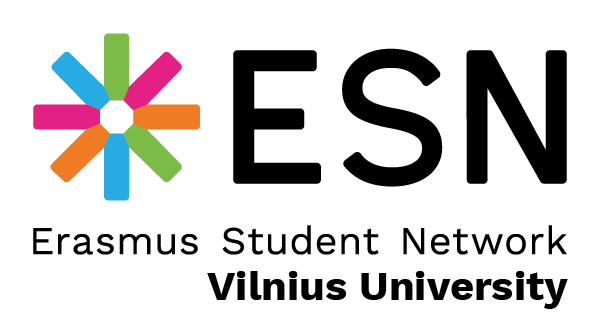
Vilnius University Young Energy Club (VU JEK)
During the reference period, the activities of the club were coordinated by Urtė Toliušytė.
Vilnius University Young Energetics Club (VU JEK) - VU SR club, uniting young people interested in various types of energy, economic, political and technical aspects. VU JEK members share their energy knowledge by organizing events and disseminating information.
The most important activities of the club this year are the publication of “Progressus” magazine and organized cycles of online events.
This year, the club attracted a large number of first-year students from various study programs, and the events attracted public interest. The club focused on projects, developed more attractive external communication, and provided the opportunity to prepare reports for all club members and present them during meetings. Also, using the available opportunities, VU JEK participated in the seminars and discussions of the Ministry of Energy of the Republic of Lithuania and spoke to the representatives of the Ministry.

Vilnius University Career Days (VU KD)
During the reference period, the project was coordinated by Edgaras Kodis.
Vilnius University Career Days is a project of VU SR that allows students to get acquainted with potential employers, make contacts and start a career path independently. The project aims to help students establish themselves in the labor market and become in-demand specialists in their field.
This year's event VU Career Days 2021 took place on May 3rd-7th in online space. 50 companies and financial sponsors were found, 13 of which were involved in Career Days events. A team of almost 50 volunteers has been assembled to ensure the smooth running of the events that have moved into the digital space. The biggest change of this year is the transfer of the event to the online space, which allowed to invite an even larger number of students not only from Vilnius, but also from other cities to participate in the organized activities.
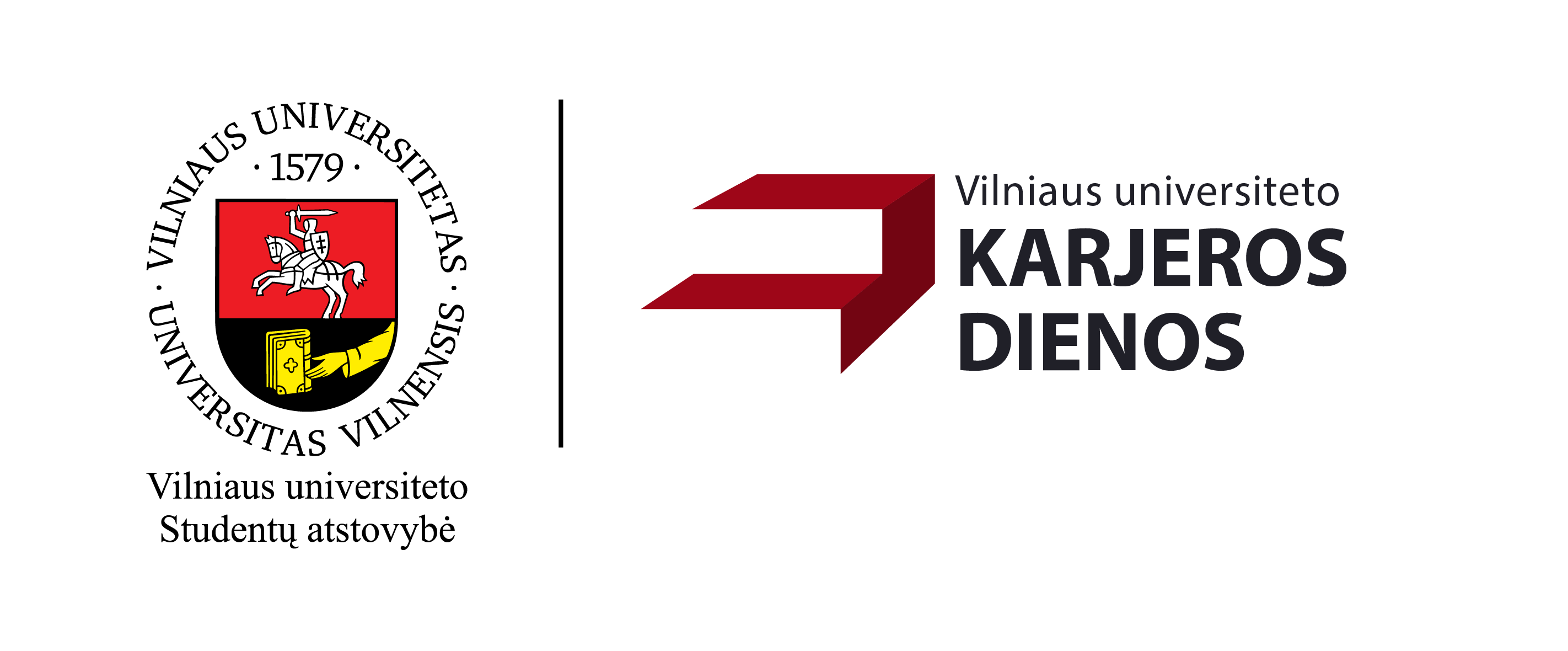
Mentor program
During the reference period, the activities of the program were coordinated by Evaldas Matijošaitis.
The mentors program is a program implemented by VU SA since 2000, designed to effectively integrate first-year students into the University community and to acquaint them with the study procedure. The participants of this program - mentors - are senior students who have received special training to help the students of their supervised group in the integration process.
The mentors program has expanded its ranks this year to include over 200 tutors for undergraduate students, a first-time mentor for first-year master’s students, and mentor for individual studies. Thus, mentors who had completed specific trainings helped students from abroad to join Vilnius University.
The program will come with some changes in the next academic year - the activities and responsibilities of the integration process coordinator (ex-tutor coordinator) have been refined, the competencies, responsibilities and path of being a member of VU SR have been defined, as well as could be applied in ongoing activities.

Charity and Support Foundation “Ateičiai”
The representative of VU SR in the shareholders' meetings is Justas Kvedaravičius.
Vilnius University Students’ Representation founded the charity and support fund “Ateičiai”, which is dedicated to the well-being of Vilnius University students. The foundation was established to represent the diverse needs of students.
During the reference period, the Charity and Support Foundation “Ateičiai” publicized and made famous the name of Vilnius University by distributing merchandise in both physical and electronic stores. This year, in cooperation with the Students’ Union of Klaipeda University, an electronic store of merchandise of Klaipeda University was opened. Also, the foundation is expanding cooperation with VU - a cooperation agreement has been signed with VU Culture Center on the distribution of CDs released by them. The initiative launched this year is to collect 1.2% income tax support, which will be purposefully used to establish scholarships for socially disadvantaged students of Vilnius University for their social activities.
The activities of the Charity and Support Foundation “Ateičiai” are socially responsible and create capital for the benefit of Vilnius University students.

VU Writers Club
During the reporting period, the activities of the club were coordinated by Vincentas Klipčius.
VU Writers Club - a society uniting VU students who are writing and interested in literature was formed in 2013. The goal of the VU Writers Club is not only to bring together writers, but also to encourage more interest in literature, to look at it from the side of the creator, critic, reader and listener.
Members of the VU Writer' Club organize open lectures on the most interesting literary movements and the most prominent creators of world and Lithuanian literature, organize reading events of their works, organize meetings with writers, organize reviews and discussions of films based on literary works, communicate with actors.
This year, the VU Writers Club paid a lot of attention to the analysis of creative and author biographies. The club was engaged in educational activities and actively published recommendations and analyzes of the works on its Facebook account.
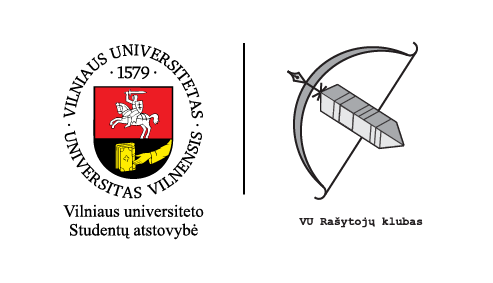
Student Life Guide (SGV)
During the reference period, the project activities were coordinated by Daniel Šematovič.
Student Life Guide (SGV) is a publication of VU SR designed to facilitate the start of first-year studies and living in a new city for more than 10 years. This year is exceptional for SGV - it reached first-year students no longer in the form of a book, but in the form of the website sgv.vusa.lt, therefore SGV will be able to serve students as an information search tool not only at the beginning of studies, but also throughout the study year. The main goal of SGV is to promote students' independence, active activities and, of course, to ensure their smooth integration into the ranks of the members of the largest academic community in Lithuania. In addition, it is a tool that allows first-year students to become acquainted with their rights, responsibilities and the most important processes of the University, the knowledge of which is especially important for the successful start and end of the academic year.

Vilnius University Student Investment Fund (VU SIF)
During the reporting period, the fund was managed by Tautvydas Stasiulis (until January 2020) and Ieva Turskytė (from January 2020).
Vilnius University Student Investment Fund (VU SIF) is the first and largest student investment fund in Lithuania established by VU SR, encouraging young people to take an interest in the world of investment management and invest independently.
During the reference period, VU SIF successfully organized informative events. In June 2020 a virtual conversation on economic and financial trends took place with the then Lithuanian Minister of Finance Vilius Šapoka, a web episode with VU economist doc. dr. Ieva Bužienė, during which the interlocutor shared her thoughts on financial literacy. Students could also participate in VU SIF events. Lecture by Tautvydas Marčiulaitis “The Biggest Myths of Investment Portfolio Management” and Lecture with Greta Krušaitė “Personal Finance: Accumulate, Spend or Invest?”. VU SIF cooperated with other student organizations and together with ELSA Lithuania invited to participate in an open discussion “Stock Market Manipulation: Where is the Boundary?”
Spalį organizacija oficialiai tapo tarptautinio tinklo IFSA Network, vienijančio viso pasaulio studentus, besidominčius finansais ir investavimu, dalimi. Drauge su minėtuoju tinklu buvo organizuotas renginys apie investavimą su prelegentu Karoliu Kybartu.
In October, the organization officially became part of the international network, the IFSA Network, which unites students from around the world interested in finance and investment. Together with the above-mentioned network, an investment event was organized with the speaker Karolis Kybartas.
This year VU SIF was successful in competitions - a team consisting of members of the organization took first place in the international competition Red Bull Basement. Also, in the prestigious Global Case Competition at Harvard, the organization was ranked in the top twenty of the best teams worldwide. During the competition, students from the best universities in the world solved the problem of a specific business case for three weeks.
The magazine Investuok, the Bank of Lithuania, UAB Gerovės valdymas, Vilnius University Business School and Vilnius University helped VU SIF to grow and improve during the reference period.
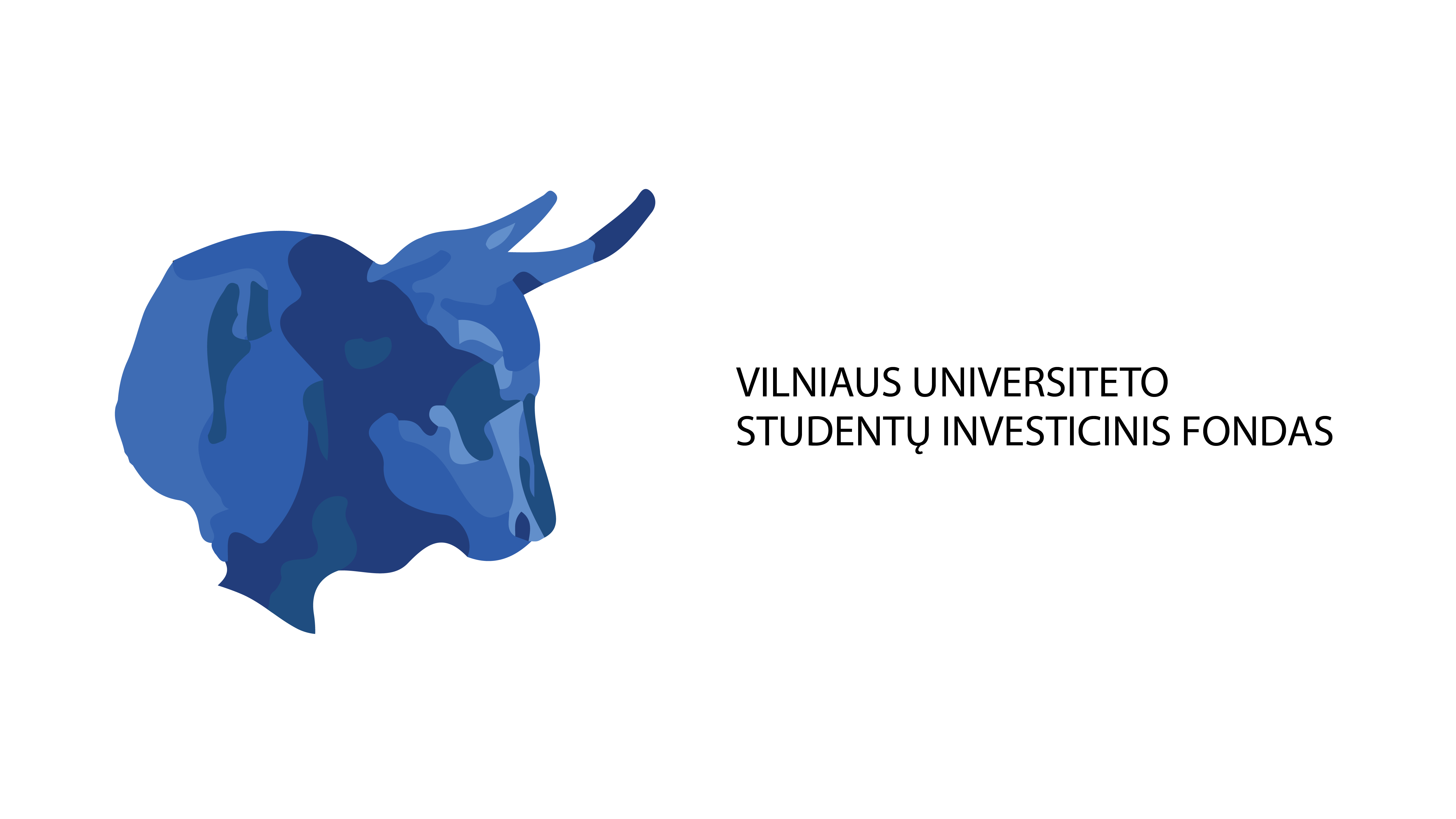
Students - for pupils, pupils - for students (SMMS)
During the reference period, the project activities were coordinated by Aurelija Vasiliauskaitė.
SMMS (Students - for pupils, pupils - for students) - a project implemented by VU SR for senior students who want to get acquainted with student life and study opportunities.
This year, the project activities were carried out remotely. Back in November, a conversation about SMMS with Ieva and Mantas Bartuševičius was organized in the START FM studio. In January-February, the project curators conducted class lessons for senior students, where the SMMS project, Vilnius University, VU and VU SR after-school activities were presented and questions asked by students were answered. Since the beginning of February, presentations of VU units have been launched on SMMS social networks, during which, every week, SMMS curators presented more and more VU units. On May 15th there will be a remote SMMS camp, after which students will have the opportunity to ask questions of concern to SMMS tutors on the Discord platform.
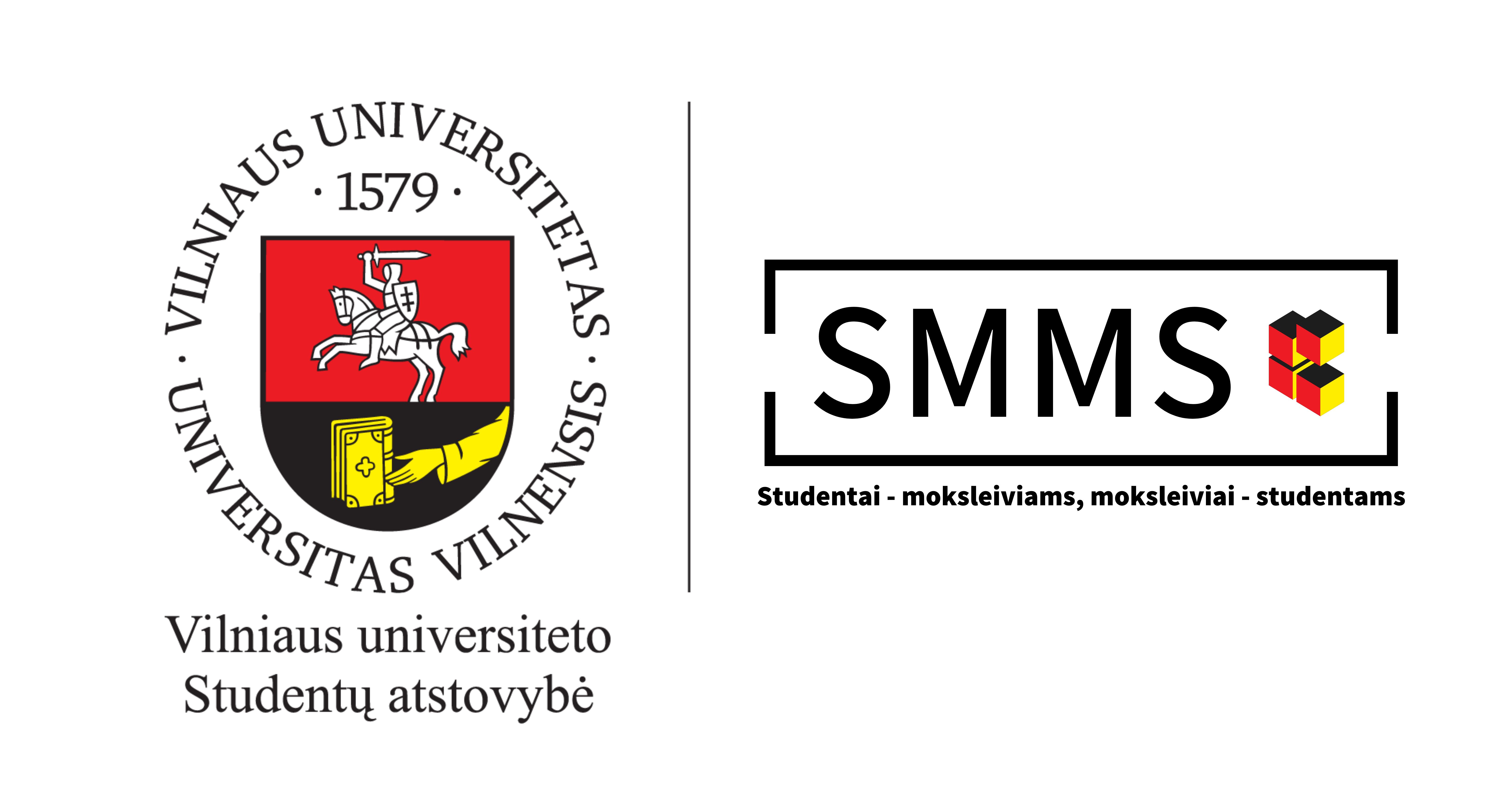
VU radio START FM
During the reference period, the radio was headed by Rimantas Murza.
VU radio START FM - VU SR and Vilnius University radio station, which started operating in 2005. The only student radio station in Lithuania provides a wide range of opportunities for students to express themselves: it helps to train future journalists, programmers and specialists in other fields. START FM also actively supports the dissemination of works of young and little-known Lithuanian and foreign performers and music groups, conducts interviews with alternative music performers, and supports various artistic and social initiatives.
2On 2020 September 12th radio was celebrating its 15th birthday, Vilnius University radio station START FM 94.2 does not stop growing even during the ongoing quarantine. In 2020 an average of 48 hours of original programming was broadcasted per week (the other part of the program consists of automatic music playback), and an average of 42,000 unique listeners per month were airing on the Internet.
The growth did not stop in the development of cooperation - joint projects were launched with the Lithuanian Interdisciplinary Art Union, Contemporary Serious Music Festival Druskomanija, Informal Music School Muzikalkė, Radio Theater Ticket No (recorded in the studio and broadcast on VU Radio in the competition Pragiedruliai recognized as the most original radio show). A 3-minute solo project was also completed, during which 32 young Lithuanian jazz music instrumentalists performances of 3 minutes were professionally filmed and recorded. At the beginning of autumn, the START FM news team gathered from VU students prepares news reports, reports on relevant topics and interviews every working day.
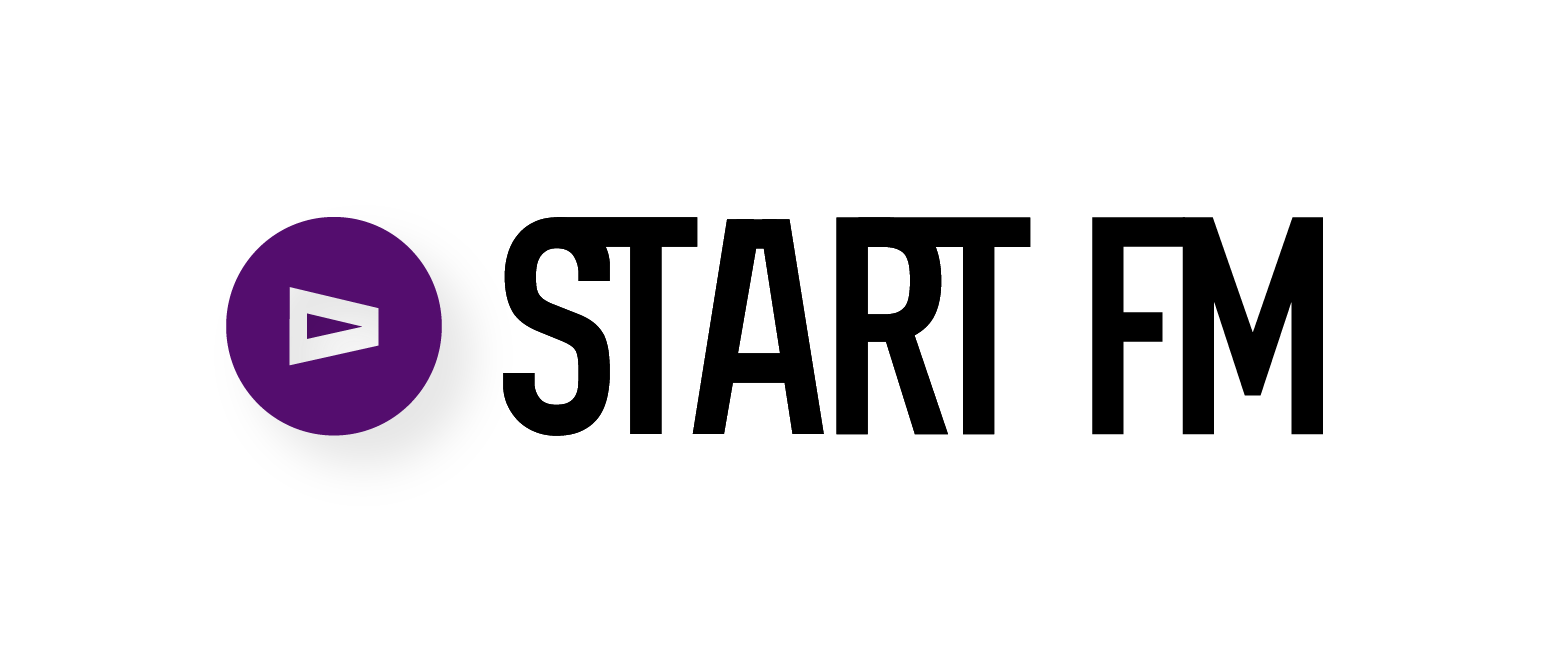
VU Kendo Club (VU KK)
During the reference period, the activities of the club were coordinated by Vytenis Almonaitis.
Vilnius University Kendo Club - VU SR Japanese fencing studio for both beginners and those who want to improve their existing skills, operating since 2008. VU Kendo Club aims not only to popularize kendo sports and promote an active lifestyle, but also to gather students interested in Japanese martial arts, to glorify the name of Vilnius University in Lithuania and the world by participating in competitions and other events.
During the reference period, the club participated in the contact fair for freshmen at the VU Career Days axis. Due to the pandemic situation in the country, the club was unable to conduct training and participate in competitions in accordance with safety requirements. Nevertheless, the representatives of the studio presented the possibilities of solo and pair training to the followers on social media and invited everyone to play sports.

Vilnius University Clinic of Law (VU TK)
During the reference period, Laurynas Totoraitis (until August 2020) and Viktorija Medžiaušaitė (since September 2020) were heads the VU TK.
Vilnius University Law Clinic, established by VU SR and partners, is a free legal aid project that provides a real professional internship for senior law students, and offers free legal aid and promotes legal literacy to the public. VU TK was established 23 years ago and is still under the auspices of VU SR, Vilnius University and the law firm Ellex Valiunas.
During the year, the organization provided legal assistance to 4,791 residents. Based on the feedback from interested parties on the quality of the organization's activities, it can be concluded that VU Law Clinic ensures a sufficiently high level of competence and a good service culture.
2020 the activity has been successfully adapted to work in quarantine conditions. Consultations were conducted by telephone, Skype platform and e-mail. During the summer, contact consultations were provided in accordance with all security measures.
During the reference period, 28 students of Vilnius University performed a compulsory professional or voluntary internship at VU TK, the total duration of which is 6 months. During the internship, students consulted interested parties on family, inheritance, employment, intellectual property, contracts, real estate, consumer, administrative, criminal law issues. He also prepared draft agreements, draft procedural documents for judicial institutions (courts, labor disputes commissions), and legal conclusions.
Vilnius University Law Clinic actively cooperated with the media, regularly provided legal comments to the most popular news portals lrt.lt, 15min.lt, tv3.lt, delfi.lt, lrytas.lt, radio programs (Radio case, 15/15). In this way, the level of legal education of the society was increased. The name of Vilnius University Law Clinic was mentioned in the media about 40 times.
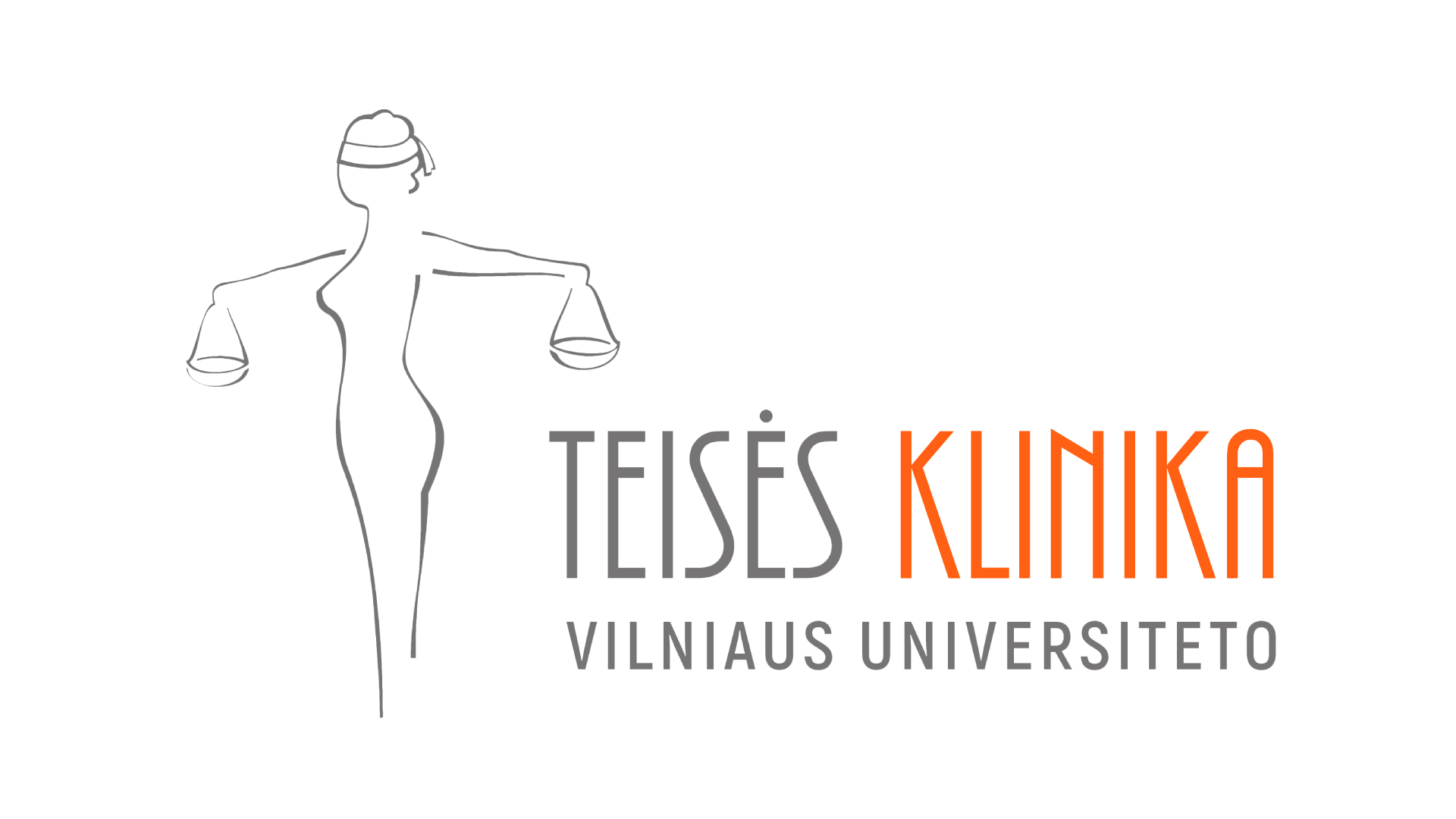

THANK YOU FOR THOSE, WHO GROW TOGETHER!
FRIENDS
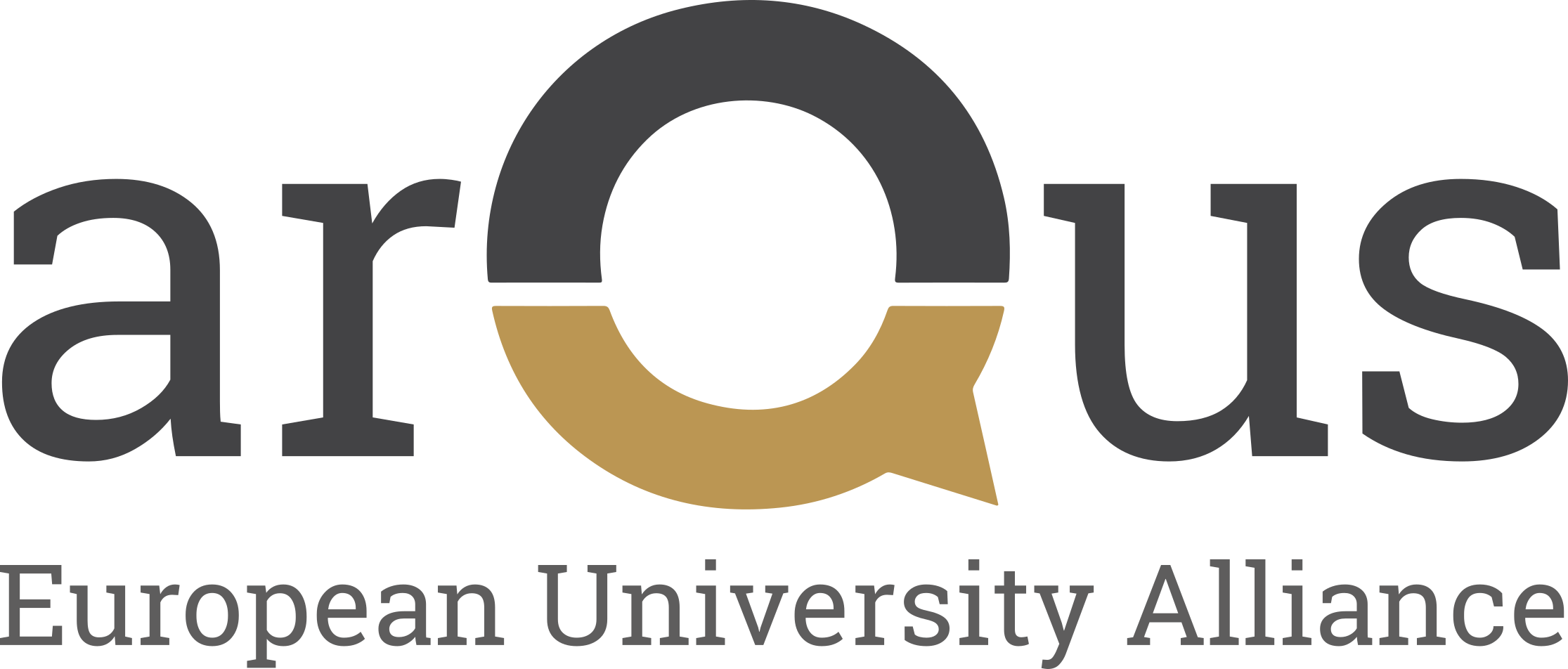
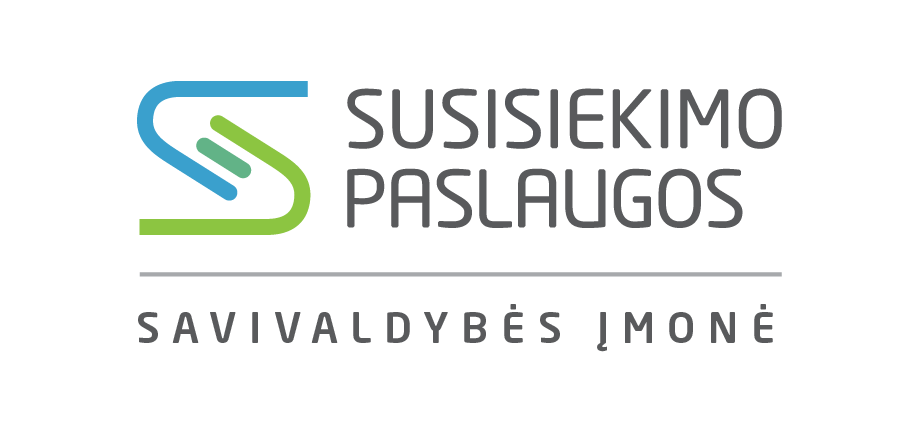
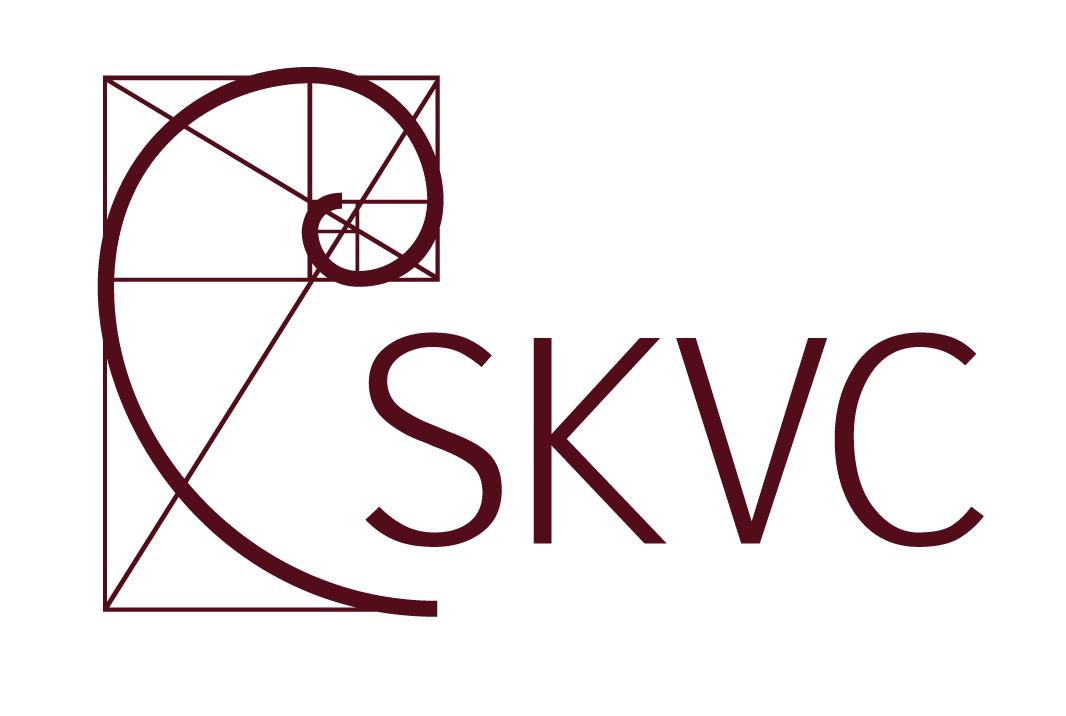
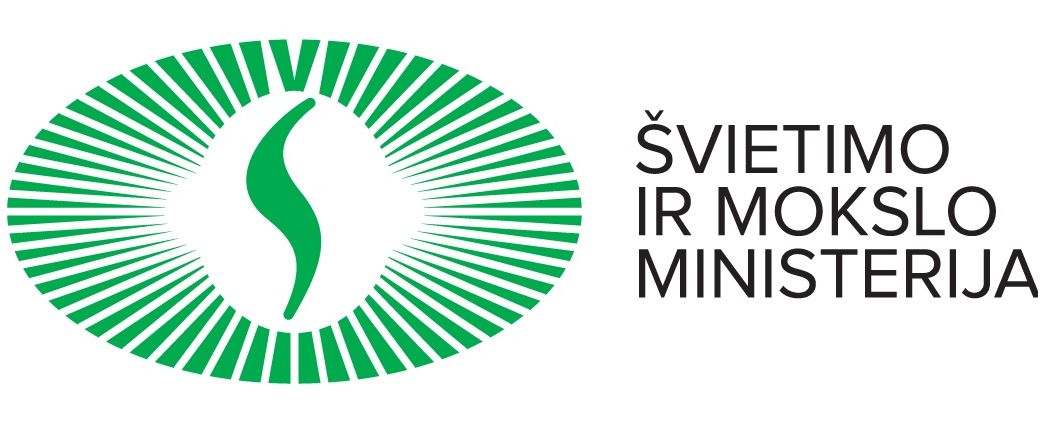
_1.jpg)
